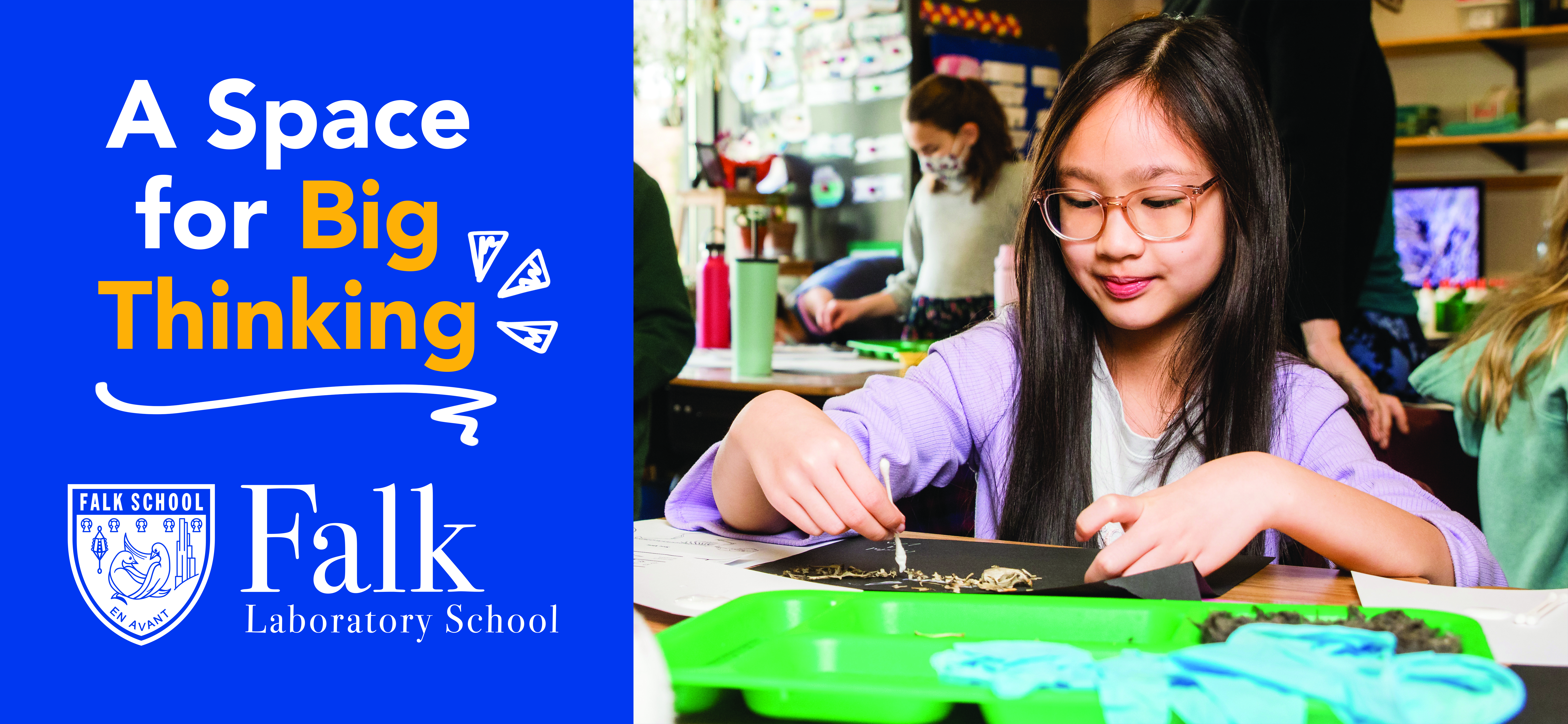
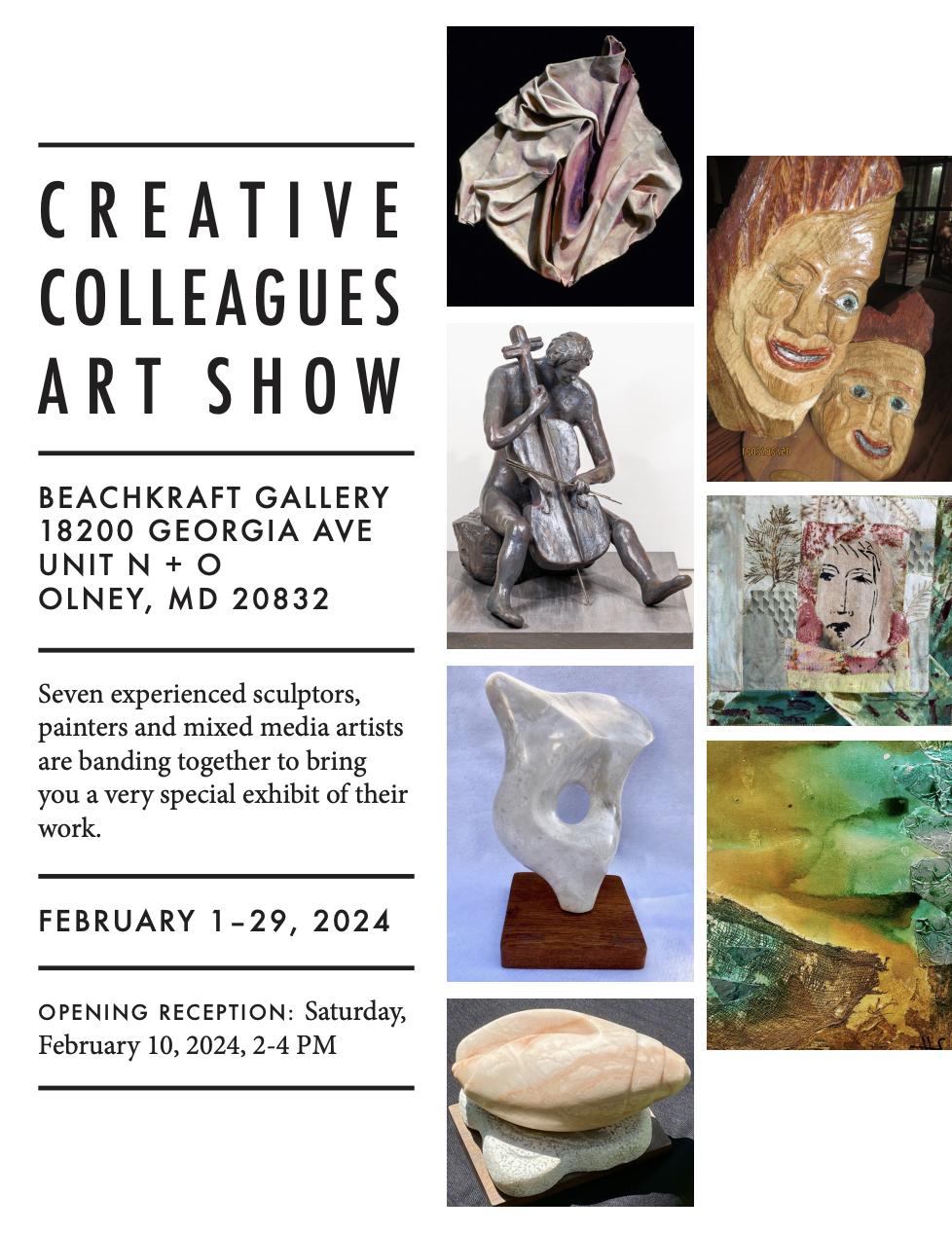

with a passion for solving problems and supporting literacy, education, and diversity. After receiving my B.A. in English from William & Mary, I spent a year in academic journal publishing with The Ohio State University Libraries. I now serve as Communications & Marketing Coordinator for Falk Laboratory School in Pittsburgh. At Falk, I am responsible for all internal and external communications, including weekly newsletters, social media accounts, website management, and alumni outreach. I also manage the school's marketing efforts, including reserving and designing print ads and developing digital campaigns.
During my undergraduate years, I interned with W. W. Norton, Platypus Media, and Greater Than A Tourist. I'm also a 2022 graduate of NYU's Summer Publishing Institute. In my free time, I love to read (especially Jane Austen, Louisa May Alcott, and Celeste Ng), explore local cafes and bookstores, and teach myself new software and design skills
To see some of my past work or read my recent book reviews, scroll down or use the top menu bar. Welcome to my bookshelf!
Falk Laboratory School, 2024–present:
Platypus Media, 2021:
As Communications & Marketing Coordinator for Falk Laboratory School, I manage the school's social platforms, including curating and scheduling content for Instagram. Since I took over in July 2024, the account's following has grown by over 27%.
Below is a screenshot of my Spotify homepage, followed by a recreation made with Figma, the leading web tool for visual design.
Currently reading: We Carry Smoke and Paper by Melody S Gee
| Title | Author | Rating | Review | 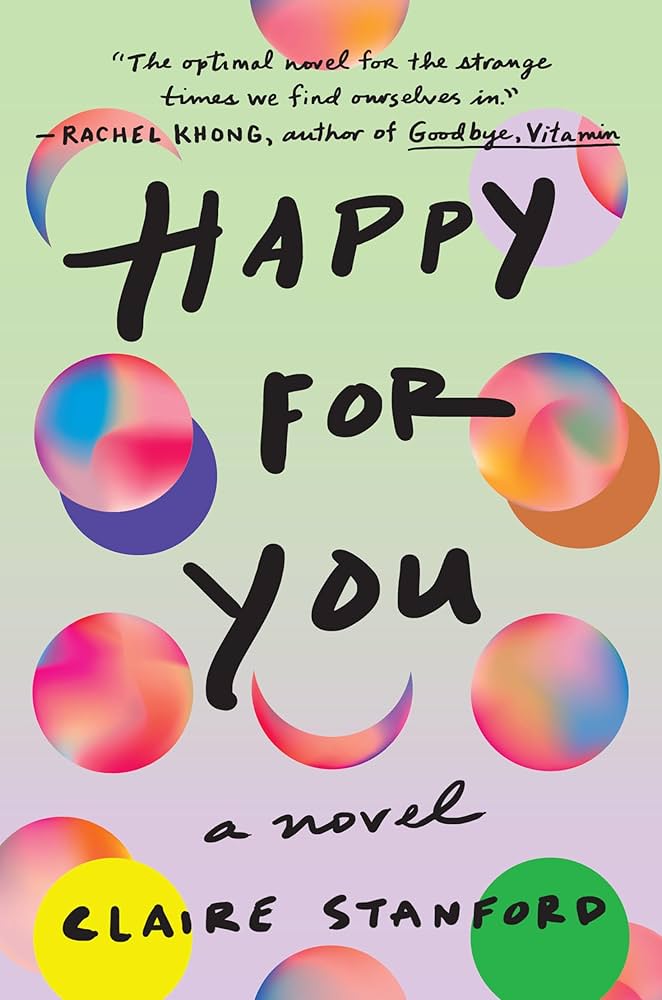 |
Claire Stanford | ⭐ ⭐ ⭐ | I truly loved the themes and style of this book, but I can't help feeling like it was incomplete, beyond the fact that the ending left elements of the story unfinished, which I know was intentional. That said, Stanford played with really impactful images and ideas and did so in a way that I enjoyed. The main character's heightened attention to racial identity as a mixed-race person and complicated relationship with her Japanese roots spoke to me, and the nature show that pops up throughout the book, highlighting unique and often overlooked animal species, reflected her underlying search for belonging and validation in a way that I found weirdly beautiful. | 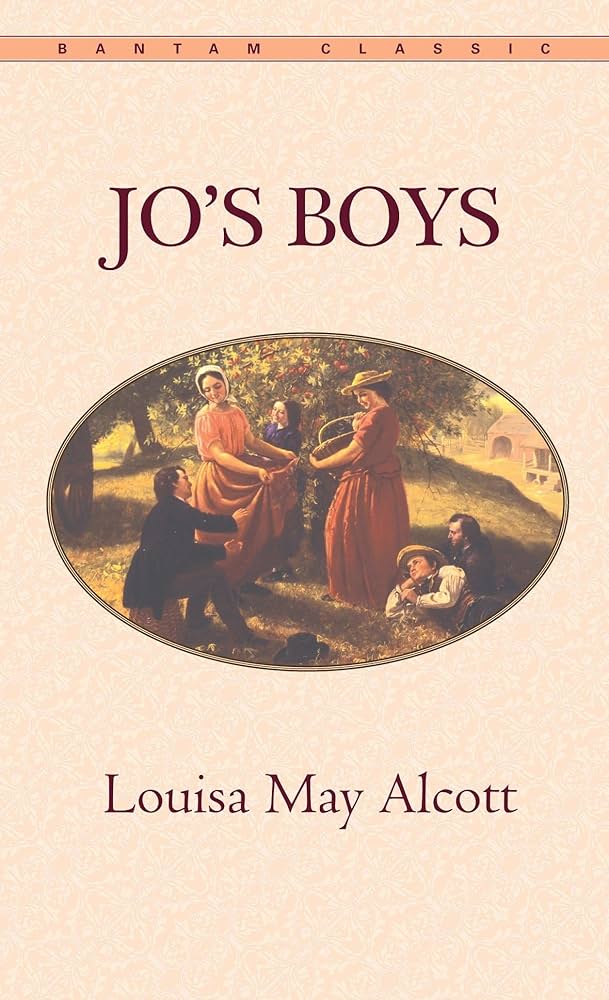 |
Louisa May Alcott | ⭐ ⭐ | Like the preceding two books in the series, Jo's Boys is charming, but unlike the first two, it feels quite unexceptional and redundant. Most of the plot consists of the boys getting married one by one, basically implying that marriage is the only reasonable thing to expect from young people. On top of that, each character's story all but ends at their respective marriage, as if Alcott believed everyone's arc was complete and could be put to rest as soon as they had a spouse. As a whole, it felt oversimplified and didn't do much for me. |
|---|---|---|---|
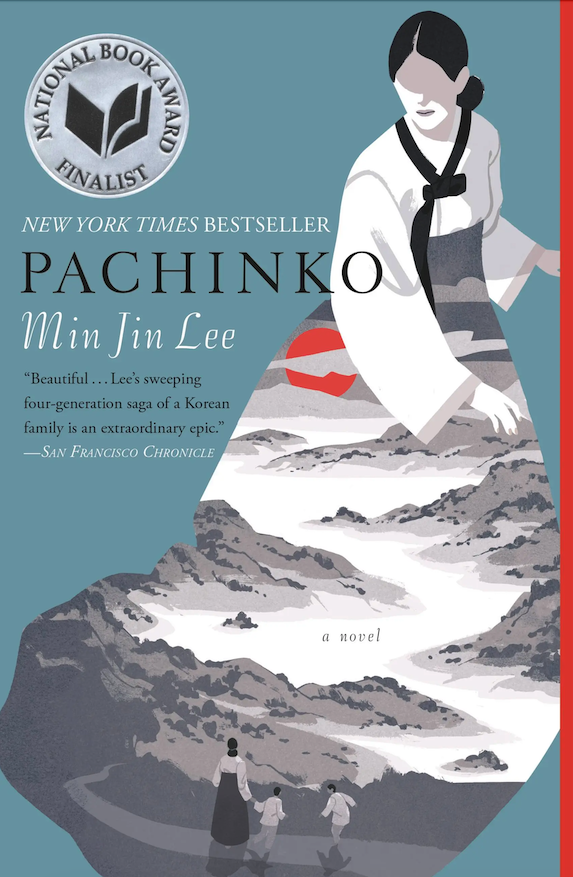 |
Min Jin Lee | ⭐ ⭐ ⭐ ⭐ | In many ways, Pachinko felt like an embodiment of Mother Teresa's mantra, "Do ordinary things with extraordinary love." Hoonie, Yangjin, Sunja, Isak, Kyunghee, and Noa live simple yet beautiful lives, and following their story across generations immersed me in a moving tale of love, sacrifice, and pride, while also teaching me an incredible amount about the Korean diaspora in Japan. Toward the end (SPOILER ALERT), I was saddened to see the family's downward spiral, with each character losing hope over time and eventually settling for an unfulfilled life. I can't say the transition was unrealistic or uncalled for given their circumstances and personal/political barriers, but it was definitely sad to see dreams and sacrifices that spanned the entire novel not pay off in the end. |
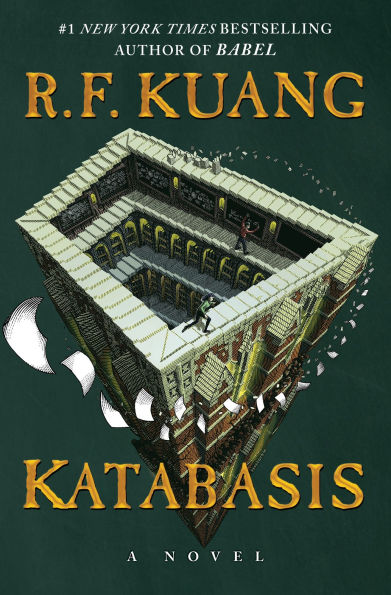 |
R. F. Kuang | ⭐ ⭐ ⭐ ⭐ | Katabasis started off as one of the most incredible books I've ever read. The intrigue, the allusions, the satire, the emotion—everything was so fantastic and immersive. The way Kuang placed us inside Alice's mind to expose and undermine the delusions that so many cling to in today's world was brilliant, and I loved that, chapter by chapter, she revealed new complexities about each character. Truly, I was enthralled, but that started to change a few hundred pages in. Eventually, the abstract landscapes and metaphysical trappings of Kuang's Hell started to feel too grandiose and circuitous, and Alice waffled between hoping to die and wanting desperately to live a few too many times to make sense. By the end, I felt lost in the plot and slightly disturbed by Alice's bloodthirst, but still, I can't help but be impressed by the book as a whole. |
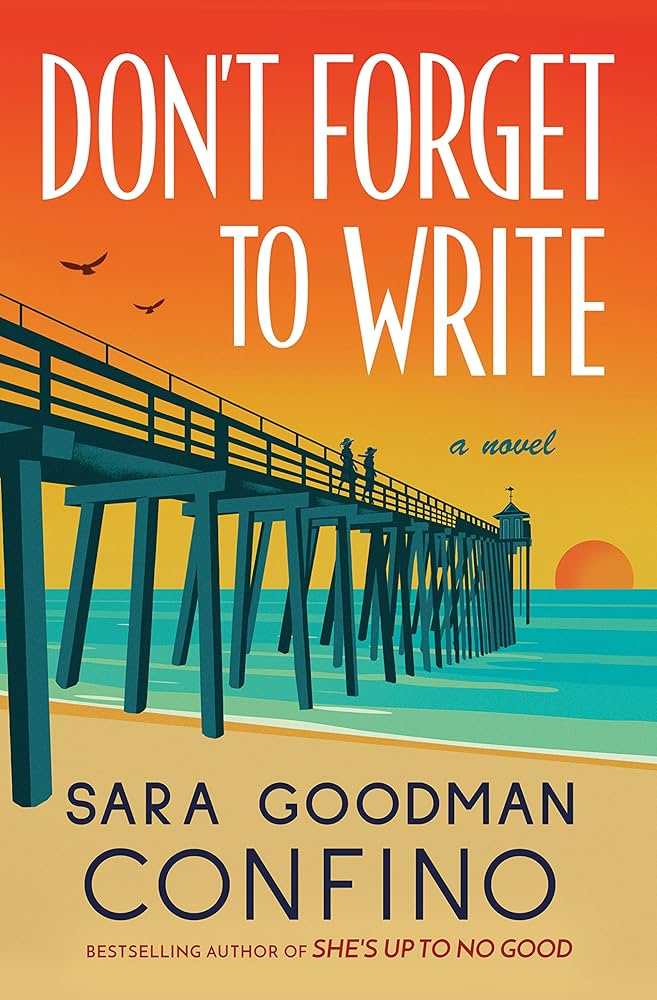 |
Sara Goodman Confino | ⭐ ⭐ | Don't Forget to Write is nowhere near as good as For the Love of Friends (read my review below). A lot of the relationships in the book feel shallow and rushed, and everyone is more of an exaggeration or arcehtype than a real person. I can appreciate Marilyn's struggle for independence, especially given the culture and time period she grew up in, but I just wasn't particularly invested in or compelled by the story. Plus, the ending was so predictable, I saw it coming from a mile away. It has some interesting threads but overall isn't worth the read. |
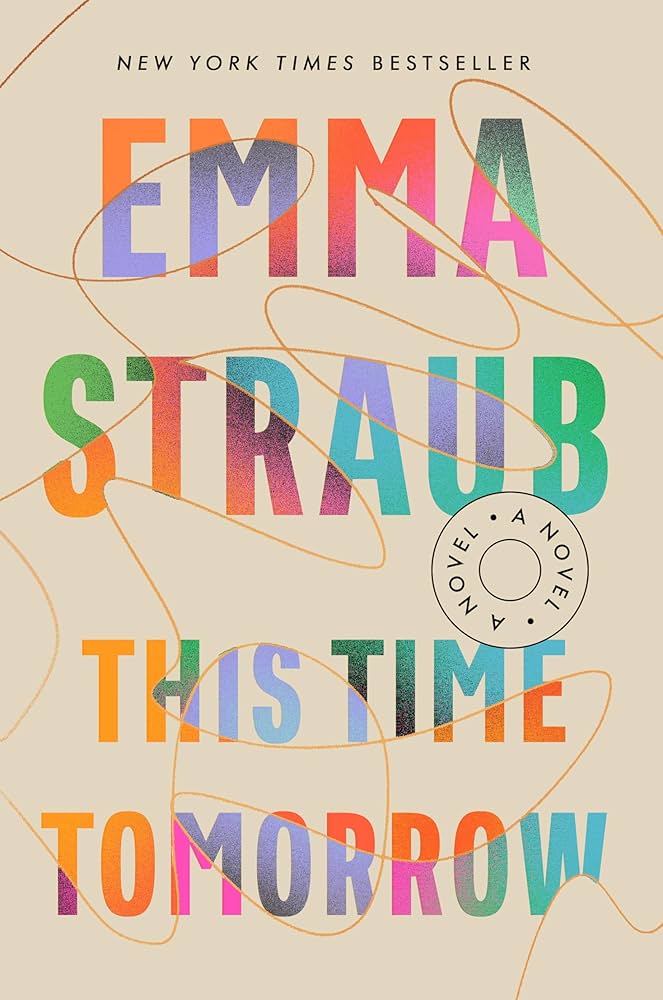 |
Emma Straub | ⭐ ⭐ ⭐ | I was enjoying this book so much until (SPOILER ALERT) Alice discovered the secret to her time travel and started creating dozens of new lives for herself. Just like in Midnight Library, the concept of blipping into a timeline you didn't start in and magically assimilating to that life without knowing your history there doesn't really sit right with me. That said, up until Alice started life hopping (and even at some moments afterward), I did really enjoy Straub's writing and the deep sense of nostalgia and friendship it evoked. Something about the story felt very fluid, and I loved that the characters came to life through habits and quirks—their go-to cigarette brand or the way they carry themselves at a party, for instance—rather than flat or overly explicit descriptions. I thought it made them feel very natural and universally relatable. |
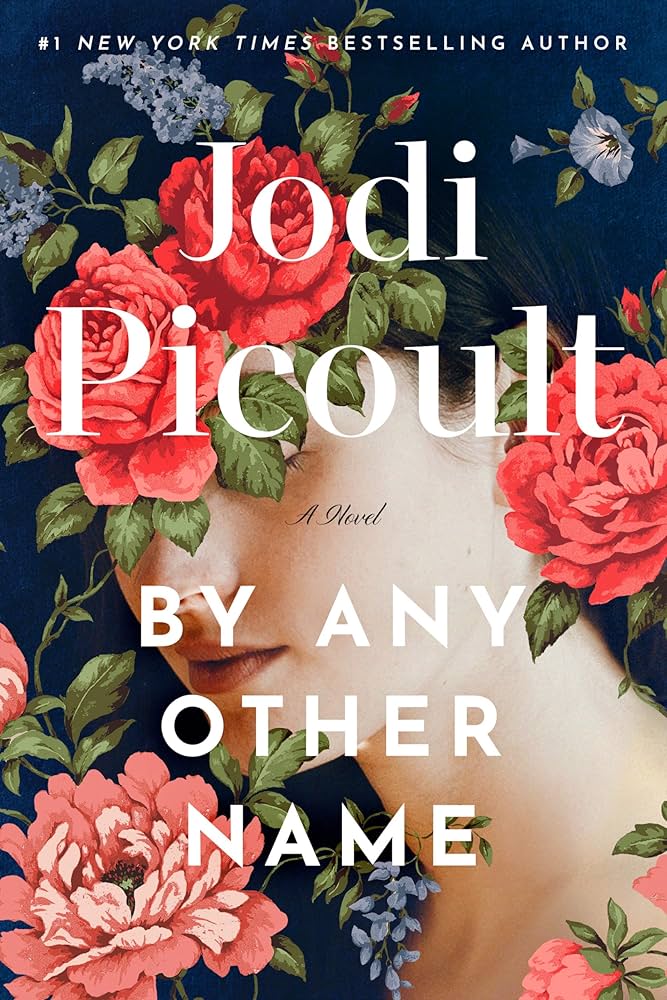 |
Jodi Picoult | ⭐ ⭐ | By Any Other Name deserves massive credit for being so well-researched and historically sound, but as a novel, I don't think it works very well. It's clear that Picoult did her homework—her grasp of 16th-century playwrighting, court politics, personal scandals, geography, etc. is evident throughout—but the result of those efforts is a book with too many obscure namedrops and competing character arcs to have any semblance of flow. I usually love alternating timelines or points of view, but in this book, it felt like too much. Emilia's story could have been equally, if not more, compelling (not to mention a lot more digestible) without Melina's modern-day parallel, and I definitely could have lived without the random script excerpts and shifts to Jasper Tolle's point of view. Frankly, I was underwhelmed and annoyed by a lot of what happened in Melina's timeline to begin with. All that said, the book contains a lot of rich and eye-opening history, and it introduced me to the fascinating and very plausible theory that Shakespeare didn't write his own plays, which I may not have otherwise discovered. |
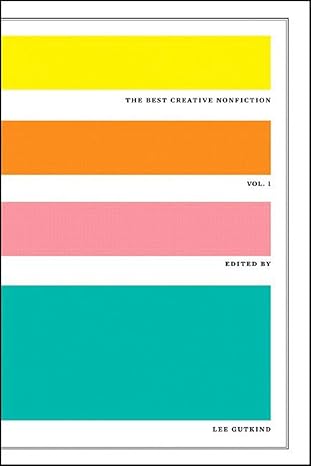 |
Lee Gutkind (editor) | ⭐ ⭐ | I'm fascinated by the idea of creative nonfiction and was excited to dive into this collection, but in an unfortunate turn of events, most of these stories/essays were a real slog for me. If you do want to check out the series, I suggest finding a more recent edition (volume one is from 2007, and no joke, there was an entire essay that revolved around AOL instant messaging) or cherrypicking instead of reading cover to cover like I did. For what it's worth, there are a few gems in here, including one very clever and emotional piece about the inadequacy of numeric pain scales and a literary retelling of the mysterious case of Mary Anderson. |
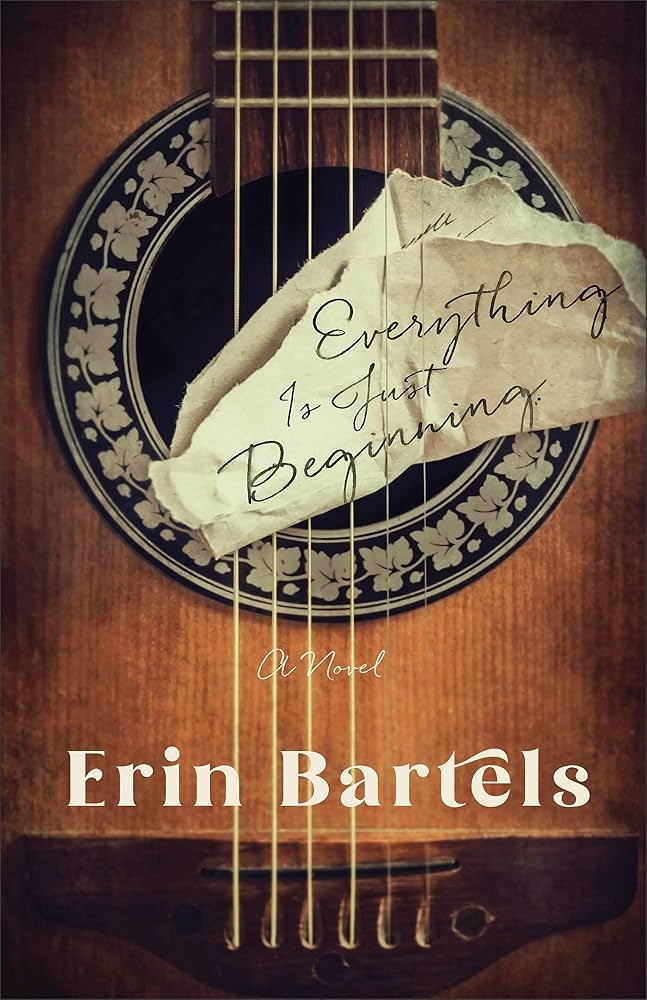 |
Erin Bartels | ⭐ ⭐ ⭐ | In my opinion, this book is solidly mediocre. There are moments of sweetness and a handful of refreshing turns of phrase, but generally speaking, it's your average well-written, not-so-believable underdog love story. I'm fascinated by the fact that Bartels put together Spotify playists and a secret website of recordings to reflect the music in the book (check the last few pages), but I was very unimpressed with the main protagonist. Particularly in the emotional maturity department, he struck me more as someone who still needed to get his life together than as a guy who deserved the success (not to mention the girl) he ended up with. |
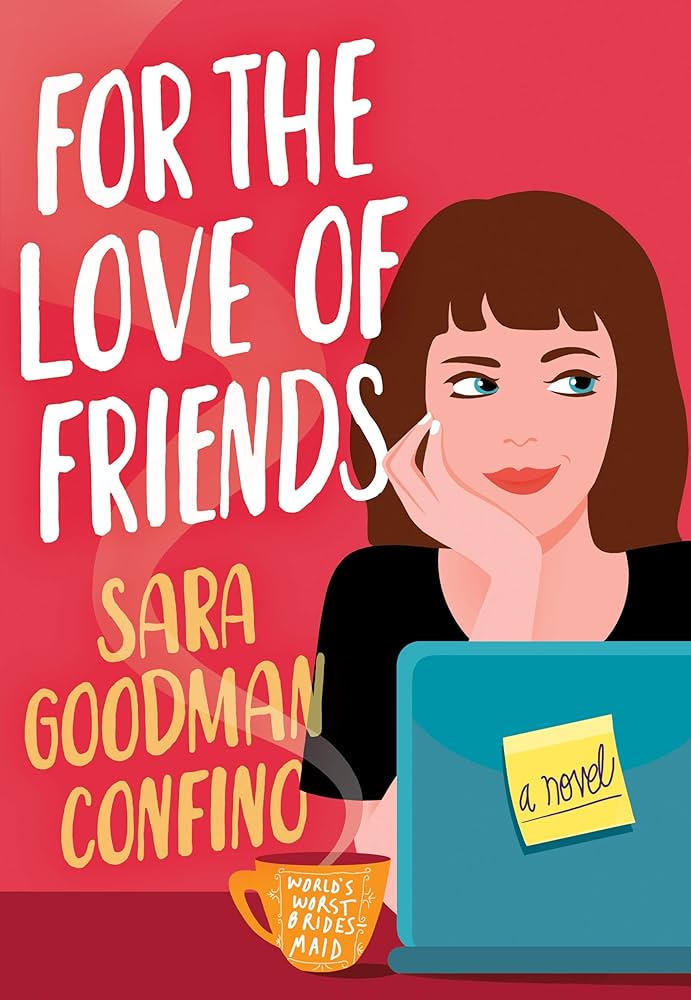 |
Sara Goodman Confino | ⭐ ⭐ ⭐ ⭐ | I genuinely enjoyed this book so much! After a lot of heavy and, frankly, depressing reads this year, I think I was starting to forget that reading is supposed to be fun, and For the Love of Friends was the perfect reminder. Amidst the hilarity, Lily's character arch is incredibly sweet, and I had the added excitement of recognizing almost every namedropped location, thanks to the fact that the author currently lives in my hometown. The ending was even better than I expected—and it didn't take me long to get there since I hardly put the book down after starting. Highly recommend! |
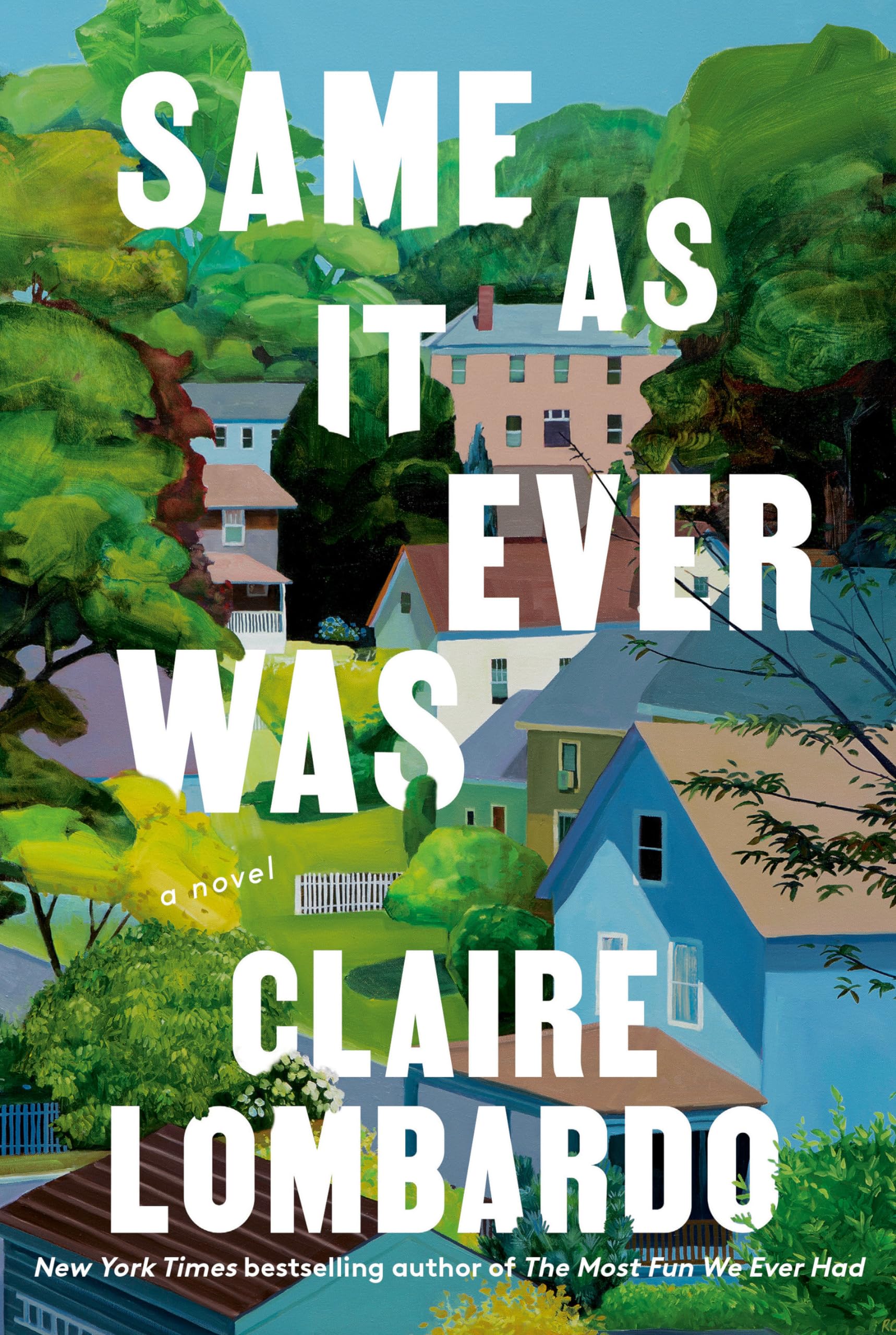 |
Claire Lombardo | ⭐ ⭐ ⭐ | Lombardo has a way of making even the smallest moments feel poetic, and her portrayal of depression and self-preservation is honest in a way that I've never read before. Her writing style is at once rambling and poignant, and I found myself marveling over the way she painted such evocative scenes of life, motherhood, grief, and friendship. Still, I can't help feeling like the story tried to accomplish too much at once, resulting in inconsistent pacing and moments when my intrigue dwindled because of the time and plot jumps. There's no question in my mind that it's a powerful book (and it's really 3.5 stars in my mind, not 3), but I wish it had done a few things differently. |
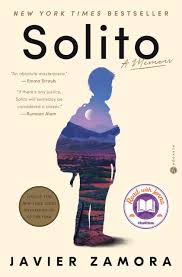 |
Javier Zamora | ⭐ ⭐ ⭐ | Zamora's story of crossing the border, told through the eyes of his 9-year-old self, is a very authentic one, perfectly balancing the innocence of youth with the gravity of the journey. Despite having well-developed narrative voice and providing an immersive glimpse at the language and traditions Zamora grew up with, though, the pacing was extremely slow. As insensitive as this may sound, I quickly found myself immensely bored. While I understand the desire to paint a full picture, especially for a story that deals with such life-changing and memorable subject matter, I could have lived without some of the details. Strangely, the brief author's note at the end resonated with me more than anything else. |
 |
R. F. Kuang | ⭐ ⭐ ⭐ ⭐ | Babel is a monster of a book, filled with intense commentary on colonialism and the forced expansion of empire, and I honestly can't say I was prepared for everything it contained. What started as a deeply fascinating exploration of language and the moral and cultural implications of translation devolved into a series of violent and jarring events that made me shudder at the world's injustices and wonder how anyone could possibly hope to eradicate them. *SPOILER ALERT (until the next asterisk): To call the trajectory and ultimate fate of Robin's cohort disheartening would be a massive understatement, and while it may have been too optimistic to hope for a positive ending, I was shocked (and frankly confused) by the suicide mission at the end of the novel.* I'm not sure if I will ever understand the full scope of what Kuang accomplishes with this work, but I think that's partially why it's so effective. Plot aside, the style of the book is masterful, too. The political philosophy and world-building for the Translation Institute are incredible, the fictional footnotes are perfectly executed, and every scene is rich and evocative. If you have a taste for violence and are prepared to reevaluate what you know about power and society, I definitely recommend this read. |
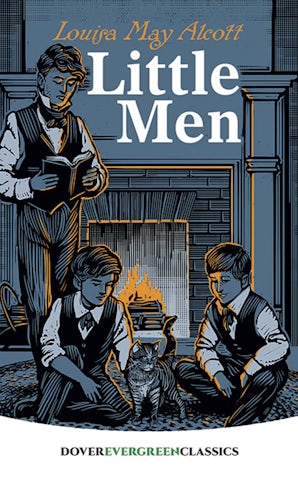 |
Louisa May Alcott | ⭐ ⭐ ⭐ ⭐ ⭐ | Reading Louisa May Alcott is like having a liquid sunshine infusion! I'm so obsessed with the wholesome characters and shenanigans, and it didn't even really bother me that the chapters were isolated events instead of a cohesive novel because each one was so full of warmth and charity. Highly recommend for anyone in need of a comfort read! |
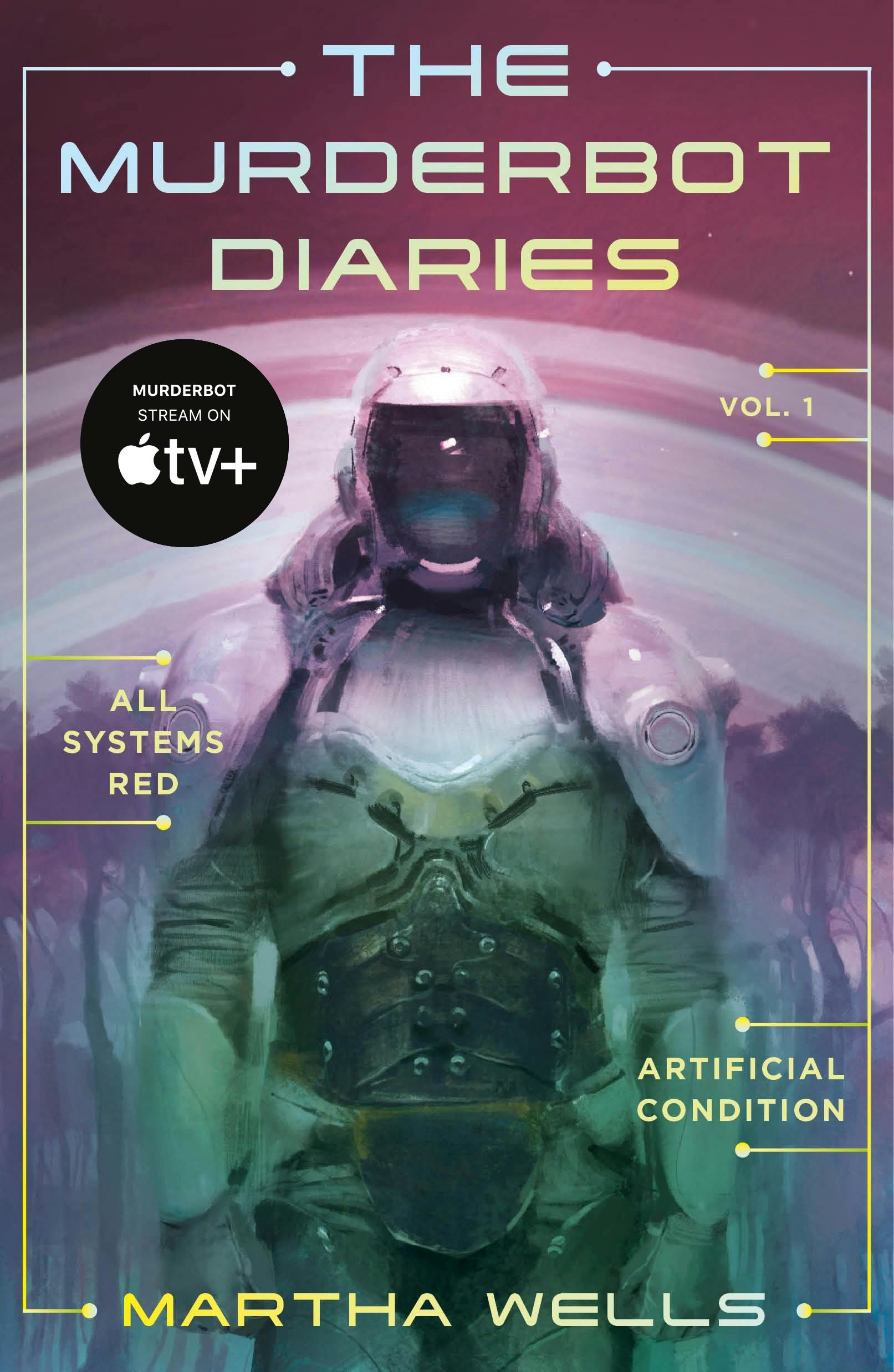 |
Martha Wells | ⭐ ⭐ | I knew going in that Murderbot Diaries probably wasn't going to be my style, and reading Volume 1 was confirmation. The concept is a creative and thought-provoking one, but the plot felt a little patchy at times, and I didn't think Muderbot's inner conflict was very compelling. I did find some of his and ART's quirks entertaining, and I'm curious to know what the TV series is like, but overall the first two novellas in Volume 1 were only a combined 2.5 stars. |
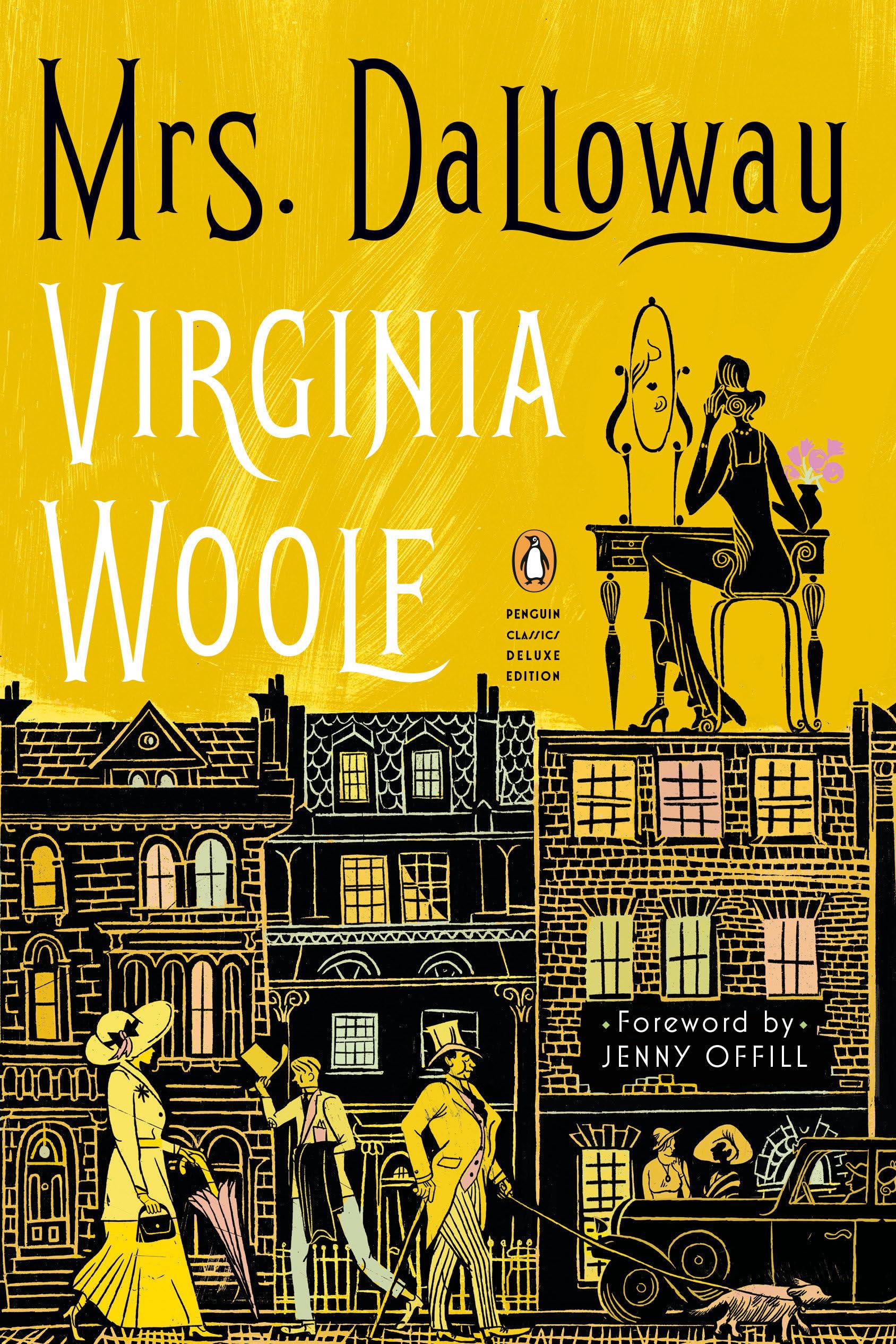 |
Virginia Woolf | ⭐ ⭐ ⭐ | I'm obsessed with the idea of Mrs. Dalloway, but reading the book wasn't as groundbreaking as I thought it would be. I think it's worth a reread someday because I admittedly lost the thread a few times trying to follow Mrs. Dalloway's stream of consciousness. I love the resemblance to Catcher in the Rye (one of my all time favorites), and as always, I appreciate the acknowledgment—which necessarily opens the door for societal reflection and destigmatization—of mental health and PTSD. |
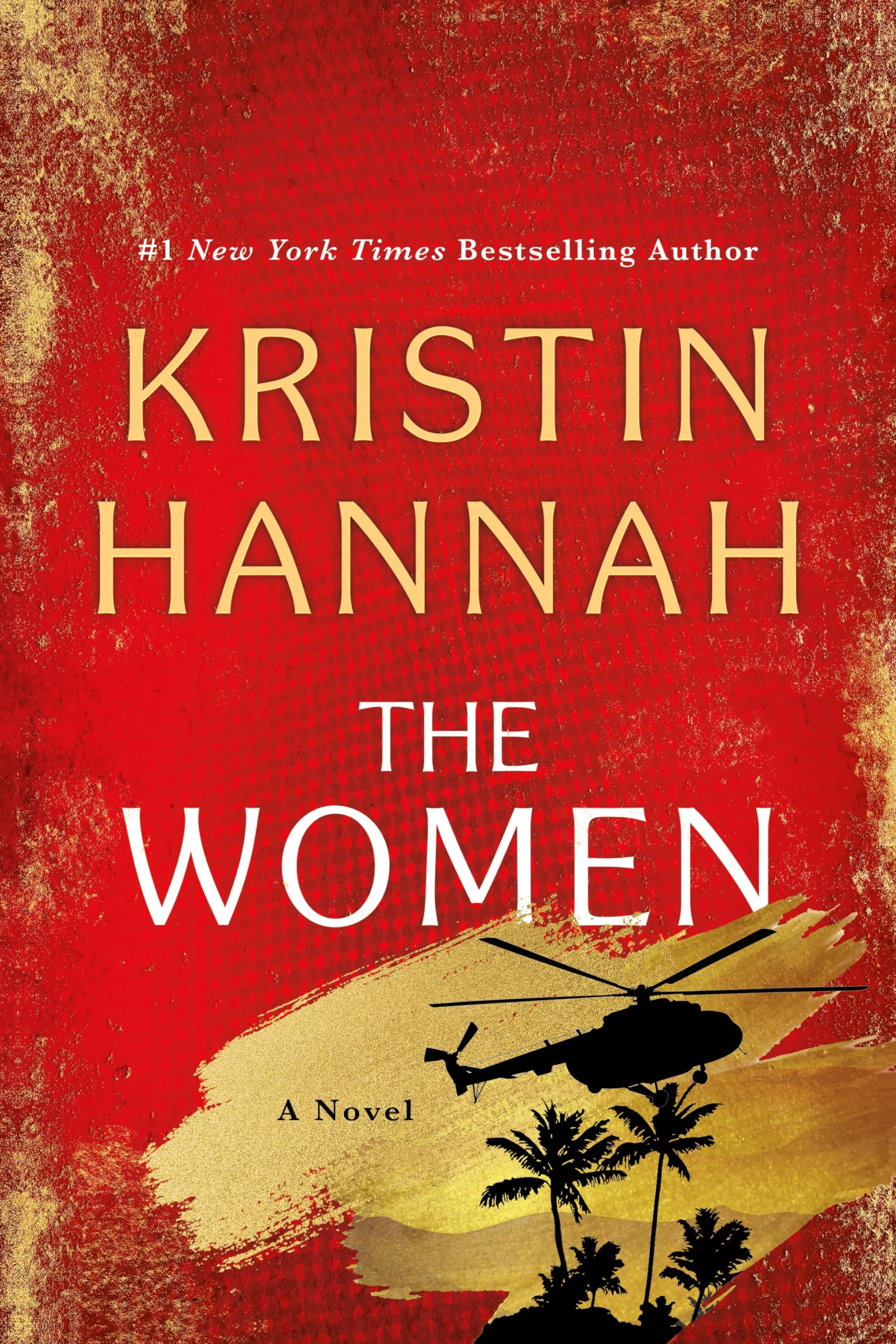 |
Kristin Hannah | ⭐ ⭐ | Part of me is grateful I read The Women. Kristin Hannah gives so much dignity and voice to the women (and men) who served in the Vietnan War, and that recognition is well-deserved, especially given how many people (myself included) have never truly considered the horror and sacrifice of Vietnam. However... I hated reading this book. The amount of suffering Frankie endures caused me repeated physical pain, and I felt like I was being dragged along rather than drawn into the text. I also think the story could have been at least 100 pages shorter. SPOILER ALERT: Over half the book consists of Frankie's torpedoing into deeper and darker depression, and while I understand the importance of documenting that very real pain, it just became too much to process or appreciate. |
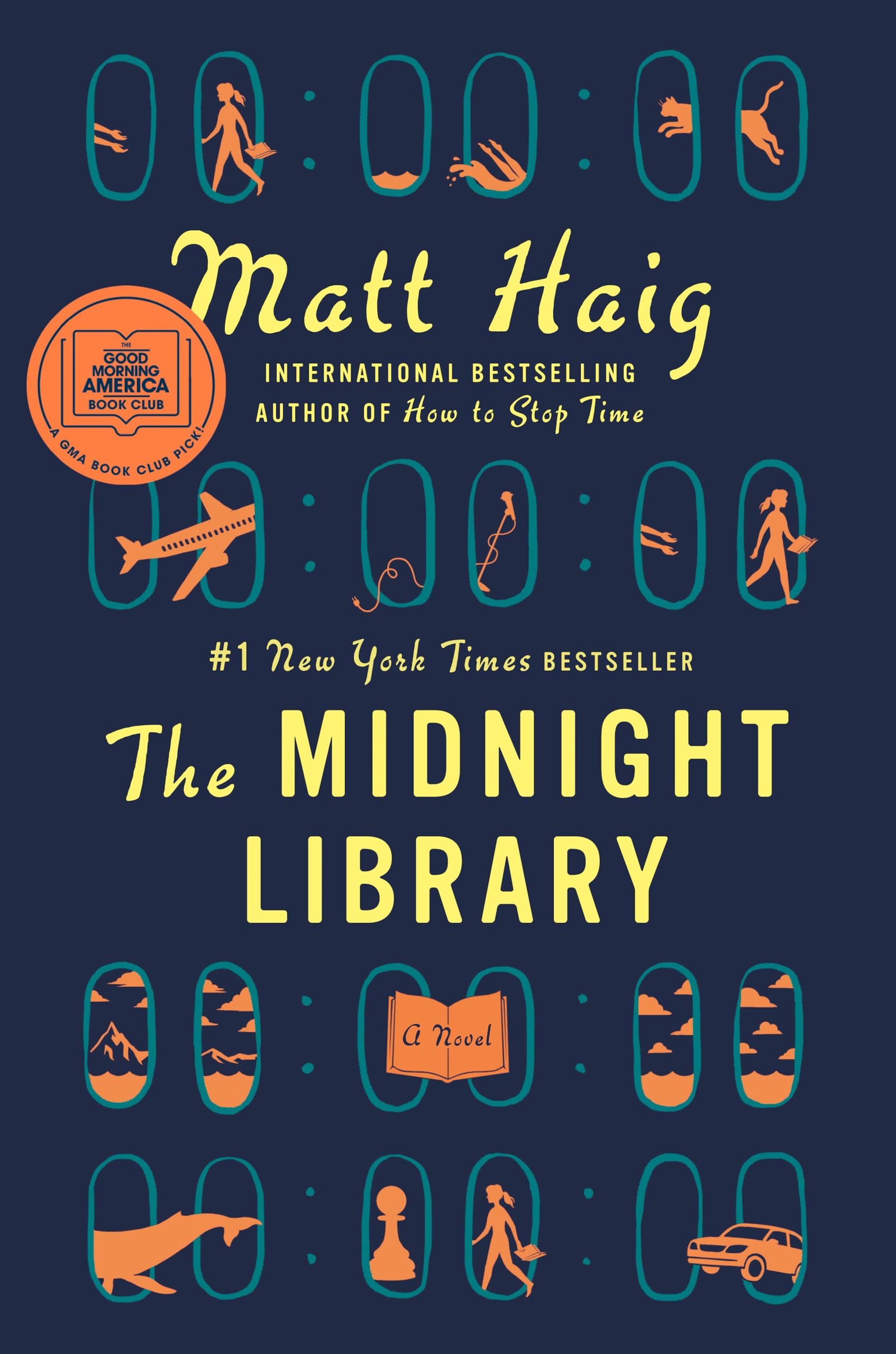 |
Matt Haig | ⭐ ⭐ ⭐ | The Midnight Library strikes an interesting balance between imaginative, existential, and sincere, but I had a few issues with the plot. For instance, it was refreshing when (SPOILER ALERT) Nora met Hugo and they talked about their parallel experiences, but their connection was so insignificant that I wondered why it was included at all. Why introduce the term "slider" and the concept that others exist if there weren't going to be any more in Nora's lives? And does every slider ultimately return to their root life? It certainly felt like that was the only option for Nora, but she was in clinical need of a perspective shift and second chance on her root life, and not all sliders are. (Take Hugo, for instance—he wasn't trying to end the life he came from. He just has an aneurysm. Why did he become a slider in the first place?) Despite my many unanswered questions, I appreciate the themes in the book, and I LOVED pages 211–215, which described Nora's many lives and felt like the epitome of possibility and imagination. |
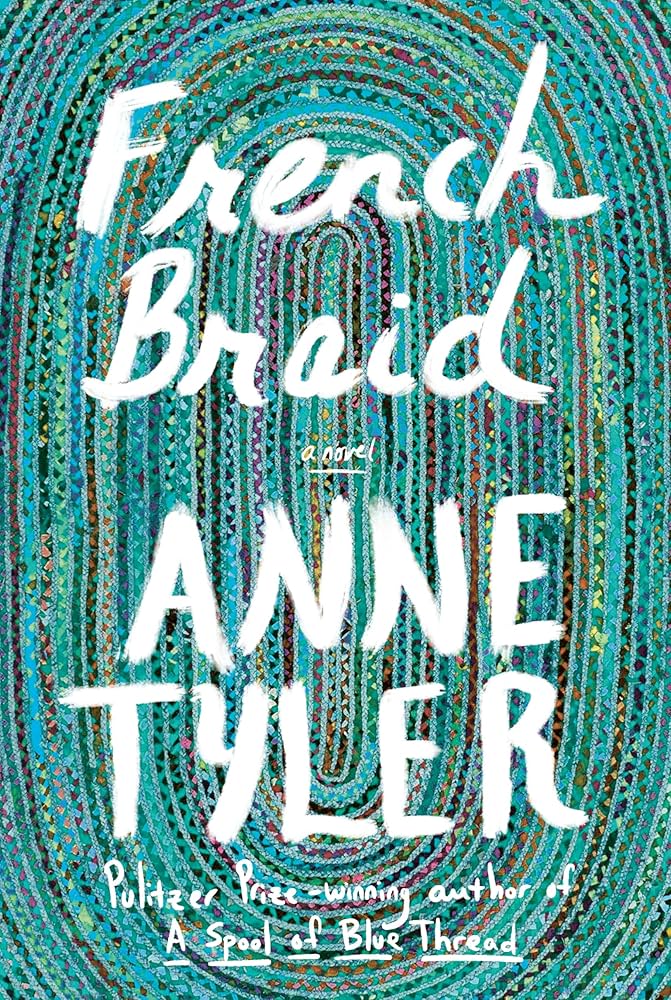 |
Anne Tyler | ⭐ ⭐ ⭐ | The cover of French Braid calls the book a "brilliantly perceptive journey deep into one Baltimore family's foibles, from a boyfriend with a red Chevy in the 1950s up to a longed-for reunion with a grandchild in our pandemic present." While the Garretts' story is rich and perceptive in some ways, my feeling is that decades and key details of characters' lives are skipped over, leaving an incomplete and unsatisfying picture rather than a "deep journey." For some reason, I got very hung up on the fact that we never returned to the timeframe or storyline introduced in the book's opening scene. I love en medias res when it brings us into the story, but in this case, I was left feeling disppointed and wondering what ever happened to Serena and her college boyfriend. |
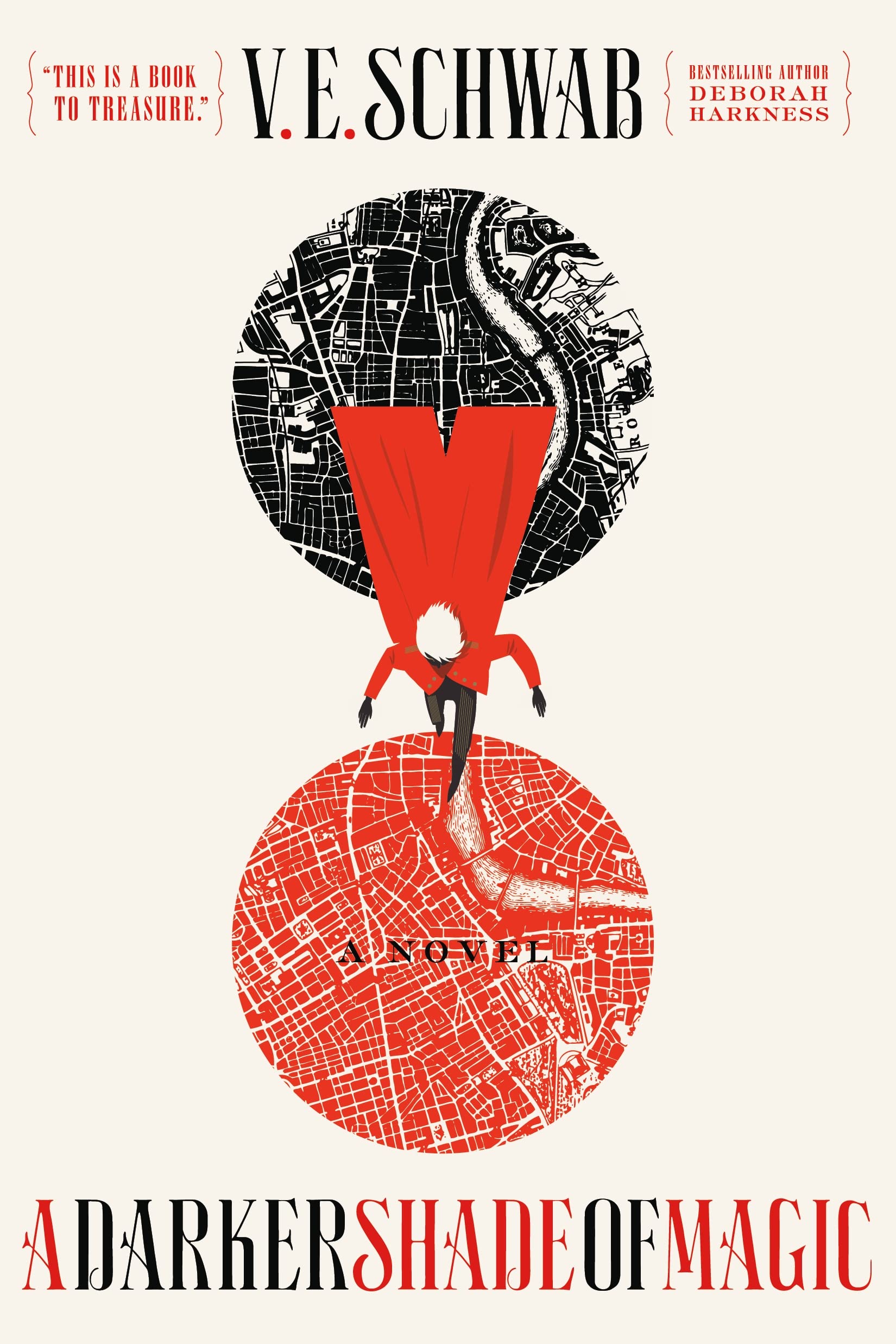 |
V. E. Schwab | ⭐ ⭐ ⭐ | A Darker Shade of Magic was my first fantasy read since middle school and a significant change of pace from the literary and realistic fiction I'm used to. I was surprised (and this shows my complete ignorance when it comes to the fantasy genre) to find that the book was far from juvenille and instead included highly intricate plot lines and an impressive level of imagination. There was a little too much murder and gore for my taste, and I could have lived without some of the cliché tropes, but overall, I'm happy to have experienced the story. |
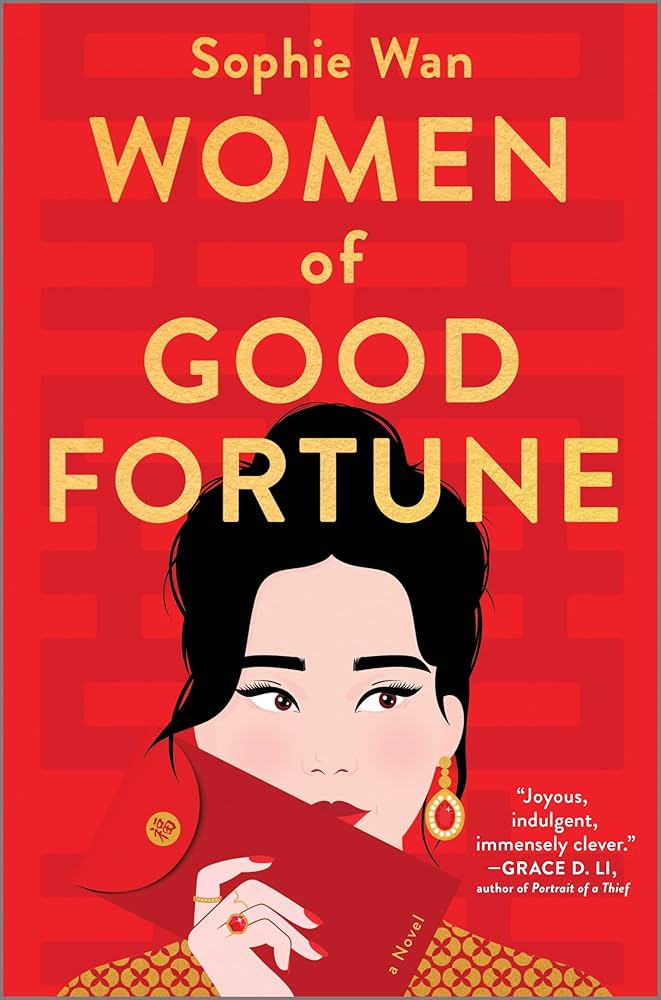 |
Sophie Wan | ⭐ ⭐ | Simply put, Women of Good Fortune is not a good book. The concept—a high-society Shanghai wedding heist carried out by the bride herself—has plenty of potential, but the entire cast is selfish and unlikable, and the book itself is underdeveloped and poorly executed. Things do get slightly more interesting in the second half, but (SPOILER ALERT) most of the plot is dependent upon Lulu being undervalued and mistreated by her friends, and I don't think that dynamic was well enough established to be relied on. |
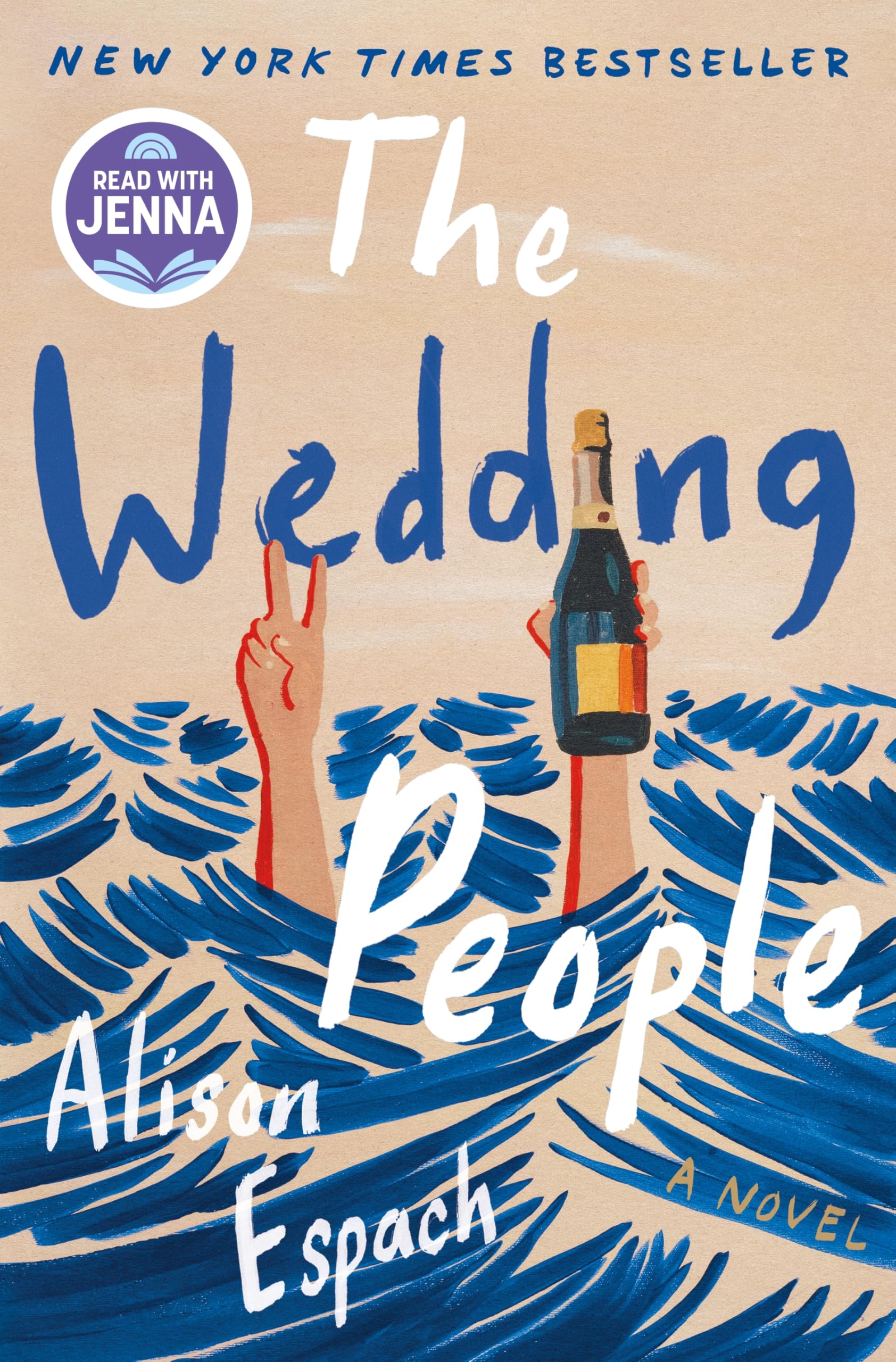 |
Alison Espach | ⭐ ⭐ ⭐ ⭐ | I was expecting The Wedding People to be all fluff, but I have to say I was pleasantly surprised. The plot carries a perfect mix of levity and depth, and the slow revelation of Lilah and Phoebe's hidden secrets was enjoyable and entertaining. I also loved the literary references and odes to famous authors, made possible by Phoebe's career as a professor of 19th-century literature. I just wish the latter third of the book had been a little less cliché because I really felt like the ending didn't live up to the quality of writing and storytelling in the first two thirds. |
 |
Catherine Newman | ⭐ ⭐ ⭐ | Sandwich is one of the most down-to-earth, refreshing books I've ever read. It's not particularly well written or incredibly deep—it just tells an honest, embarrassingly relatable story in a tone that almost feels like you're receiving stream-of-consciousness text messages from a friend. I liked that it wasn't trying to be something it's not. No frills, no over-the-top plot lines, no literary genius. Just a very real story about life, vacation, and menopause. Yes, that's right: menopause. And let's all take a moment to appreciate Catherine Newman for writing such an honest and unapologetic portrayal of it! |
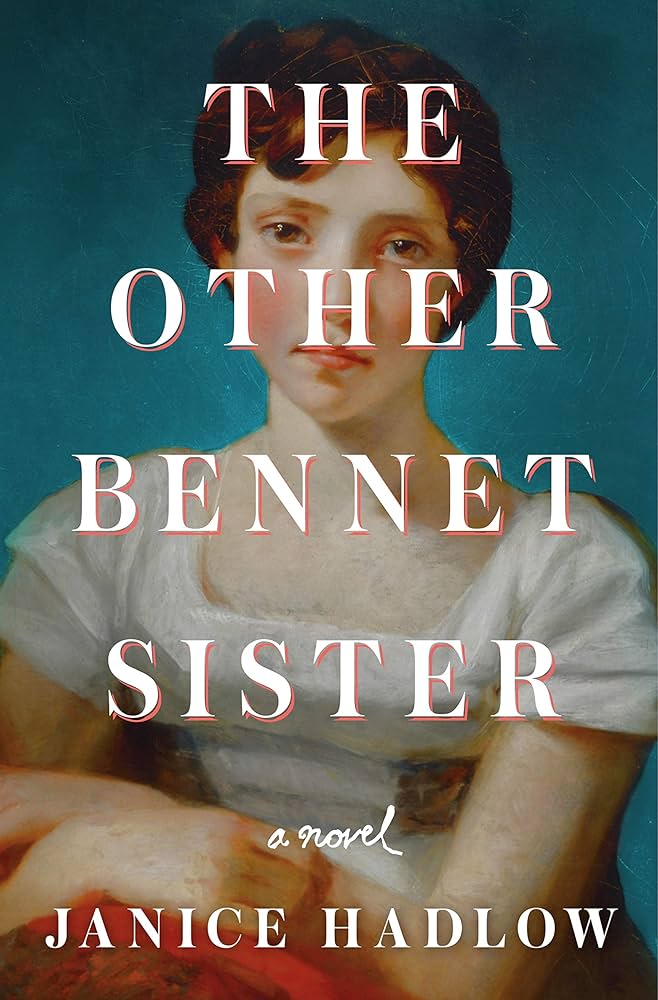 |
Janice Hadlow | ⭐ ⭐ | The Other Bennet Sister has some fascinating and entertaining themes, but the pacing is completely off. Hundreds of pages have no plot whatsoever, just repeated declarations that Mary is ugly, unimpressive, doomed to be an old maiden, etc. At some point, it's like, we get it, she's ugly. SPOILER ALERT: Things finally start to pick up when Mary goes to Gracechurch St to stay with her aunt, but the love triangle that ensues is predictable, not quite believable after the literal hundreds of pages calling Mary a lost cause, and leaves readers (or me, at least) disliking Mary for her lack of awareness and common sense. |
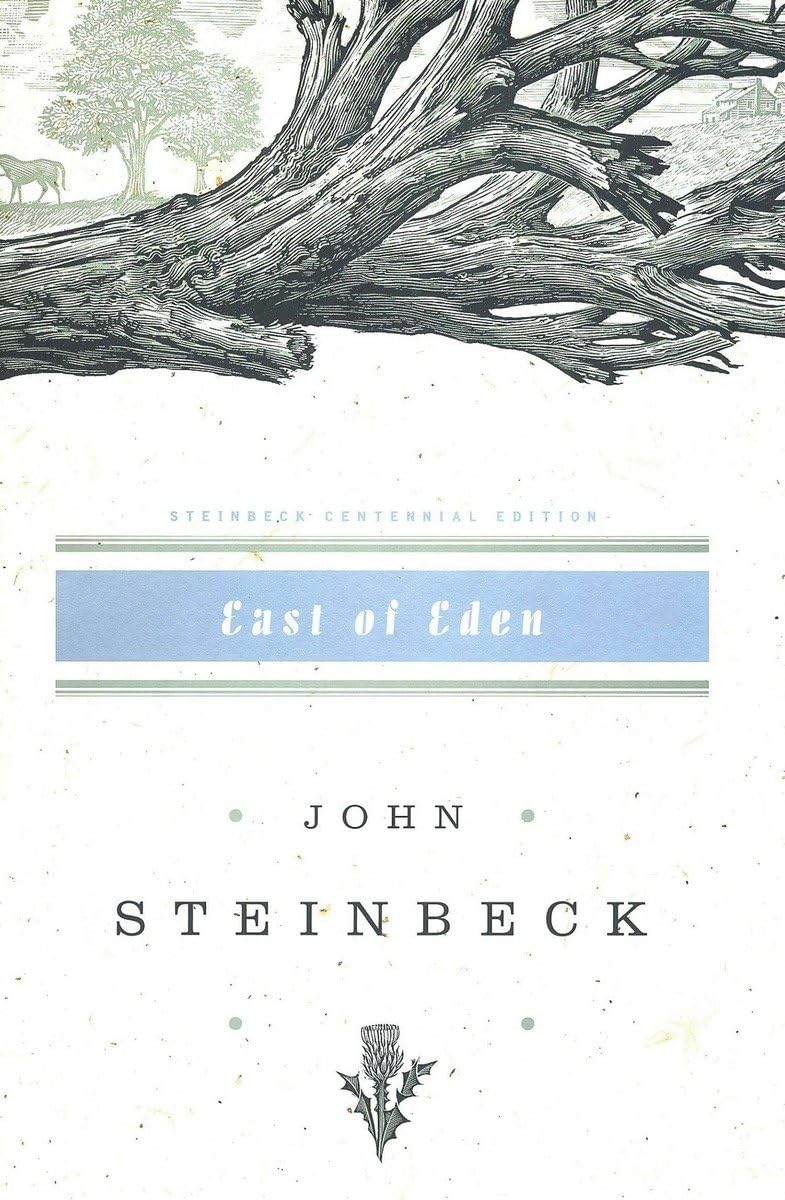 |
John Steinbeck | ⭐ ⭐ | What I enjoy most about reading is the ability to put myself in someone else's shoes and see an intimate image of what life is like for people whose lives I will never live. To glimpse a character's struggles and joys helps me understand the world around me; it's why I love historical and realistic fiction so much. In some ways, East of Eden fits this bill perfectly, but at the same time, a lot of the characters were so unfeeling and non-human that I couldn't relate to them or feel like their storylines illuminated anything real about the world they lived in. I don't believe that someone like Cathy did or ever could exist, and without that conviction, the book wasn't compelling and instead felt like 600 pages of absurdity peppered with vague moral and philosophical teachings. Steinbeck is undeniably an incredibly talented writer, but this book just wasn't enjoyable. |
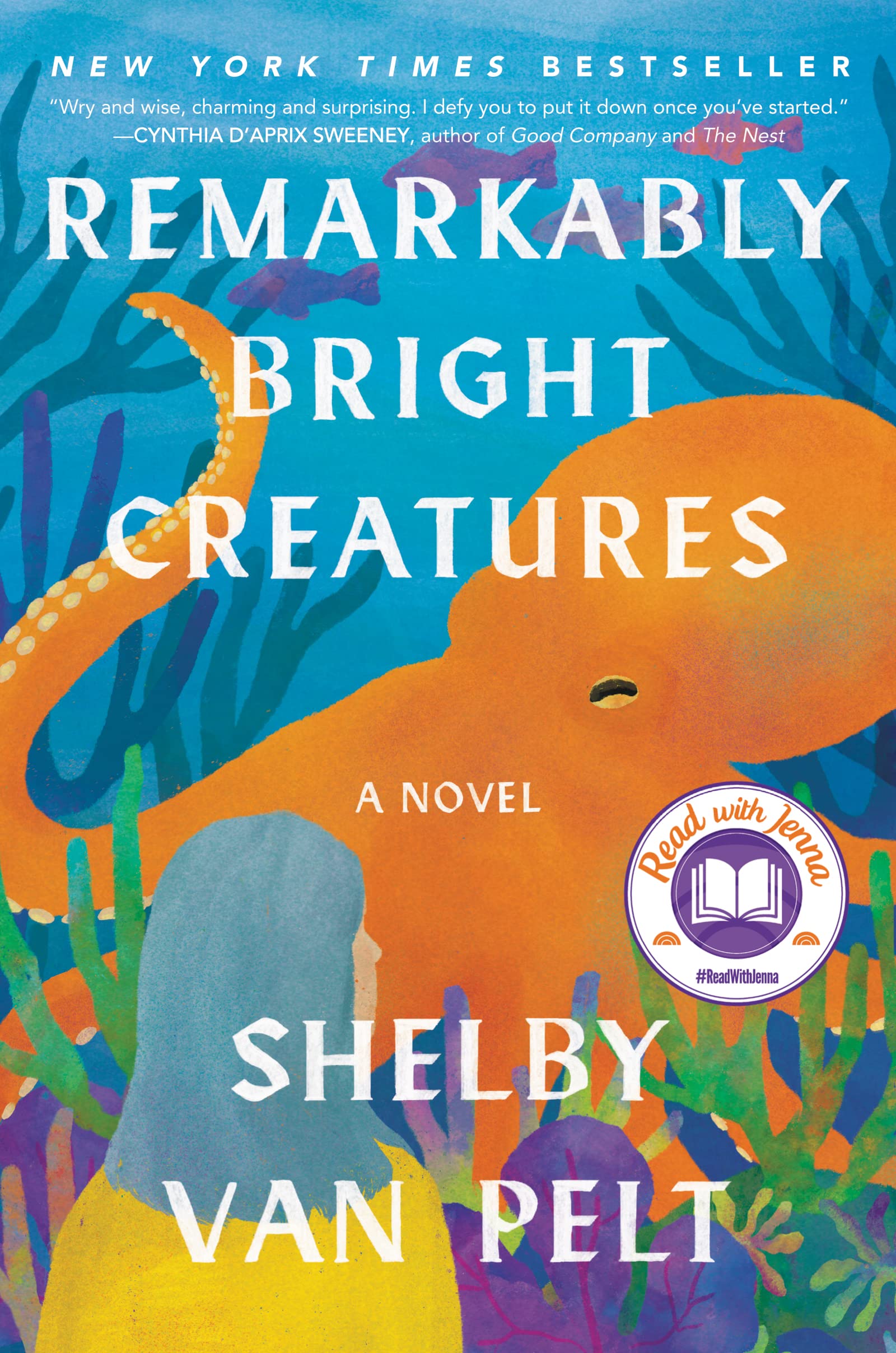 |
Shelby Van Pelt | ⭐ ⭐ ⭐ | Remarkably Bright Creatures is somewhere between 3 and 4 stars for me. The storyline is cute, and there were some fun surprises, but I found Cameron's character (who was supposed to be one of the main protagonists) frankly unlikable. To be thirty years old and still so immature kind of turned me off of his storyline and made it hard to empathize with his journey. I did enjoy Tova's relationship with Marcellus, but I think even Marcellus' chapters could have been a little richer. |
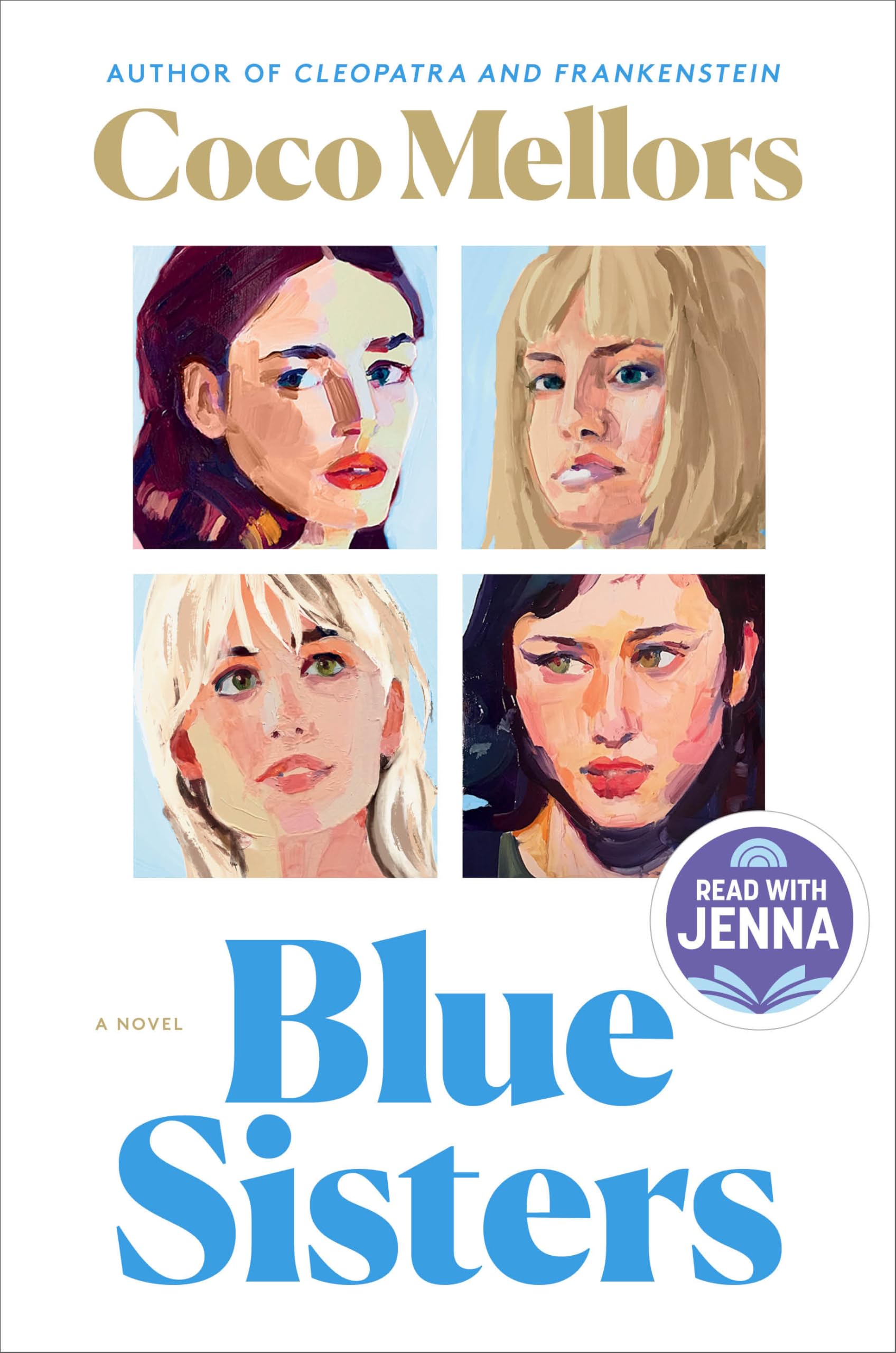 |
Coco Mellors | ⭐ ⭐ ⭐ ⭐ ⭐ | Blue Sisters is my absolute favorite kind of book—a love story that's not about being in love but instead shares the inexplicable bonds of friendship and family. The book is simultaneously a love letter to sisterhood and a story that brings invisible suffering of all kinds to light so they don't feel quite as heavy anymore. |
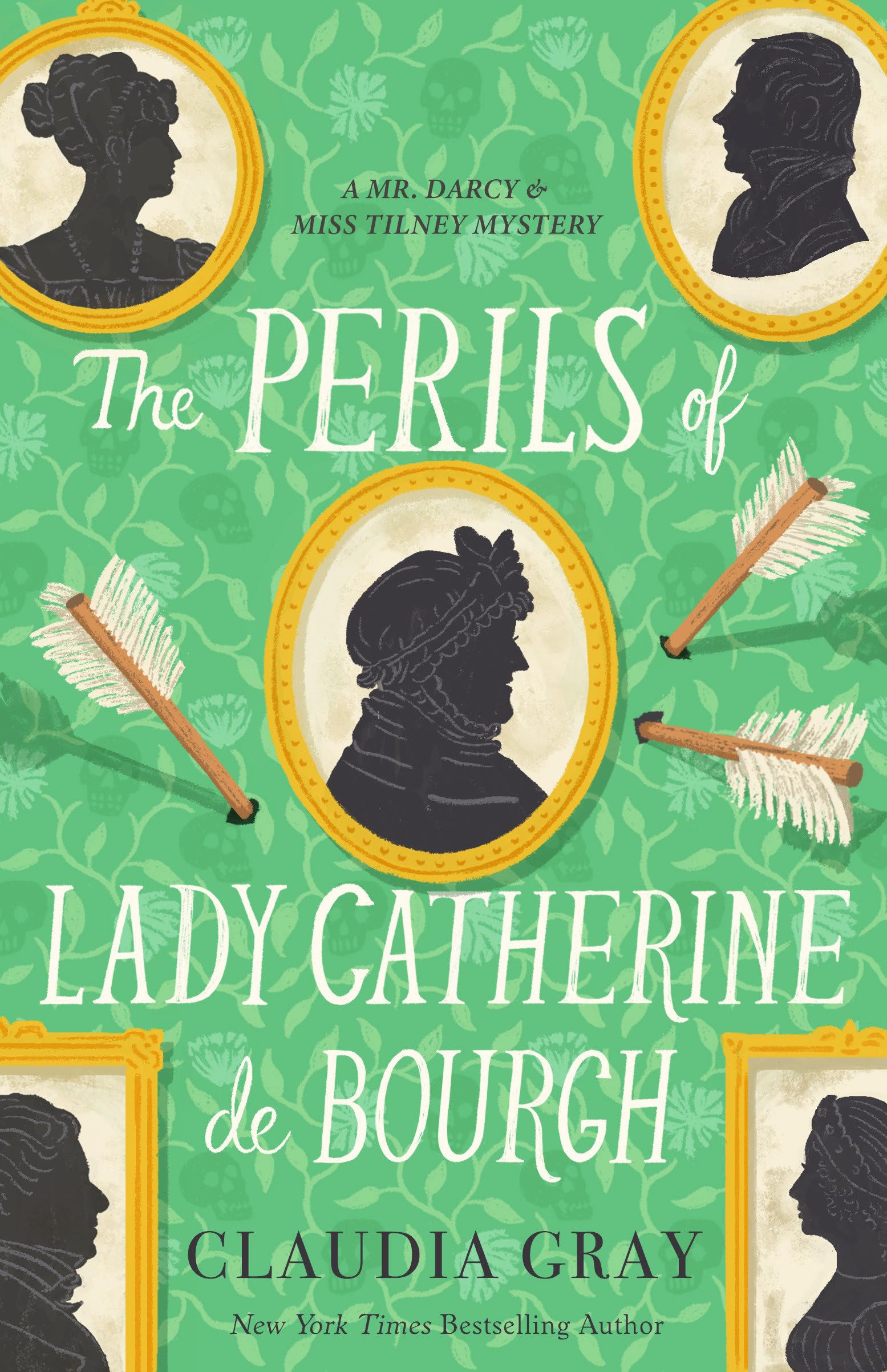 |
Claudia Gray | ⭐ ⭐ ⭐ | I'm sad to say that the Mr Darcy and Miss Tilney mystery series gets worse and worse with each book. The chemistry between Jonathan and Juliet was so fun and compelling in The Late Mrs. Willoughby but (SPOILER ALERT) completely disappeared in The Perils of Lady Catherine De Bourgh (probably to prolong the series and make more money, which really annoyed me). There are some hilarious quips made at the expense of Mr. Collins and Lady Catherine, which would make any Pride & Prejudice fan happy, but aside from that, the book is not worth reading. |
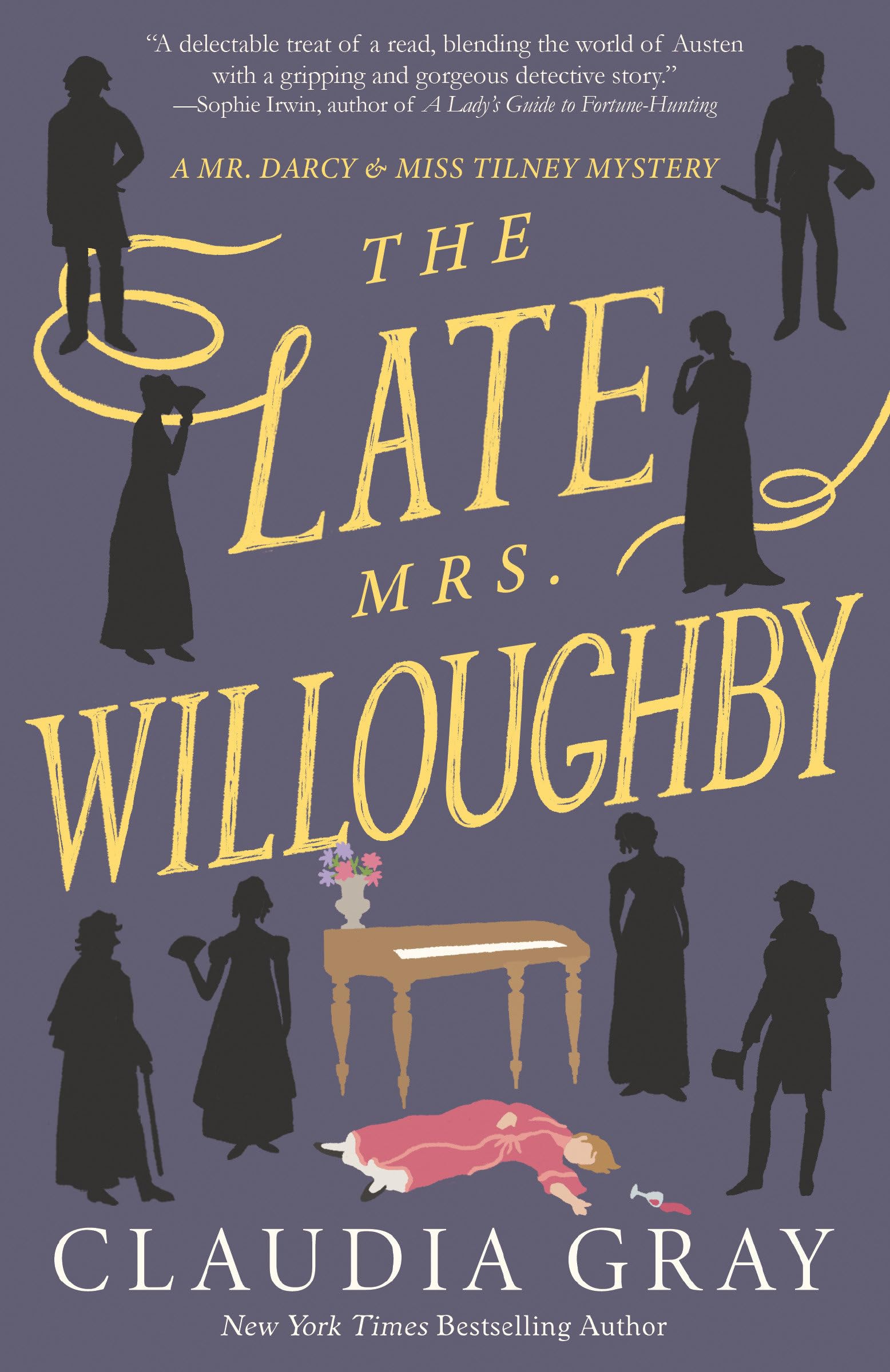 |
Claudia Gray | ⭐ ⭐ ⭐ ⭐ | Even though The Late Mrs. Willoughby had me on the edge of my seat, I can't say I was wholly impressed by it. For one thing, I'm all for suspension of disbelief (this series would be nothing without it), but Juliet and Jonathan witnessing a second murder under such similar circumstances to the first felt a little uninventive, and it's even harder to believe that Juliet's parents would allow her to continue an out-of-town visit with an unidentified murderder lurking nearby. To Gray's credit, I laughed out loud at some of the witticisms and subtle digs, and I enjoyed the portrayal of Colonel Brandon and Marianne's love as both turbulent and tender. In terms of shortcomings, the scientific discovery subplot felt a bit out of place, and the general plotline was a little too similar to The Late Mr. Wickham to have any sense of novelty. Regardless, I did thoroughly enjoy the read. |
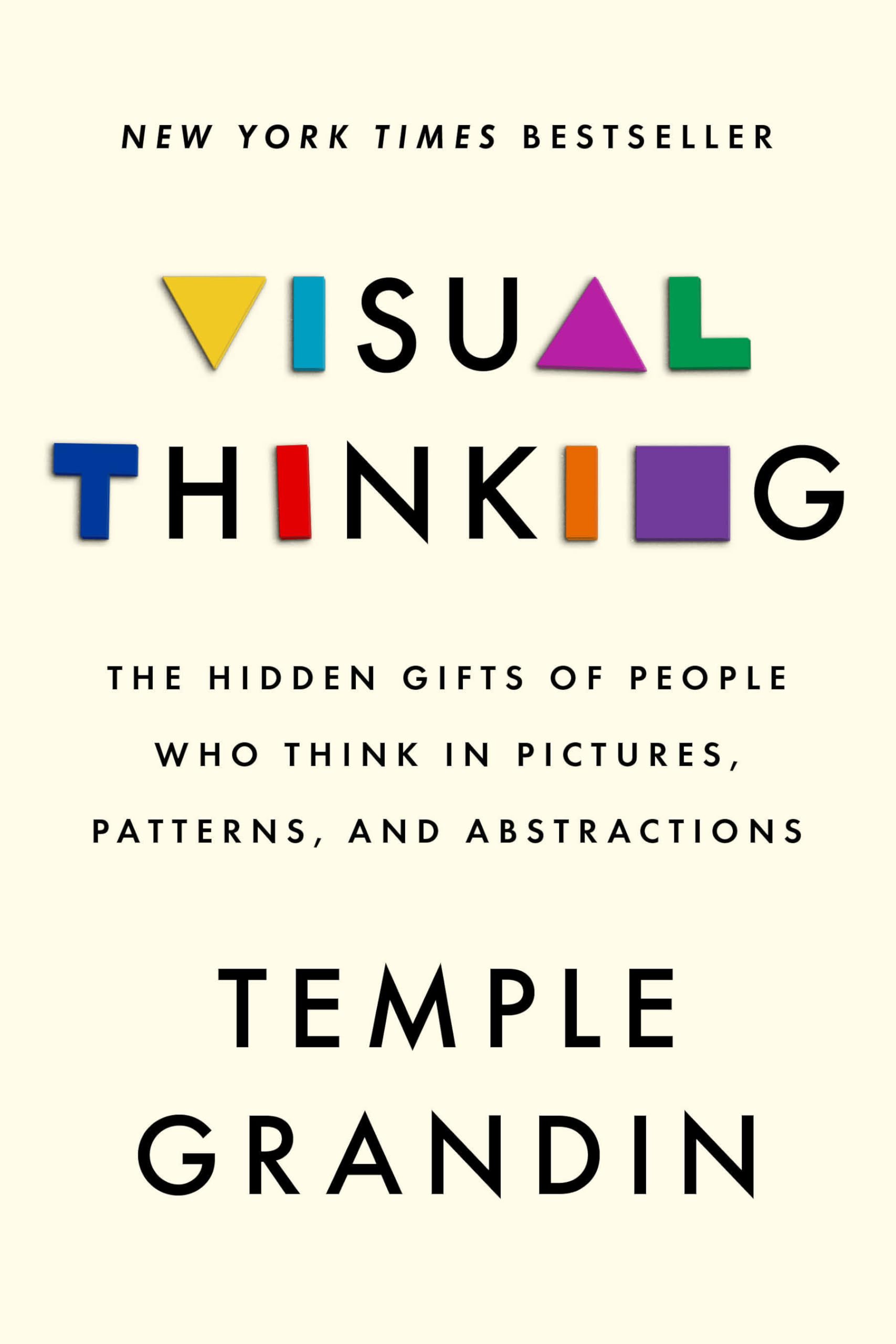 |
Temple Grandin | ⭐ ⭐ | My excitement upon starting this book was very real (cognitive psychology and the concept of thinking in pictures are both incredibly interesting to me), but it quickly fizzled out when I discovered that only one of seven sections is actually about visual thinking. Grandin starts off strong with an overview of what it means to think in pictures, how you know when you're a visual thinker, and how to appreciate the thought patterns and skillsets of those whose minds work differently. From there, the book turns into a compilation of personal stories, including a whole chapter of boasts about how easily she could have prevented famous engineering disasters as an object visualizer and an entire section on why animals should be treated with the same respect and compassion as humans. |
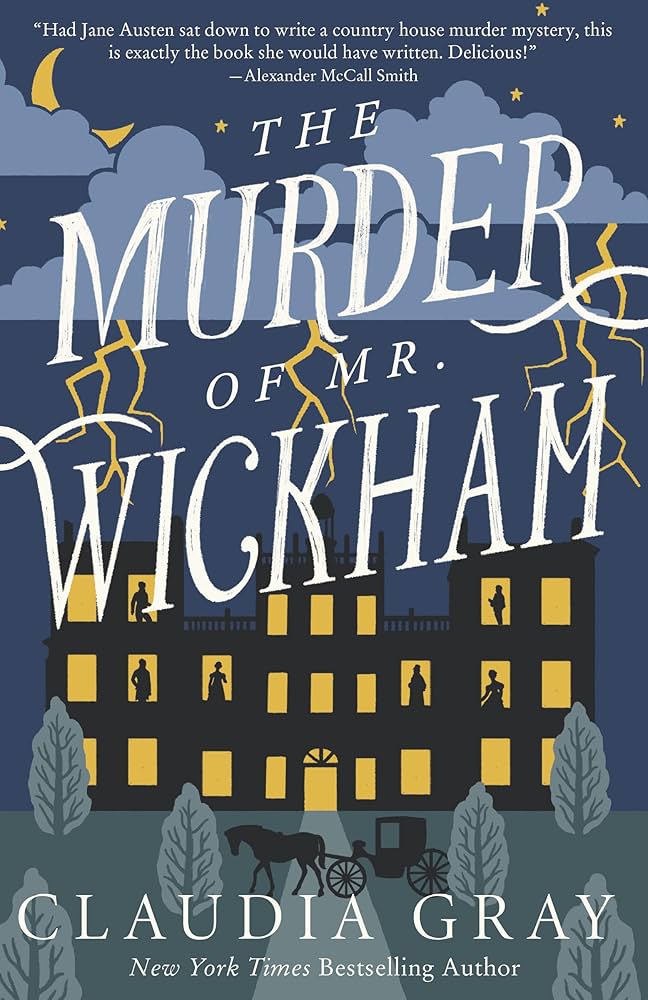 |
Claudia Gray | ⭐ ⭐ ⭐ ⭐ ⭐ | The Murder of Mr. Wickham is a dream come true for Jane Austen fans. The leading couples from every Austen novel become friends and spend the summer together at Hartfield, and Mr. Darcy and Elizabeth's son teams up with Mr. Tilney and Catherine's daughter to solve a riveting (and, frankly, somewhat spicy) murder mystery. All the while, readers get an imaginative epilogue to the most famous marriages in the Jane Austen universe and a perfect combination of Regency area amusements and modern twists like social anxiety, feminine enterprise, and pushing back against faith. |
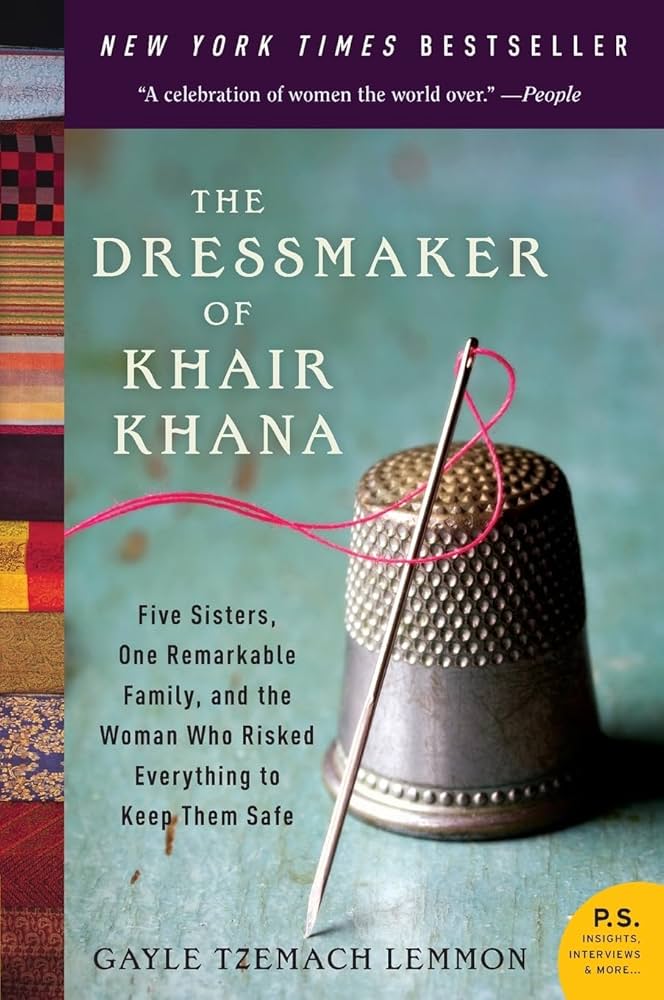 |
Gayle Tzemach Lemmon | ⭐ ⭐ ⭐ | The Dressmaker of Khair Khana tells an incredible story but doesn't do it incredibly well. Kamila's courage and entrepreneurship are inspiring, but in my opinion, Lemmon's writing style is only okay. I feel like the pacing wasn't what it could have been, and although I love an em dash as much as the next person, Lemmon was pushing it a little with how many she used (in the Introductoin alone!). |
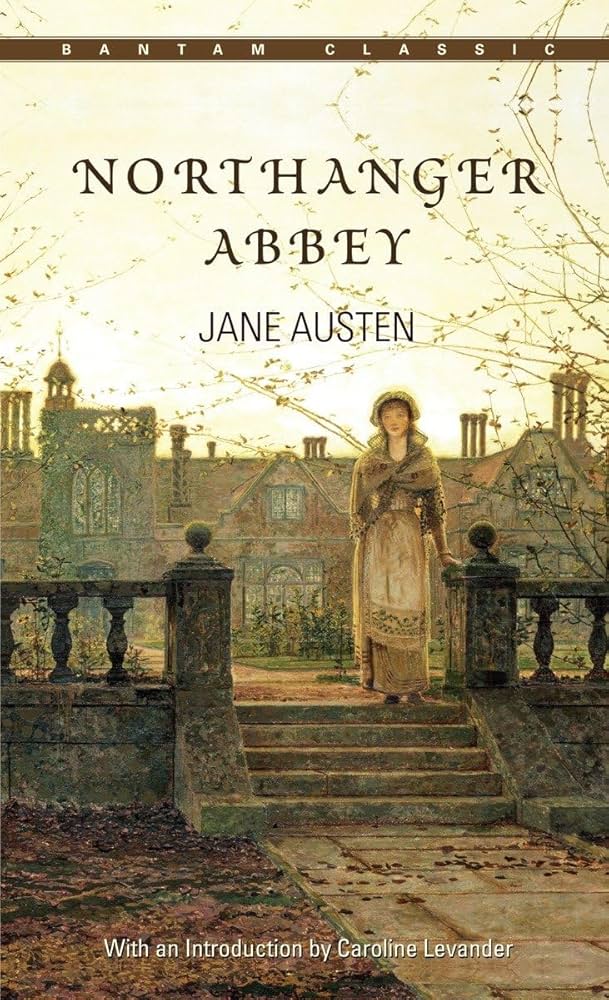 |
Jane Austen | ⭐ ⭐ ⭐ ⭐ ⭐ | Northanger Abbey is a hoot! Catherine Morland is an entirely lovable protagonist, partially by being perfectly sweet and partially because of naivete, which leads to a hilarious lack of awareness and even laughable ridiculousness. I've always known Austen was a genius, but her temporary lapses into second person and satirical destructions of the fourth wall in this work are particularly brilliant, and it was truly a pleasure to be swept up by the goings-on of Bath for the week I spent reading. |
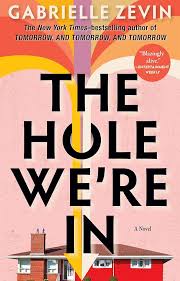 |
Gabrielle Zevin | ⭐ ⭐ | I assumed after reading Tomorrow and Tomorrow and Tomorrow that all of Zevin's books would be masterpieces, but The Hole We're In quickly put an end to that theory. The majority of the story revolves around debt (mainly of the credit card variety), which is exceptionally dry, and all the characters lie in a sort of middle ground where they are neither likable nor worthy of hate—in other words, also dry. |
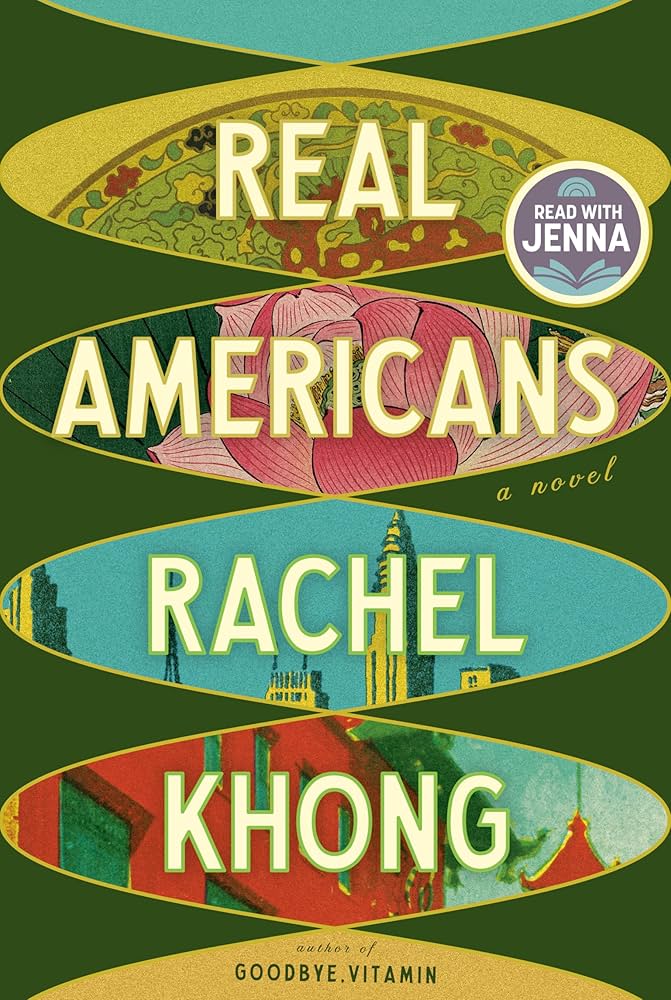 |
Rachel Khong | ⭐ ⭐ ⭐ | I think Real Americans is an unfortunate case where the sum is actually much less than its parts. Even though there are interesting and culturally rich threads in the book (SPOILER ALERT: especially Nick's grandmother's story of experiencing the cultural revolution and escaping China to pursue science), the plotlines taken together are disjointed and barely make sense. It was a disappointing 2.5 stars for me. |
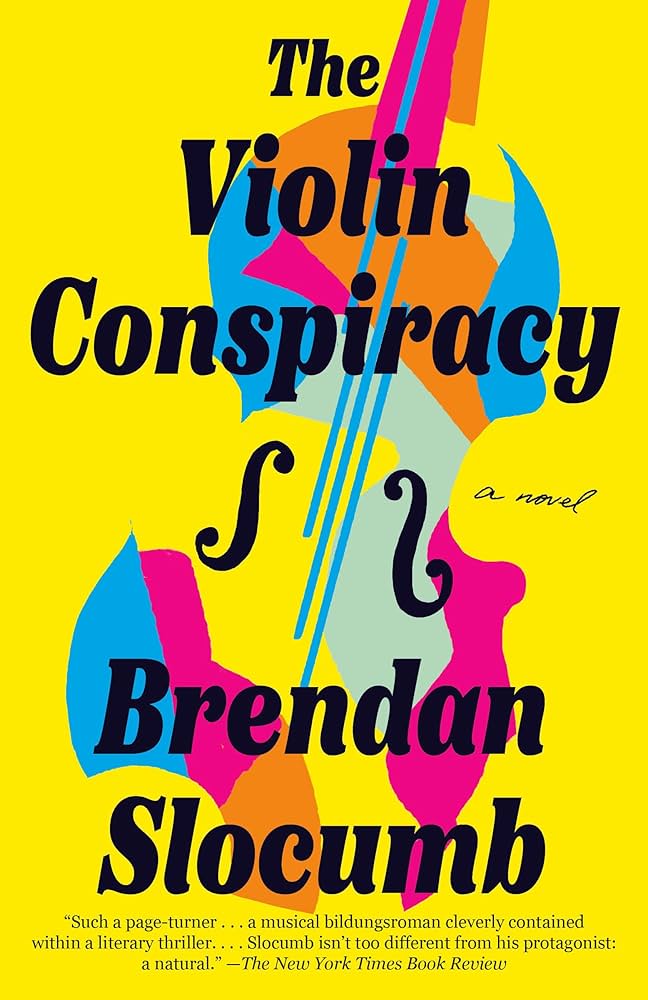 |
Brendan Slocumb | ⭐ ⭐ ⭐ | Unfortunately—and it really is unfortunate because I had high hopes for the book after loving Brendan Slocumb at the Columbus Metropolitan Library author series—The Violin Conspiracy just isn't very interesting. My fellow author event attendees swore that Ray's journey in The Violion Conspiracy was "so much better than Symphony of Secrets" (reviewed below), but I really can't say that I agree. Unless you literally live and breathe violion and/or classical music, it's pretty much impossible to relate to the main character (or to even believe that someone so obsessed with a fiddle could exist in real life), and the only plot point that successfully creates intrigue happens so late in the novel that it's hardly worth including at all. |
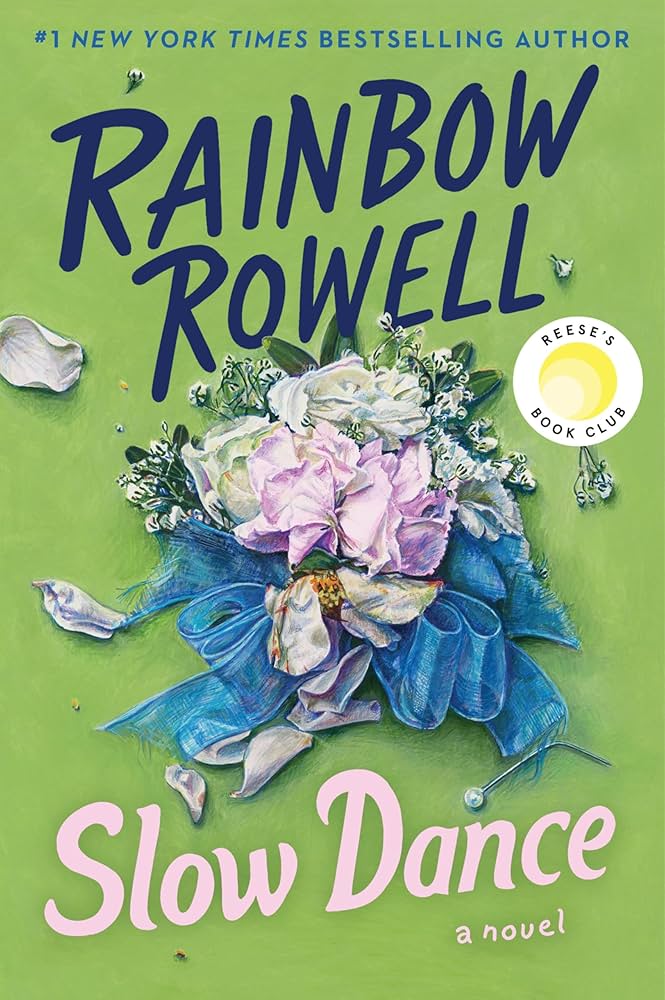 |
Rainbow Rowell | ⭐ ⭐ ⭐ | I got sucked into this story at the start, but once I realize it was 400 straight pages of "will they, won't they" (Mikey's words, and I couldn't agree more), I quickly lost interest. Call me a cynic, but I always find it annoying and hard to believe when literary characters are secretly, deeply in love with each other for a decade or more but at the same time never make an effort to speak or see each other. There were a few nice moments, but overall it's not the kind of book I can take in large doses. |
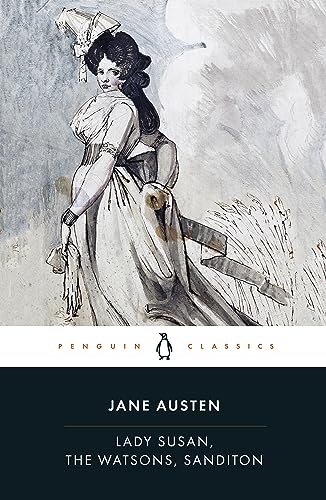 |
Jane Austen | ⭐ ⭐ ⭐ | Since this book is comprised of three separate stories, I have one mini review for each novella. It took me a while to grasp what was going on in "Lady Susan" because of the epistolary genre, but once I finally oriented myself, I thought the plot was pleasantly cheeky and entertaining. 4 stars. "The Watsons," although disappointingly unfinished, was, in typical Jane Austen fashion, very charming, and I loved Emma's headstrong but gentle disposition (reminiscent of my all-time favorite literary character, Lizzie Bennet). Also 4 stars. "Sanditon," however, was by far the worst thing I've read by Jane Austen. I couldn't understand why the Parkers were characterized as kindhearted and humble when they never stopped droning about business ventures, and the whole "invalid" siblings plot line (which I assume was supposed to be satirical and humurous) was quite lost on me. 2 stars. |
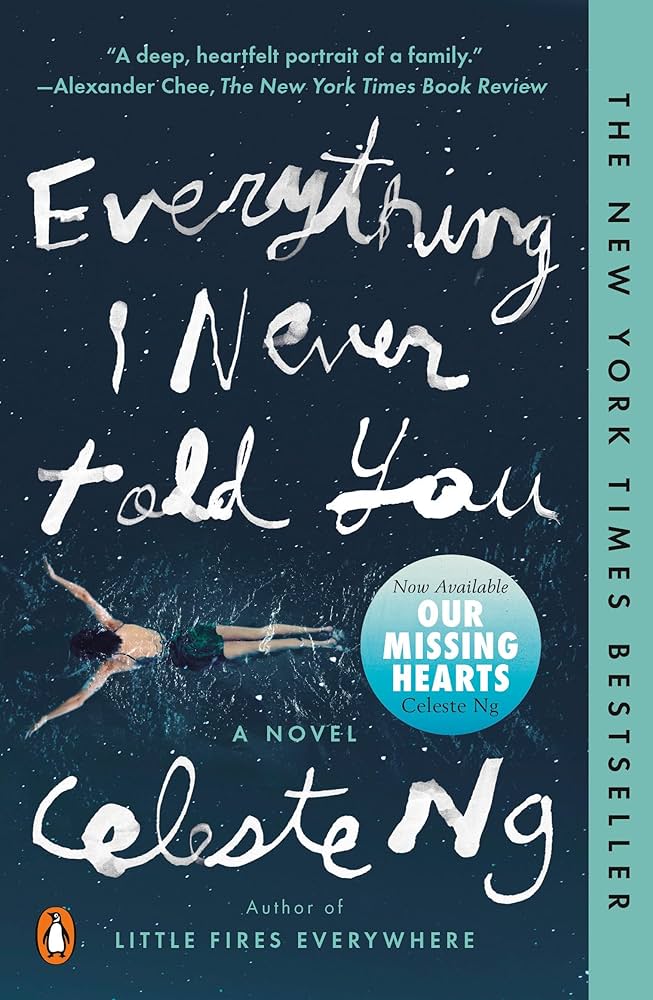 |
Celeste Ng | ⭐ ⭐ | Before reading Everything I Never Told You, I would have had no problem saying Celeste Ng was an artistic genius and one of my favorite authors, but now... let's just say it'll be a long time before I can forget how depressing the Lee family is in this book. I'd say the plot and execution were average or maybe slightly above, but I was constantly so upset for and disappointed in the characters that the entire read was far from enjoyable. One positive thing worth mentioning, is that as a biracial (and specifically, half-white, half-Chinese) individual, I was really excited that the protaginasts in Everything I Never Told You share my identity. It's not often that happens. |
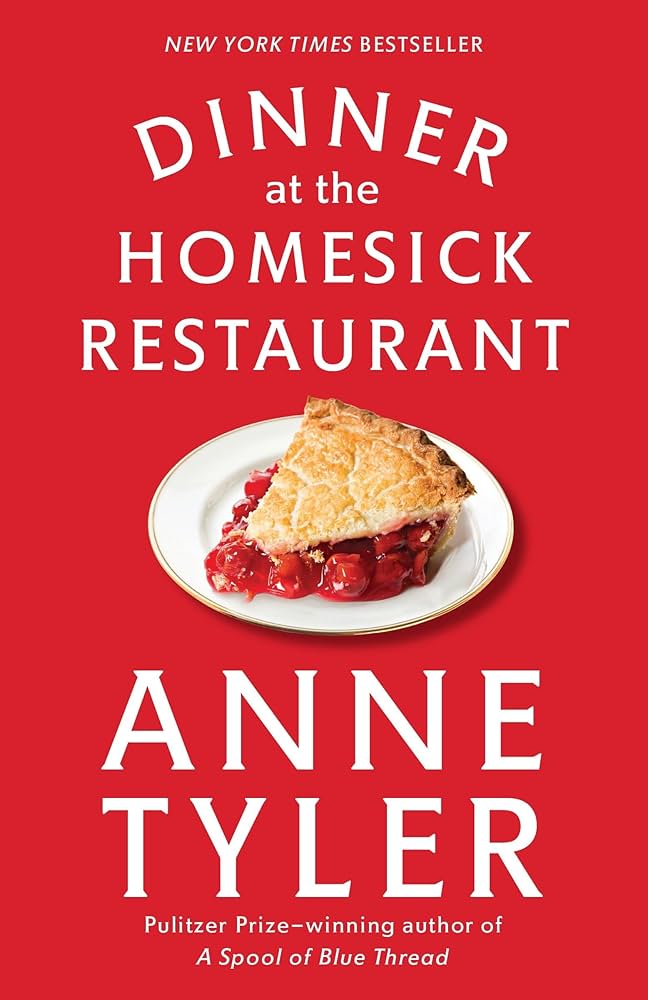 |
Anne Tyler | ⭐ ⭐ ⭐ ⭐ ⭐ | Dinner at the Homesick Restaurant is my absolute favorite brand of story—a novel that chronicles the overlapping lives of a group of characters (in this case, a family). Personally, I'm a huge fan of books about ordinary people growing up, making mistakes, falling in love—in other words, just existing—and Dinner at the Homesick Restaurant is exactly that. For what it's worth, I do think Cody is an incredibly petty and unlikable character, and some of the langauge in the book wouldn't be publishable today (it was in 1982). It's probably more of a 4.5/5 if we're being precise, but either way, I loved every page of it. |
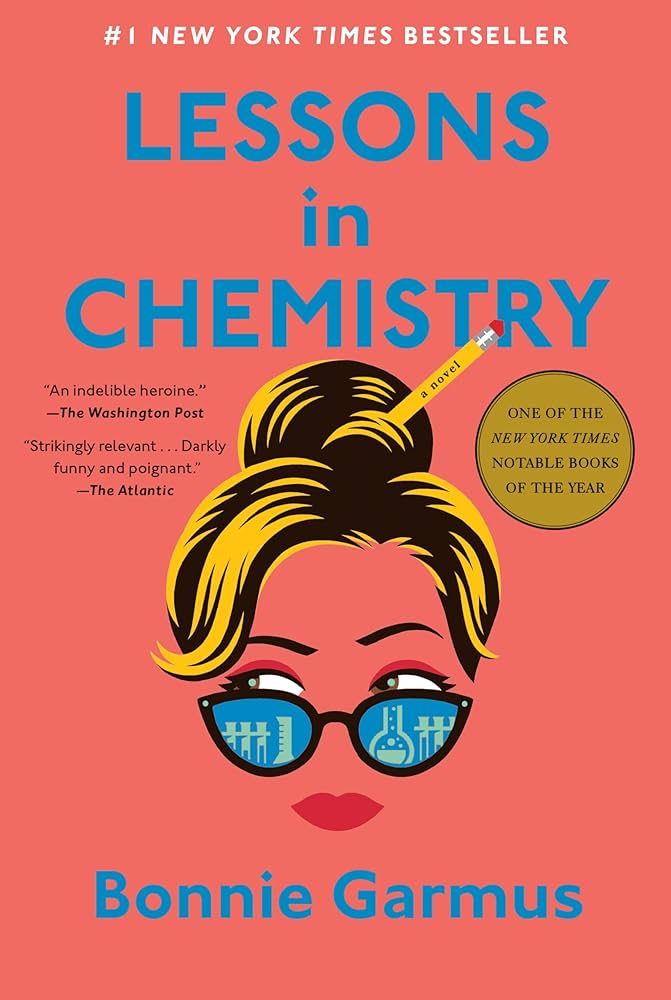 |
Bonnie Garmus | ⭐ ⭐ ⭐ ⭐ | I would say Lessons in Chemistry is a bit of a mixed bag but overall a fun read. What started out as a cookie cutter and not very believable love story eventually picks up some deeper and more interesting threads, and I think Elizabeth's character shines light on an underappreciated and perhaps even forgotten demographic of the 1960s. Personally, I also enjoyed the many nods to rowing, which I found to be a unique touch, and even though the ending felt very strange and shoddily constructed, the book is overall entertaining and, like I said, a fun read. |
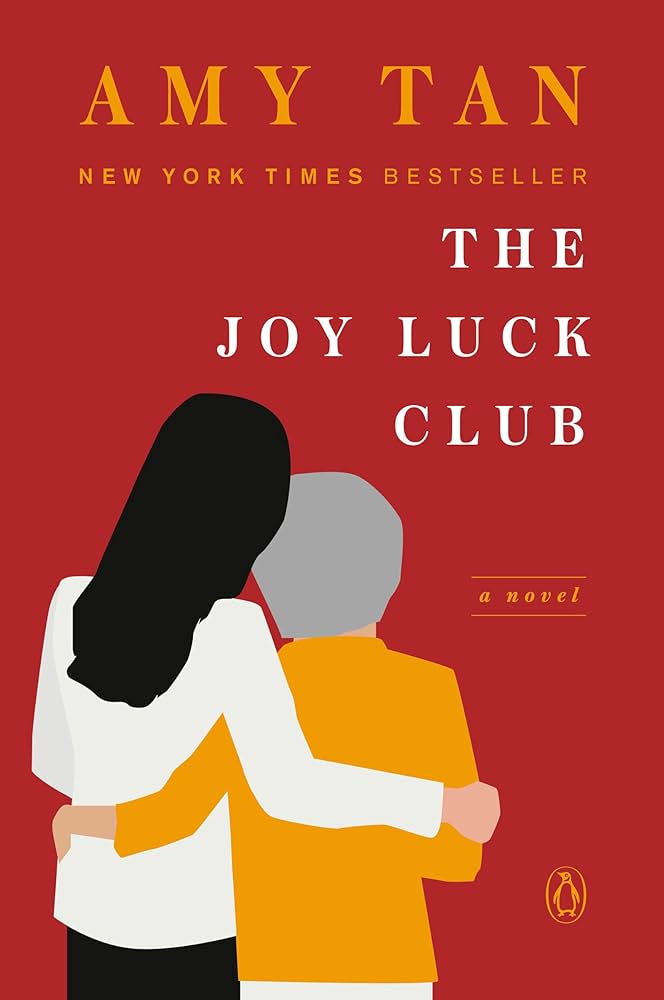 |
Amy Tan | ⭐ ⭐ ⭐ ⭐ | Truth be told, I had a really hard time keeping all the characters' stories straight in this book (shoutout to whoever penciled in notes on the character list of my local library's copy), but one perk of the ensemble cast and their alternating perspectives is the diversity of experiences shared. I think Tan does a really great job of painting parallel life portraits that are completely unique yet all rooted in a shared identity, and I also enjoyed the juxtaposition of community and isolation that each of the women faces. I wish the story spent a little more time on Jing Mei's trip to China since it seemed to be set up as major plot point, but for what it's worth, the final chapter where (SPOILER ALERT) she and her sisters finally meet was an absolutely perfect ending and a beautiful scene to close with. |
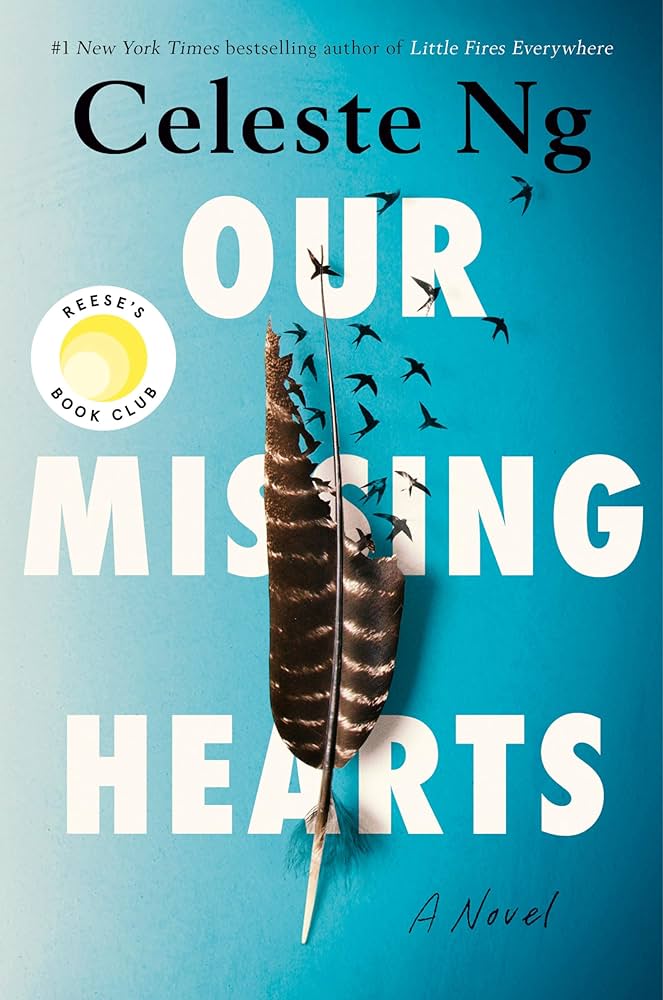 |
Celeste Ng | ⭐ ⭐ ⭐ ⭐ ⭐ | When I started this book, I didn't think it would be a 5-star read. I thought, "The circumstances around Margaret's disappearance are somehow both too clean cut and too vague—I don't see how this could be made interesting to a reader or pardonable by Bird." But as I read on, and especially as Margaret's life story came to light in Part II, I found myself surprised, confused, and even a little disappointed by the turns the plot took, and that's how I became invested and how the book ultimately earned 5 stars for me. By taking a small seed of reality and turning it into a work of fiction that is at once unbelievable and absolutely conceivable, Our Missing Hearts is a comment on today's society, a tale of sacrifice, and, most importantly, just a great story. |
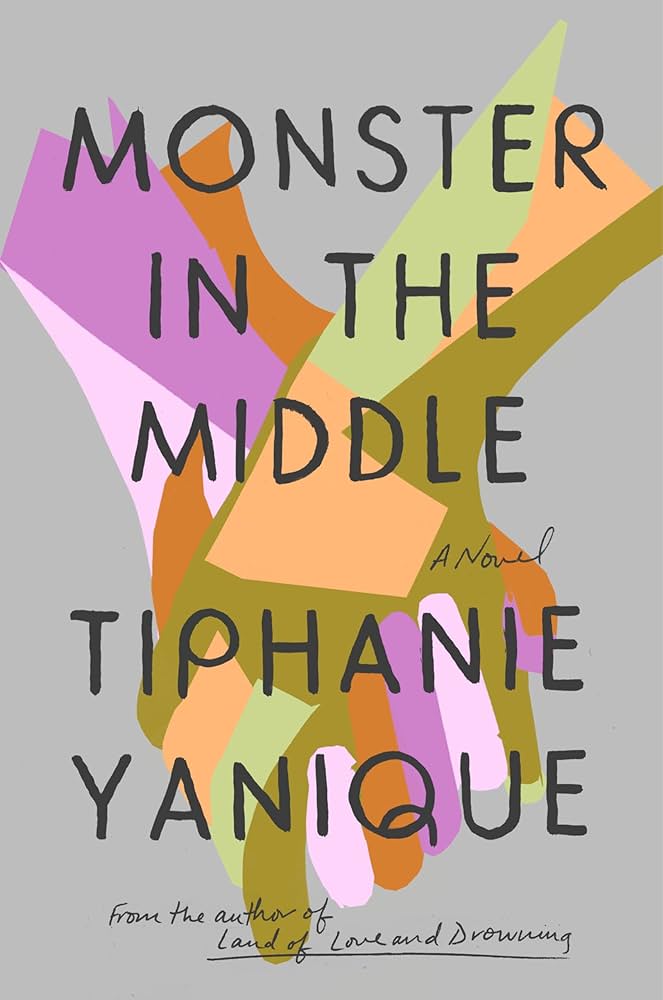 |
Tiphanie Yanique | ⭐ ⭐ | The concept of Monster in the Middle—how "one couple's romance is intrinsically influenced by the family lore and love stories that preceded their own pairing" (PRH)—is a really intriguing one, but personally, I don't think the text delivered what I was hoping for. Instead of having identities and experiences mingle and evolve across generations, each couple's relationship felt distinct from the others and never overlapped with the next. Not a terrible book if you don't mind a lot of sexual content, but I think it fell short. |
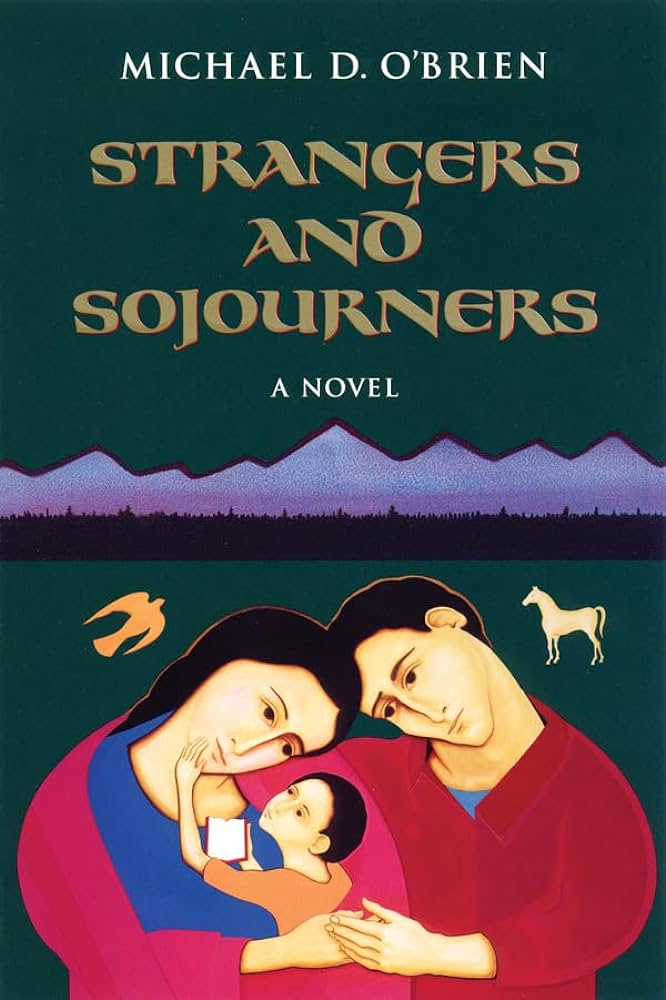 |
Michael D. O'Brien | ⭐ ⭐ ⭐ | After reading O'Brien's Sophia House trilogy, which is an absolute work of art, Strangers and Sojourners was pretty disappointing. The philosphical and wandering tone that works so well for Sophia House felt clunky and out of place for a tale of rural life in a British Columbian town, and the plot itself was also unfocused and largely uneventful. I really didn't feel a sense of momentum while reading, and it was easy to walk away from the book thinking that it had some tender and well-written moments but that nothing really compelling happened in it. |
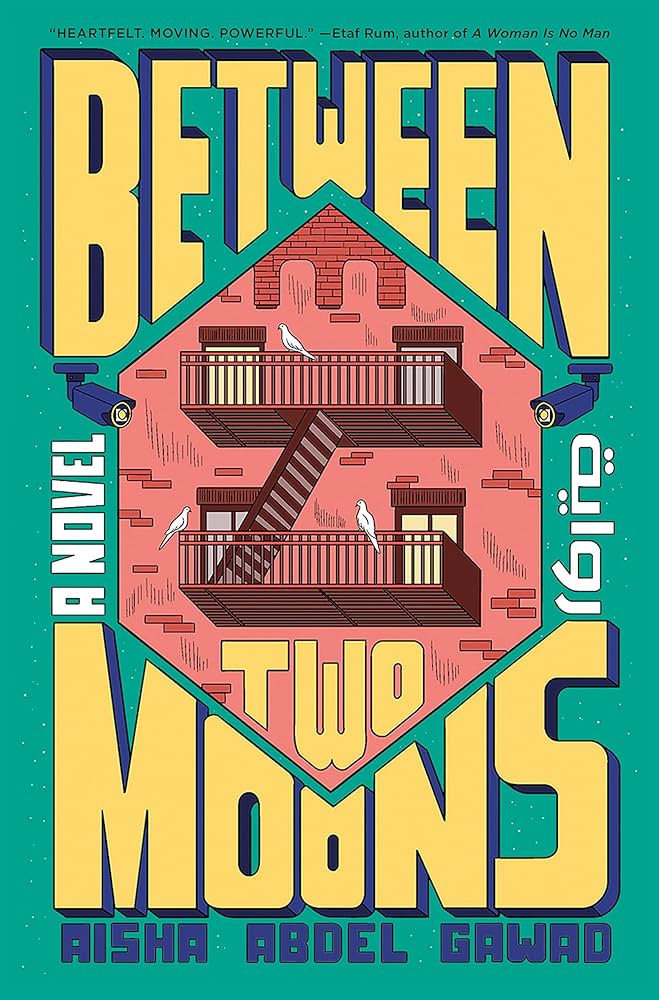 |
Aisha Abdel Gawad | ⭐ ⭐ | I absolutely love the cover design on this book, and I also think its unique storyline—a coming of age novel set in a Muslim neighborhood within the context of Ramadan—is a powerful and important addition to the modern literary canon. That said, I don't think Between Two Moons was particularly successful in terms of actual execution. I found the plot extremely unfocused and somewhat underdeveloped, and I was also put off by some of Gawad's stylistic choices, like randomly alternating between first person and a weirdly ominous third person ("the boy" and "the mother") and comparing the neighborhood to a "vast mother" lifting up her skirt. Maybe I'm not the right audience to understand some of those choices, but regardless, I wasn't a huge fan of the book. |
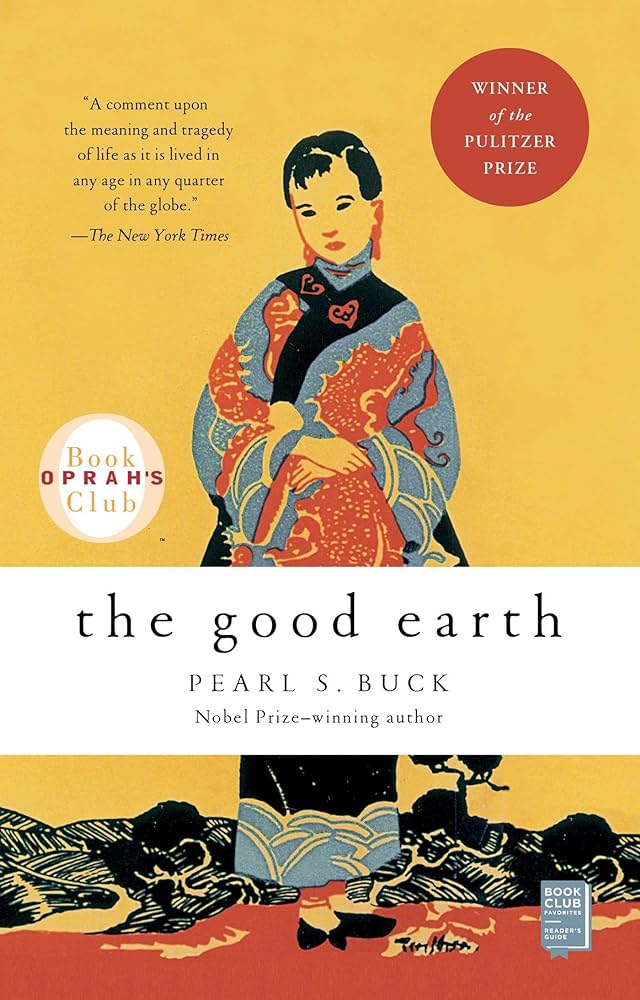 |
Pearl S. Buck | ⭐ | I know The Good Earth is set in an entirely different time and culture than the one I'm used to, but even with that context, I was in disbelief at Wang Lung's (and really all of the men's) possessiveness, disturbing sexual conquests, and general disregard for human dignity. I've heard the book described as a love story to the land, but even that love fell to impurity and possessiveness at times, and the recurring theme of social climbing tainted what was meant to be an homage to the simple pastoral life. |
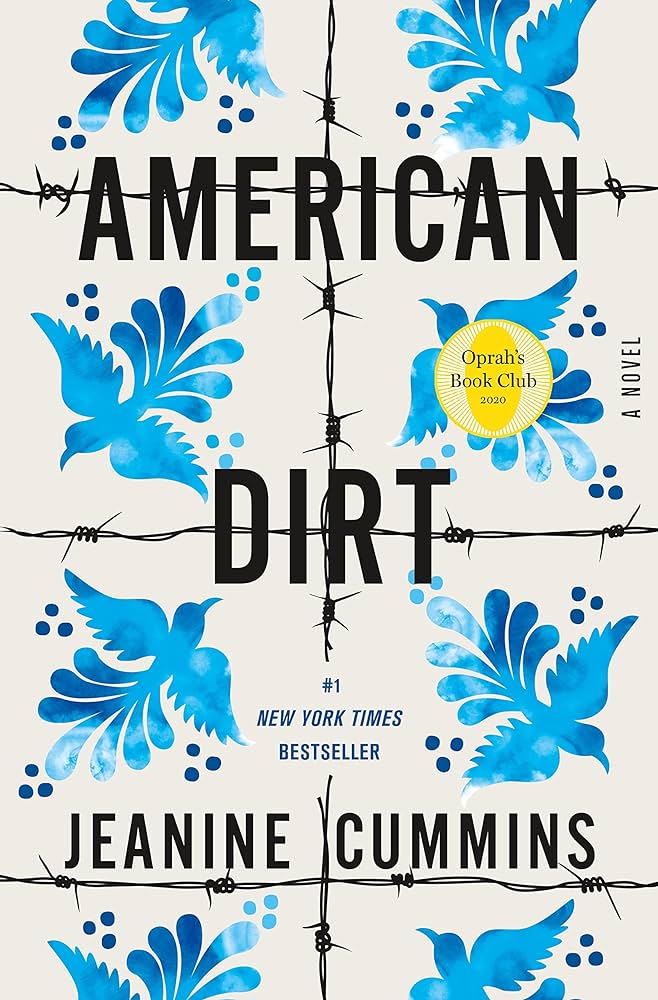 |
Jeanine Cummins | ⭐ ⭐ ⭐ ⭐ | After finishing American Dirt, I spent some time reading about its controversy, and since I know I'm not the right person to comment on the cultural authenticity or significance of the story, I want to instead point to León Krauze's argument that American Dirt is both a well-researched and rewarding read yet entirely unworthy of praise like "This is the international story of our times" (Sandra Cisneros) and "American Dirt by Jeanine Cummins is a Grapes of Wrath for our times" (Don Winslow). In other words, while Cummins' story is original, heart-wrenching, and rich in literary merit, it is by no means an earth-shattering book nor a representative portrait of all migrant stories and in fact has a lot of highly implausible plot lines, including the "awkward love triangle with a smitten narco dandy" (Krauze). Aside from a few moments of strangeness, though, (SPOILER ALERT: seriously, what was up with her facetiming Javier from the desert, and why did she suddenly have the authority and influence to decide that "this is over" after everything Javier went through to track them down??), I found Lydia and Luca's journey to be a compelling one and easily lost myself in its pages. |
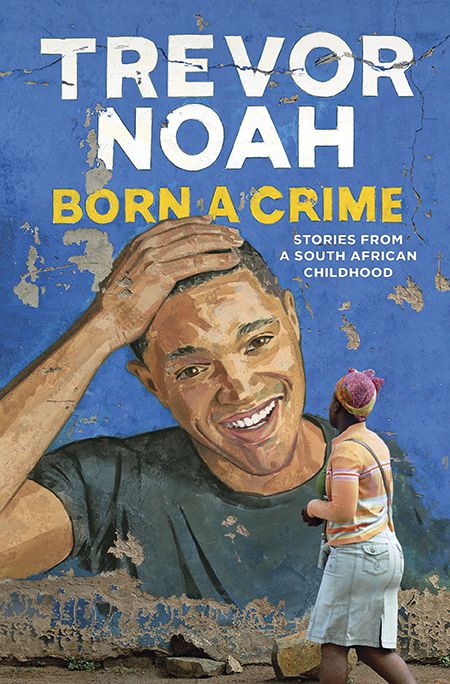 |
Trevor Noah | ⭐ ⭐ ⭐ ⭐ ⭐ | Born a Crime is equal parts informative and entertaining, and I highly recommend it to anyone looking for their next book. Noah's narration style is hilarious, perfectly integrates historical context with personal history, and hops around in the timeline of his life just enough to create a story that is interesting and compelling but never confusing (a complaint I often have with poorly executed or excessive time jumps). I loved reading about his mom, learned a significant amount of South African history and culture, and laughed out loud more than once. 5 stars! |
 |
Louisa May Alcott | ⭐ ⭐ ⭐ ⭐ ⭐ | It took me a little while to get into Little Women, but once I did, I became completely immersed in the lives of the March girls and had a hard time putting the book down. As someone who's religious, I appreciated each sister's quest for virtue and the references to the Heavenly friend who helped them along the way. Watching (or reading, rather) the sisters grow in love, gentleness, and elegance throughout the story was a delight, and Alcott's passages on love, both earthly and divine, are truly beautiful. |
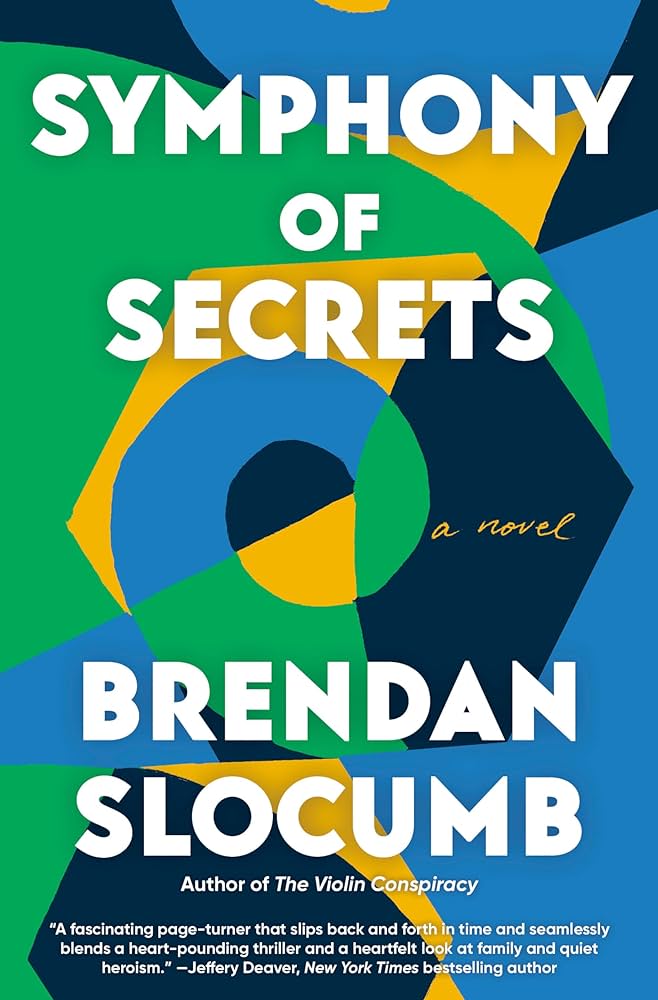 |
Brendan Slocumb | ⭐ ⭐ ⭐ ⭐ | In my opinion, Symphony of Secrets is just a good (not outstanding) book overall but has individual moments and turns of phrase that really do stand out. In particular, Josephine's character is rich and impressive, and I (as a singer) thought it was fun when she and other characters namedropped different musical notes and types of chords throughout the book. The emphasis on music is definitely one of the draws of the story and the element that sparked the best and most unique writing. The weak point of the book, I thought, was the whole running-from-the-law sequence, which was slightly overdone and too all over the place for its own good. As a side note, I've seen this author speak about his life and musical background in person, and he is truly an incredible guy, which I believe makes this book worth reading. |
 |
Jane Austen | ⭐ ⭐ ⭐ ⭐ ⭐ | This was my second time reading Pride and Prejudice, and it's safe to say I was swept off my feet both times. I've actually seen the movie (2005) more times than I've read the book, so it was fun and surprising to be reminded of the subtle differences between the two. I think the book does a much better job emphasizing and putting into the context the social risk Darcy runs by falling in love with Elizabeth, which in turn makes his sacrifices and tenderness to her all the more romantic. I especially love the long walks and confidences that the two share at the end of the book, and I couldn't imagine a dearer or sweeter love than theirs. In short, Pride and Prejudice is romantic, hilarious, and an incredibly well delivered story, and I wouldn't hesitate to call it one of my all-time favorites. |
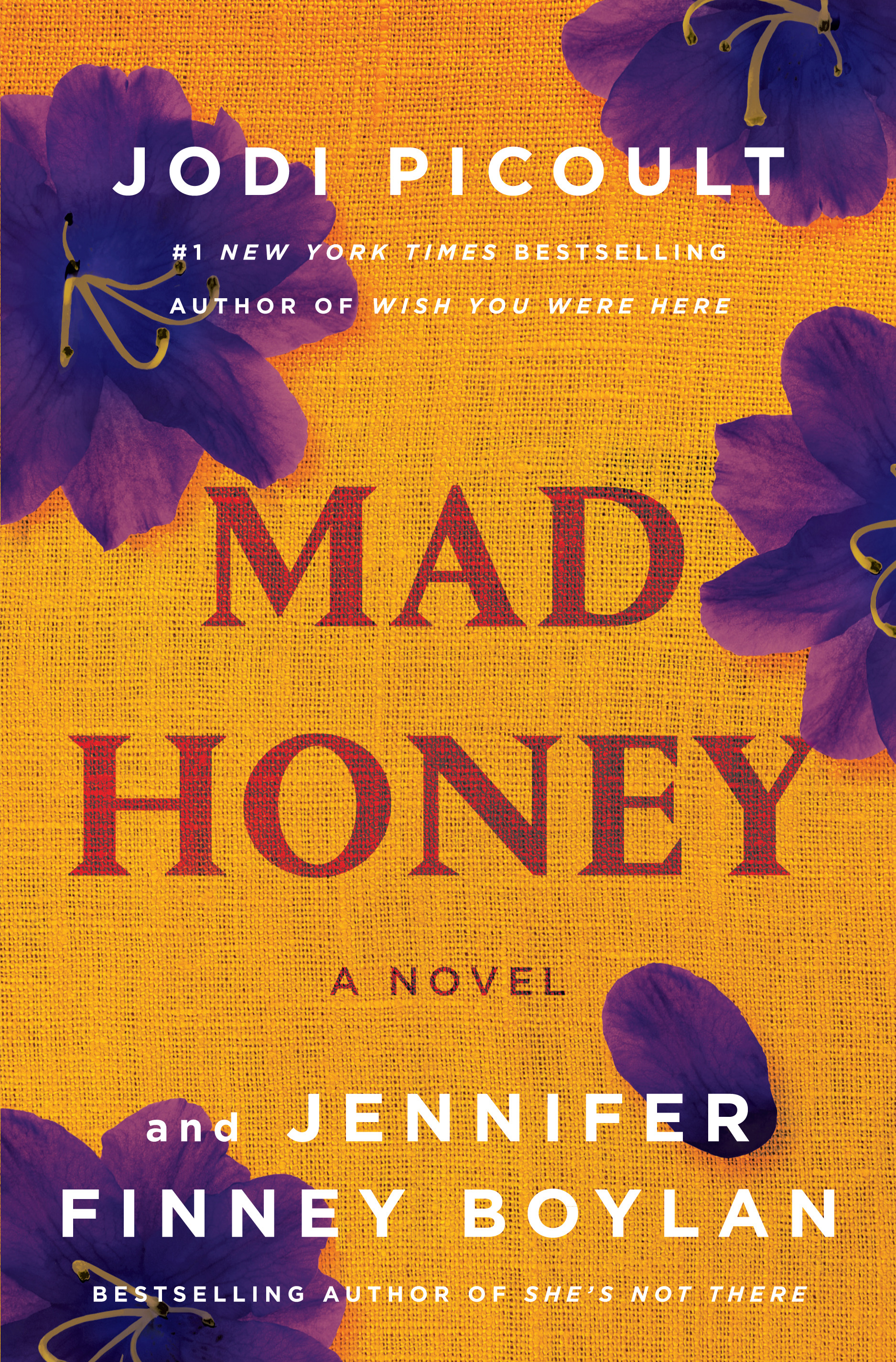 |
Jodi Picoult and Jennifer Finney Boyland | ⭐ ⭐ ⭐ ⭐ ⭐ | Mad Honey was a much heavier read than I thought it would be and much more of a page turner than I expected, too. The writing itself is skillful and straightforward, and the story is broken up and rearranged in such a way that you're constantly surprised by what you read and left guessing at the truth. Thematically, the book covers a ton of ground, and the authors do a frighteningly good job of showing that even the people we love the most are capable of hurting us, and even more frightening—that we are capable of hurting the ones we love, too. |
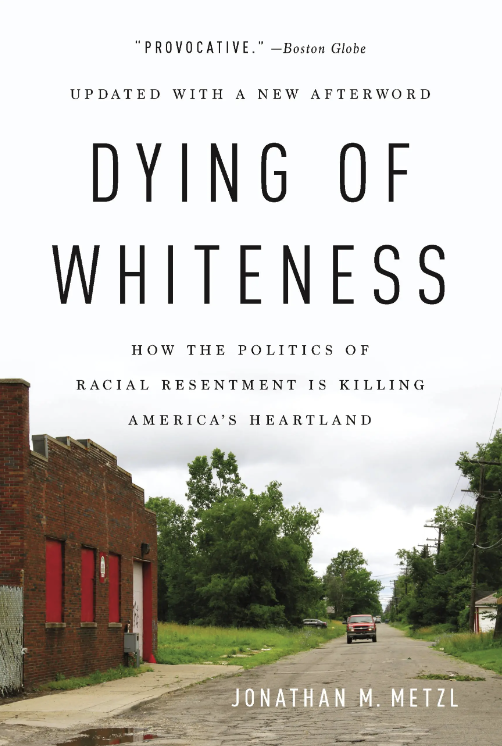 |
Jonathan M. Metzl | ⭐ ⭐ ⭐ ⭐ | When I attended the Racial Equity Institute, one of the facilitators told us that the perpetuation of racist structures and beliefs is actually harmful to poor white communities, even though poor whites often believe they can benefit from creating separation between themselves and people of color. I had no idea what this meant until reading Dying of Whiteness, which consists of three very informative case studies detailing the effects of conservative politics in Missouri, Tennessee, and Kansas, respectively. In about 300 pages, Metzl is able to piece together data, testimonies, and historical context to explain that conservative movements like the push for fewer gun restrictions and the rejection of the Affordable Care Act are both a) driven in part and in some cases by racial biases and b) connected to increased mortality rates in low- to middle-income white populations, which is the very population that often supports such legislation. I would be remiss if I didn't acknowledge that, as with all political and cultural phenomena, this topic is far too complex to distill into a single book, and I do also think Dying of Whiteness has some ideologically charged commentary alongside the hard facts. At the end of the day, though, it's a good first step in understanding a complicated system, and I would recommend checking it out. |
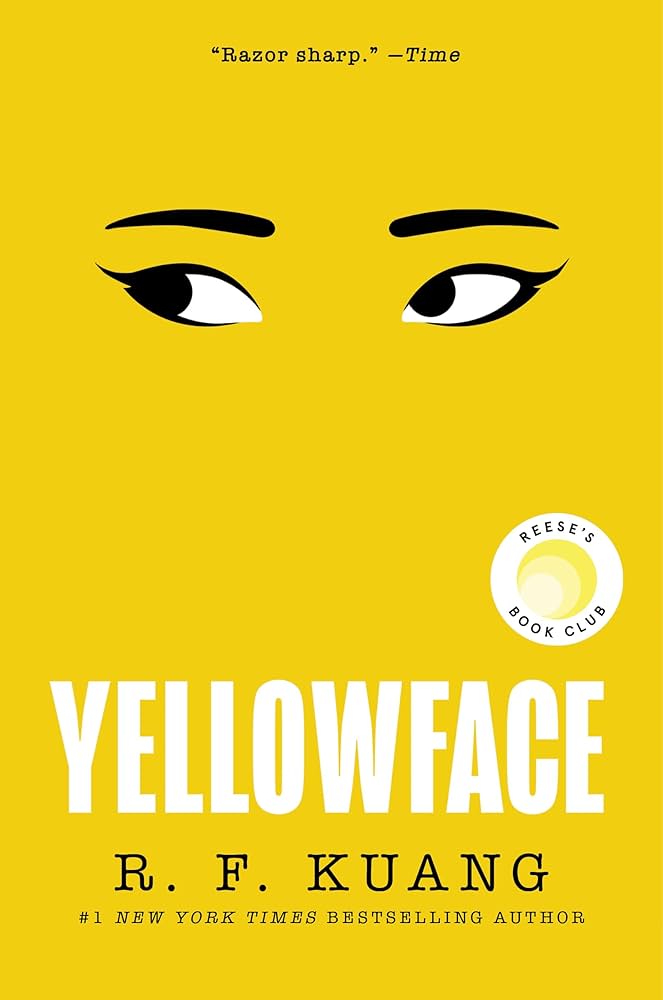 |
R. F. Kuang | ⭐ ⭐ ⭐ ⭐ ⭐ | Yellowface is brilliantly unhinged and wildly addictive. What starts out as a fascinating commentary on authentic storytelling and diversity in publishing quickly devolves into a juicy story riddled with all the most toxic problems of today's world—Twitter wars, microaggressions, public defamation, infuriating performative activism, gatekeepers in the publishing industry and beyond, the crippling pressure to be somebody—the list could really go on and on. The entire book is conceptually genius, and perhaps the most genius part is that Kuang managed to flip the switch on traditional character arcs and reel me in by sending June farther and farther away from redemption instead of closer to it. On top of that, I really believe entire essays could be written about the complex topics contained in this story. Was June on to something when she said it's wrong to censor the kinds of stories an author can write? What should our reaction be when an author uses their platform to tell a story that's completely outside of their lived cultural and racial experience? Is research enough to fill in the gaps and earn authority a sphere that's not your own? What kind of research, and how much? All I have to say is: Kuang, you are brilliant for this (and also, I really hate the ending). |
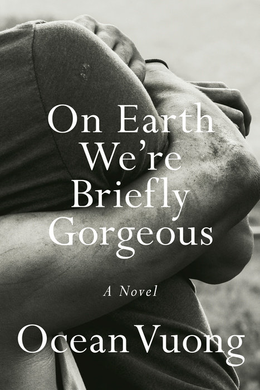 |
Ocean Vuong | ⭐ ⭐ ⭐ ⭐ | Even though "a novel" is part of the title of this book, I'd be willing to argue that it isn't one. It reads much more like long-form poetry or a collection of abstract thoughts/reflections, and while I can't pretend to have understood it all or to have felt like it works super well as a book, I can say that Vuong's story is both immersive and beautiful. I believe words have a unique power to create empathy (or at least a basic understanding) between people with drastically different lived experiences, and this book is a great example of that. |
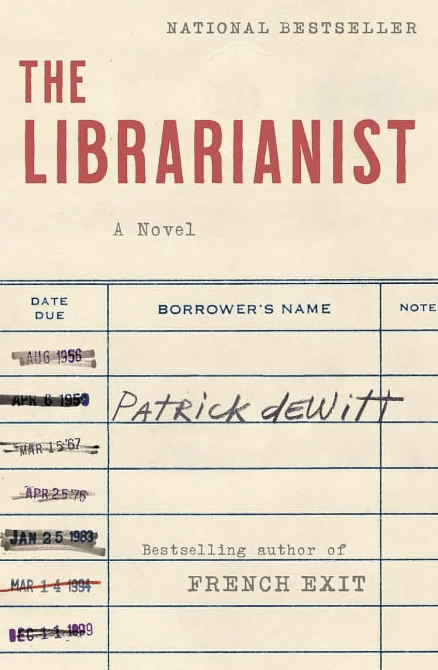 |
Patrick deWitt | ⭐ ⭐ ⭐ | I think The Librarianist had many of the makings of a good story but ended up missing the mark in a lot of ways. For example, the timeline jumps were interesting, but I think the different pieces of Bob's life should have been developed in parallel instead of being separate chunks; Bob's discovery that (SPOILER ALERT) Chip from the senior center is Connie was a huge and totally unexpected one, but immediately after the reveal, the book goes into a 240-page tangent, which completely ruins the intrigue and suspense; and, finally, the characters are all 100% unique and story-worthy but in ways that aren't remotely believable and thus make the story less compelling. |
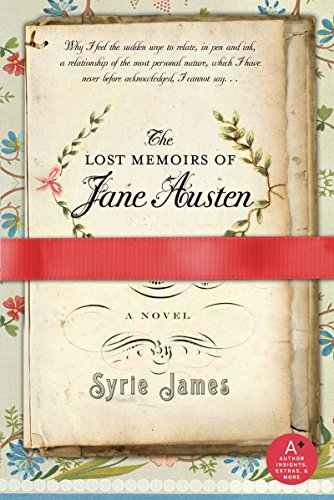 |
Syrie James | ⭐ ⭐ ⭐ ⭐ | The Lost Memoirs of Jane Austen is charming, elegantly written, and absolutely filled to the brim with easter eggs from Jane Austen's published novels—essentially a Jane Austen lover's dream. I had a lot of fun reading James' imagined version of Austen's personal life, and I love how committed she is to having this story read as historical truth (the fake editor's note and footnotes are a really nice touch). I was completely swept up in the writing, and my sole complaint (which is really only a half complaint considering how much I love Austen's writing) is that the book quickly began to feel like a compilation or deritive of Austen's previously published novels rather than a completely original creation. Regardless, I enjoyed it! |
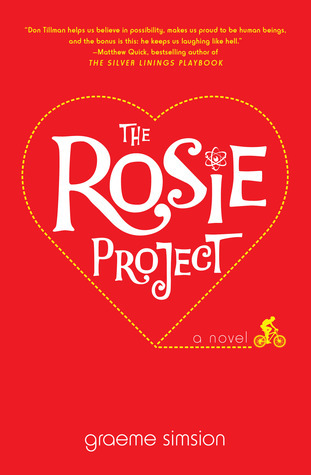 |
Graeme Simsion | ⭐ ⭐ ⭐ ⭐ | I have to admit The Rosie Project was more interesting and less predictable than I thought it would be. Don's character, while painfully cringeworthy at times, is very easy to enjoy and even empathize with, and I liked that Simsion was able to make some funny commentary about the irony and ridiculousness of social standards through his eyes. I do feel bad for Phil (if you read the book, you'll understand why), but aside from that, this is a very entertaining and upbeat read. |
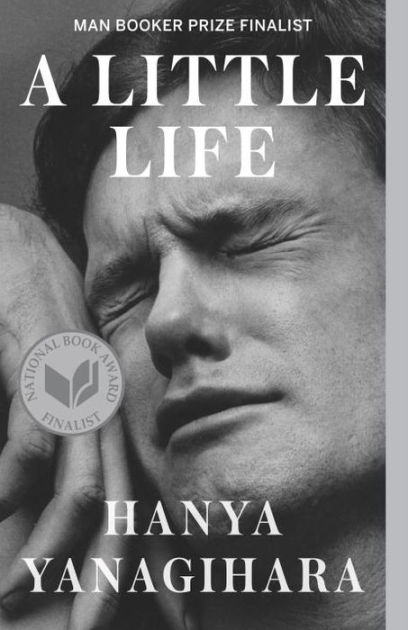 |
Hanya Yanagihara | ⭐ ⭐ ⭐ | A Little Life is so absurdly far from little that I felt like it physically weighed me down during the time I was reading it. Yanagihara's story of friendship, while touching and beautifully poetic at times, is also ridiculously tragic and disturbing to no end—literally 800 pages of getting your hopes up only to have them crushed again. I've never read such a precise and moving depiction of the human condition and of the atrocities that can steal away a lifetime of happiness in a moment, but even though I was profoundly touched by the writing, I really can't convince myself that finishing the book was worth the very real pain I felt while reading it. |
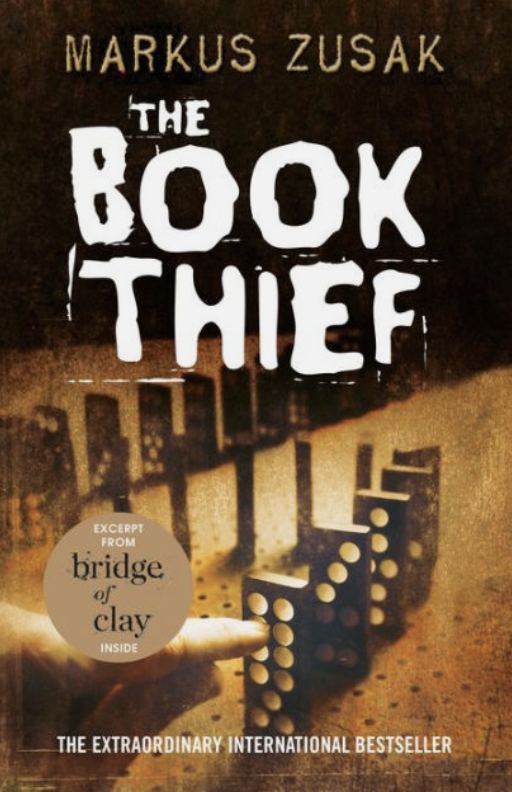 |
Markus Zusak | ⭐ ⭐ | I know The Book Thief is a widely read and objectively interesting book (at least in form), but wow, I really hated it. Having Death as a narrator and categorizing events by sky color and the collection of souls was, in my opinion, an attempt to be clever and singular that was really just off-putting. On top of that, I didn't find the content itself to be very engaging, which is surprising considering how easily moved I usually am by emotional stories like this one. I can definitely acknowledge the skill it took to craft a complex book like this (hence my 2-star rating instead of just 1), but personally, I was never excited to pick it up and read, and strong and compelling are two words I wouldn't use to describe it. |
 |
Matthew Perry | ⭐ ⭐ ⭐ ⭐ | I've always loved and respected Matthew Perry, and reading this book only made those feelings grow. I (along with most of the world, I suspect) had no idea how much his life was controlled by the horrible demon that is addiction, and it was both incredibly sad and ultimately uplifting to hear his story of recovery, relapse, hope, and fame. At times, I was confused by the structure of the book—it wasn't always clear to me what was new information and what was reiteration of a past event—but above all, the thought I couldn't shake while reading was how sad it is that a wonderful man like Matthew Perry, who was so deeply filled with hope at the time of this book's publication just one year ago, will never get to see the future for which he worked so hard. |
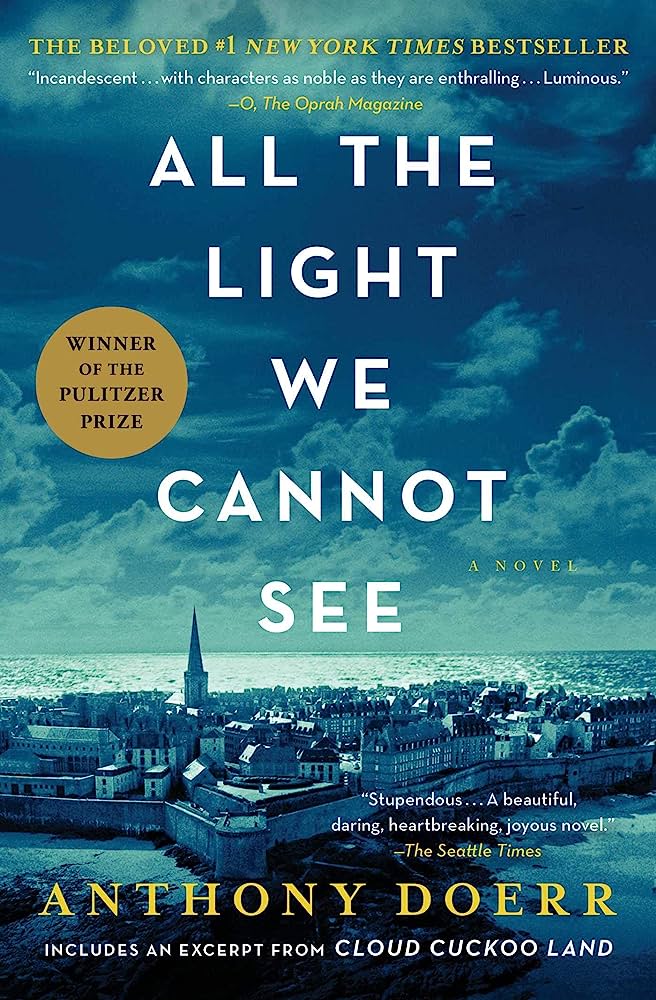 |
Anthony Doerr | ⭐ ⭐ ⭐ ⭐ ⭐ | Even though this book was at times heartbreaking and gruesome, I couldn't help but feel a sense of warmth and comfort for most of the time I was reading it. To take such a harrowing time in our world's history and fill it with such mystery and soul is extraordinary, and I was very attached to both Werner and Marie-Laure's stories. I will say that the last chunk of the book became very strange and, I thought, lacked the etheral quality that prevailed throughout the first 400 or so pages. (SPOILER ALERT) Why did Werner die so suddenly? Why did he go back and get the house from the grotto? Why did Marie-Laure even give him the key in the first place? All very confusing. Even still, I have no problem giving the book 5 stars, as I found it beautiful and really loved Doerr's way of storytelling through time jumps and changes in point of view. |
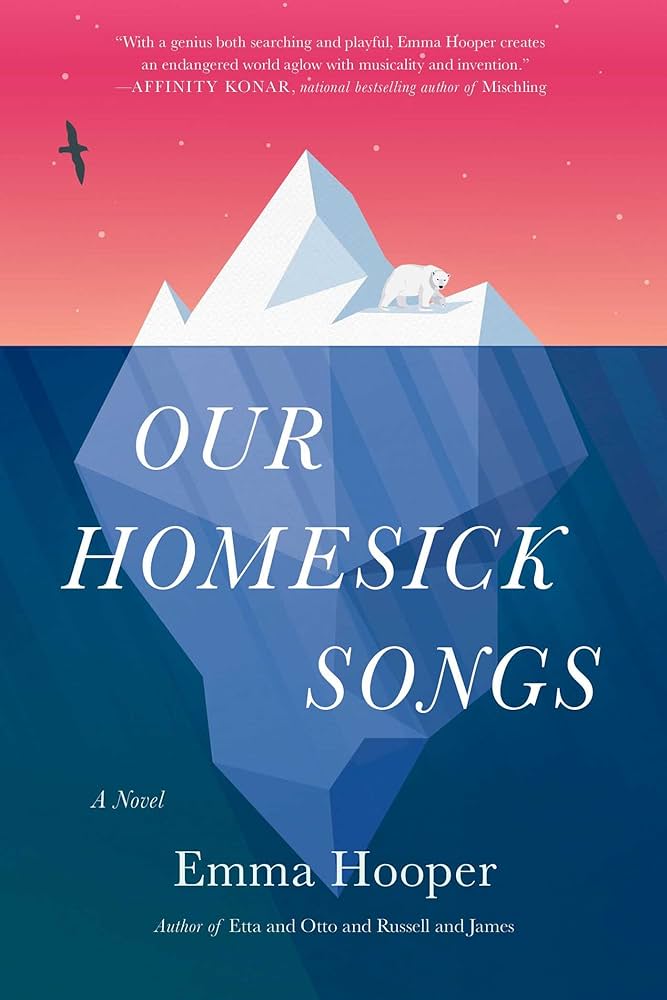 |
Emma Hooper | ⭐ ⭐ ⭐ ⭐ | This book had a lot of elements in common with Etta and Otto and Russell and James (the other Hooper novel I've read), which is to say that it was charming and quirky, with a sweet love story and a very unique writing style. I didn't love the lack of closure in the ending or the strangely persistent "All Connors are cheats" storyline, but I did really enjoy Cora and Finn's characters, who were adorably sweet, if a little naive. |
 |
Therese Anne Fowler | ⭐ ⭐ ⭐ ⭐ | Fowler's Z is a wonderful and deeply fascinating book, but boy, oh boy, was it depressing to discover how decadent and troubled the life of one of the world's greatest literary legends really was. Fowler does an incredible job weaving history with fiction, and I love the way she plays with different verb tenses and points of view to create an artistic voice that perfectly matches the subject matter. For what it's worth, though, I do find it odd that the book ends at Scott's death rather than Zelda's, when it seems to me that the whole point of the book was to give Zelda the unique identity and independence from Scott that she was so often deprived of during her lifetime. |
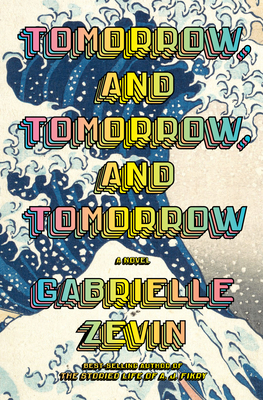 |
Gabrielle Zevin | ⭐ ⭐ ⭐ ⭐ ⭐ | Tomorrow, and Tomorrow, and Tomorrow is an incredible book, and I did practically nothing but read and fall in love with the characters for four straight days until I finished it. I almost want to call Zevin cruel for creating a story so compelling, so utterly filled with love and grief of every kind, that I felt emotionally obliterated reading it, but at the end of the day, I know I'm only upset because what Zevin made is so great that I can't even find the words to describe it. What I can say is that if you're a fan of video games, this book is for you. If you believe in soulmates, this book is for you. If you appreciate the art of storytelling, have lost someone you love, or just enjoy getting wrapped up in a really freaking spectacular story, you guessed it—this book is for you. There's truly something in it for everyone, and I honestly can't think of the last time I felt as moved as I did by Sam and Sadie's story. So, if you're looking for a great read, it can't get much better than this. |
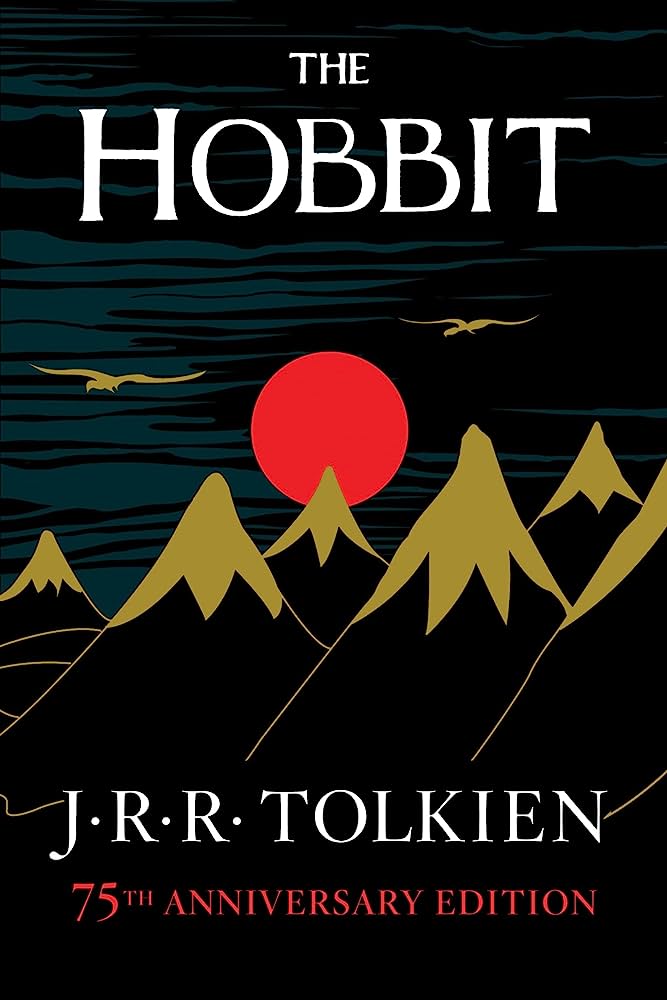 |
J. R. R. Tolkien | ⭐ ⭐ ⭐ ⭐ | I didn't realize how invested I was in this book until I got busy for a few days and couldn't find the time to read. Still, because it reads a bit like a fairytale or children's story, I never doubted that Bilbo and company would escape from all the dangers they encountered unscathed, and that confidence detracted from the intrigue and suspense a little. That said, I enjoyed the story and was both impressed and entertained by Tolkien's worldbuilding abilities. I can definitely see why this is a classic. |
 |
Jane Austen | ⭐ ⭐ ⭐ ⭐ | I went into this book already knowing much of the plot (I should have known it all, considering that I watched the movie just a few months ago, but alas, my memory failed me), and I was still laughing out loud and on the edge of the seat while reading. I found the abundance of wit and the absurd vanities in Emma's town very entertaining, and it was easy for me to imagine that the events in the novel were actually unfolding in real time as I read. That said, I do have one major qualm with the plot of this book (which in no way detracts from its likability), and it is as follows (SPOILER ALERT): I will never, ever understand Frank's behavior toward Jane before their engagement comes to light, and it even further eludes me how Jane could be so happy to marry him after he repeatedly slights her and openly courts Emma, just because he is a little frustrated with Jane and allegedly worried about betraying the truth of their situation to the neighbors. To a degree, I can understand his being upset and their being paranoid, but was all of that really necessary? To his future wife, whom he allegedly loves so dearly? It just makes no sense, and I can't believe that Jane, who is constantly praised for her sensibility and good humor, would still rejoice to have him for a husband after all he put her through. |
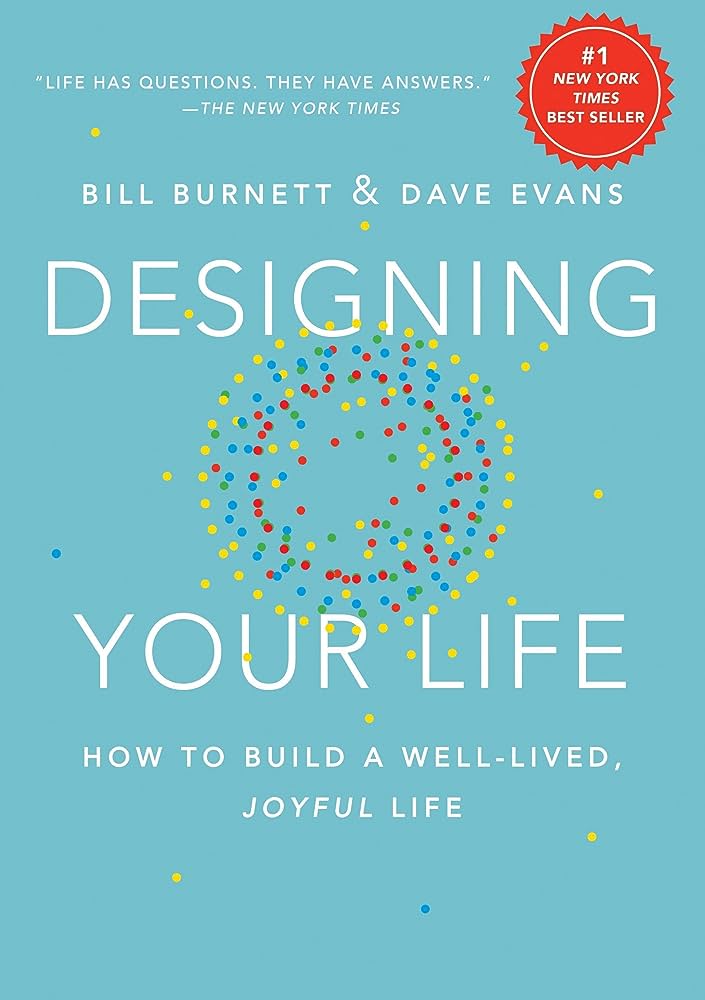 |
Bill Burnett and Dave Evans | ⭐ ⭐ ⭐ | I definitely got some helpful career and "life design" tips from this book, but it's also a little cheesy and not my style. I honestly found it hard to see through all the design analogies and unnecessary terms (Master mentor? Radical collaboration? I mean, come on, that's a little much) to the actual content and advice, which was a big downside for me as someone who values clarity and concision in a book like this. As I said, though, there are some helpful tips hidden in here, and I appreciated the way Burnett and Evans "reframed" a lot of negative beliefs about career/life planning and turned them into more hopeful and constructive methods for building a happy life. |
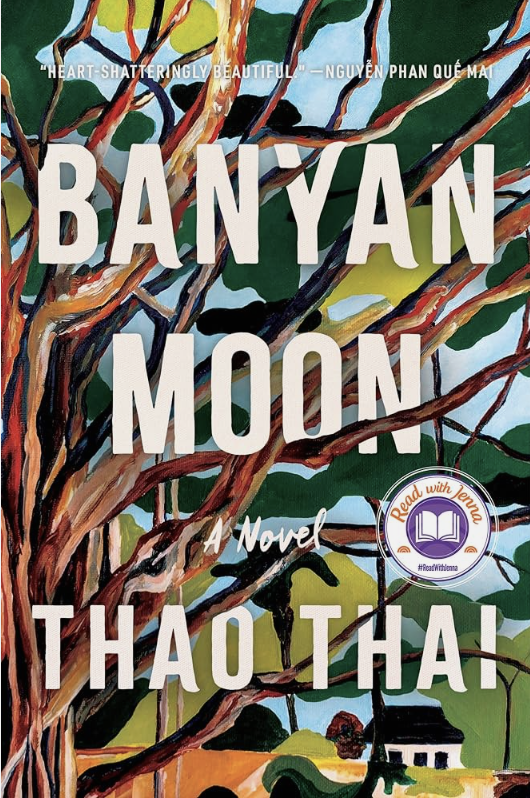 |
Thao Thai | ⭐ ⭐ ⭐ ⭐ | Banyan Moon reminds me in a lot of ways of The Fortunes of Jaded Women (read my review here), but it is also much richer and more beautifully written. Each woman in the story (and Thai does a great job of centering the women in this novel) has a compelling history and a complicated relationship with love, and the alternating perspectives and time jumps make for a great reading experience by allowing readers to slowly piece together the web that is Minh, Hương, and Ann's lives. I also love the seemingly magnetic pull that the Banyan tree and Chú Cuôi—equally beautiful and poetic pieces of family history—have over Ann throughout the book. |
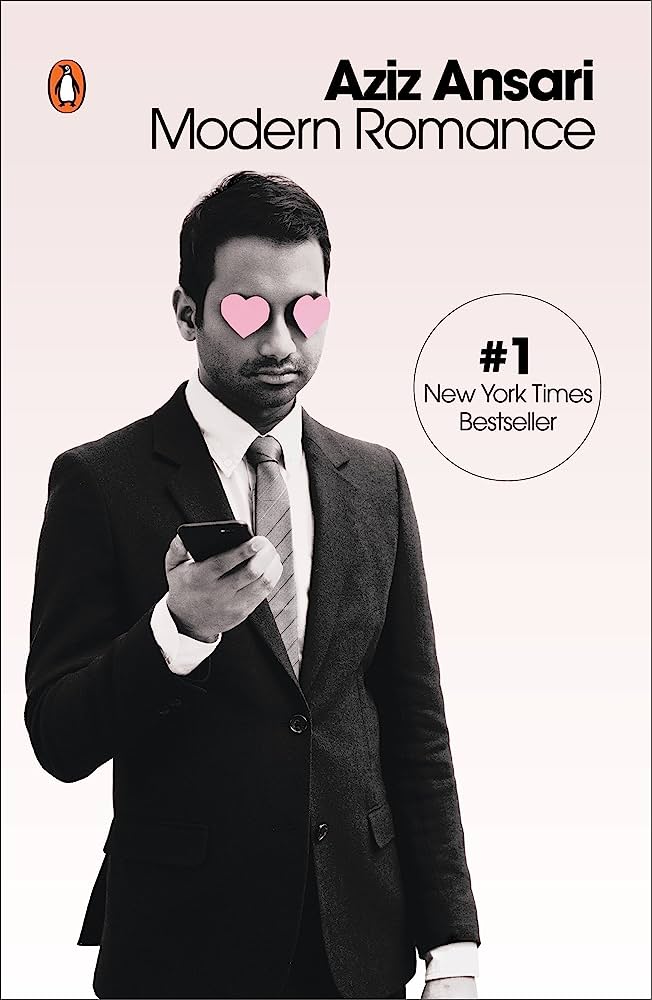 |
Aziz Ansari | ⭐ | I love Aziz Ansari, but this book is really not his best work (which, of course, makes sense since he's an actor, not an author). The concept of analyzing dating trends and romantic endeavors across decades seems like an intriguing one, but in reality, Ansari pretty much delivers the same stats over and over again in slightly different ways throughout the book. Some of the things he and Eric Klinenberg uncovered were interesting (like the fact that between 2005 and 2012, more people found their spouses online than through work, school, and friends combined), but overall, the book seemed to dwell on pretty intuitive trends, and Ansari's jokes about today's dating atmosphere often fell flat and were occasionally pretty crude or even mean. |
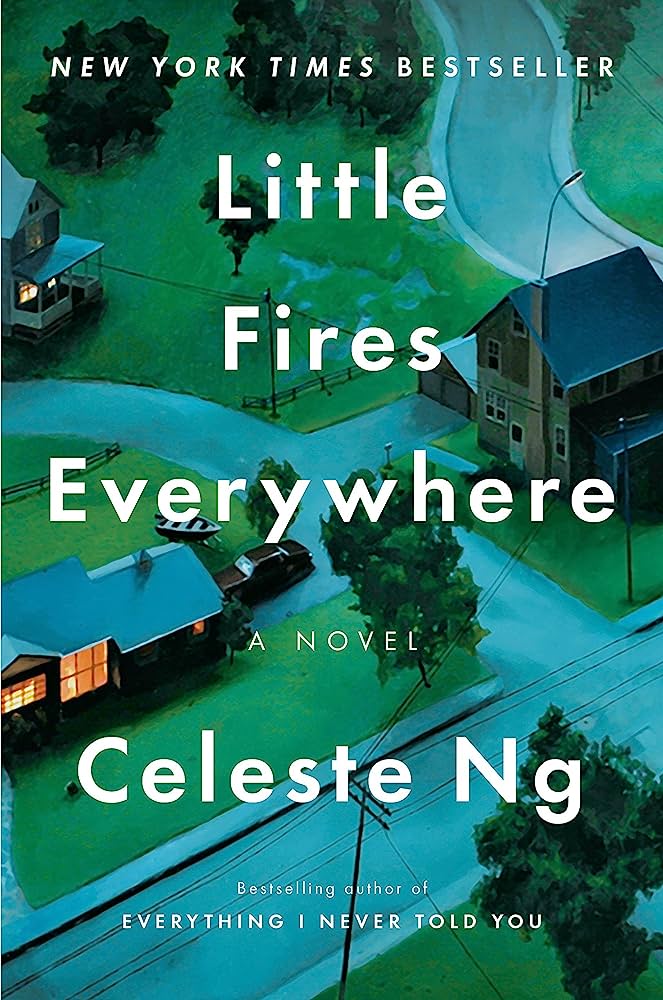 |
Celeste Ng | ⭐ ⭐ ⭐ ⭐ ⭐ | I devoured every single page of this book, and my heart broke, swelled, and raged at the drama of Shaker Heights, as told by the incredible Celeste Ng. Each character is beautifully crafted and painfully misunderstood, and the intersection of all their messy lives is a masterpiece that I couldn't put down. My only qualm with the book is the utter lack of resolution at the end, but at the same time, I deeply respect Ng for forgoing a perfect happy ending in favor of one that better portrays the consequences of falling in love—as a friend, a mother, or a teenager—and seeking a safe place to call home. |
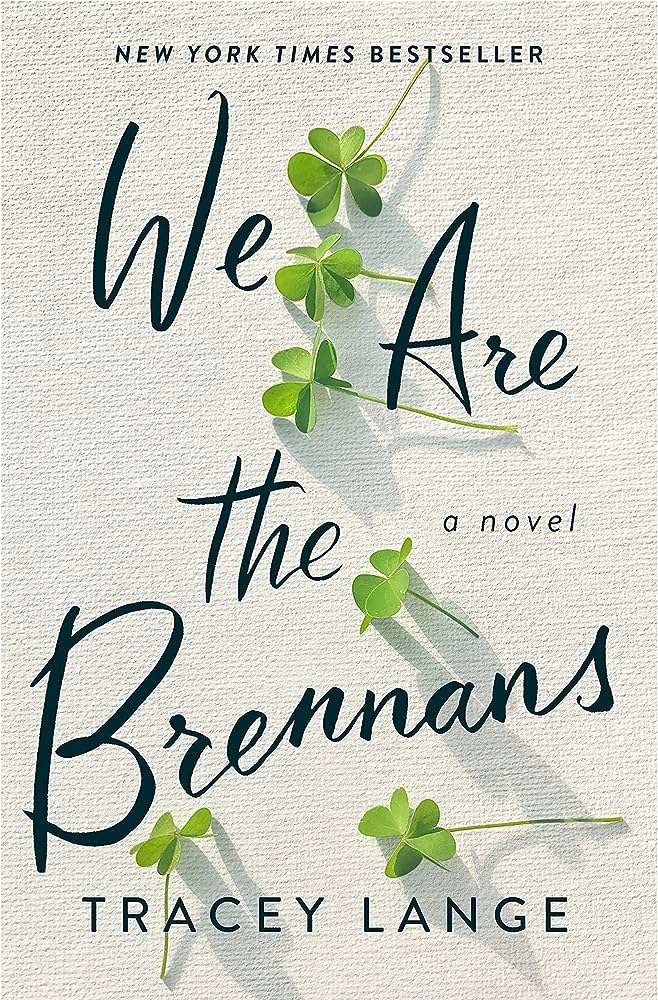 |
Tracey Lange | ⭐ ⭐ ⭐ ⭐ ⭐ | We are the Brennans made my heart ache more than any book I've ever read before, but I loved it more than words can express. The deep intimacy that the Brennans share is precarious but so beautiful, and the secrets that threaten their bond throughout the book make for an intense and exciting read. I finished the whole thing in two days, and I have a feeling I'll be thinking about it for many days to come. |
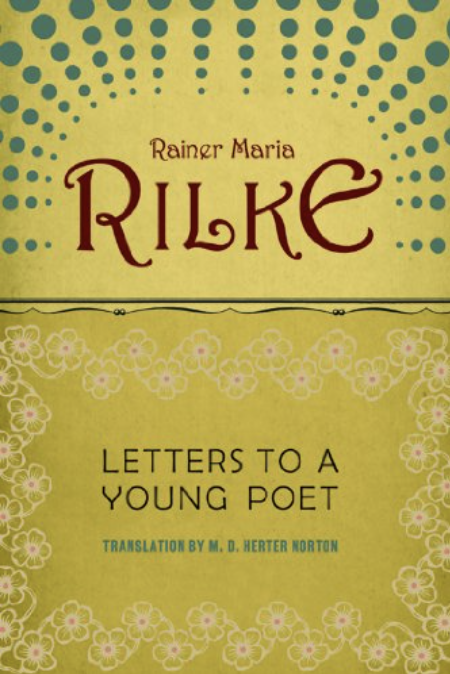 |
Rainer Maria Rilke | ⭐ ⭐ ⭐ | This book is beautifully written (and translated), but I also feel like it's a very incomplete story. In just ten letters and without Franz Kuppus' side of the correspondance, I found the depth and intimacy of Rilke's writing to be a little sudden. His reflections on solitude and the life of writers were very insightful and poetic, though, and I did enjoy his style. |
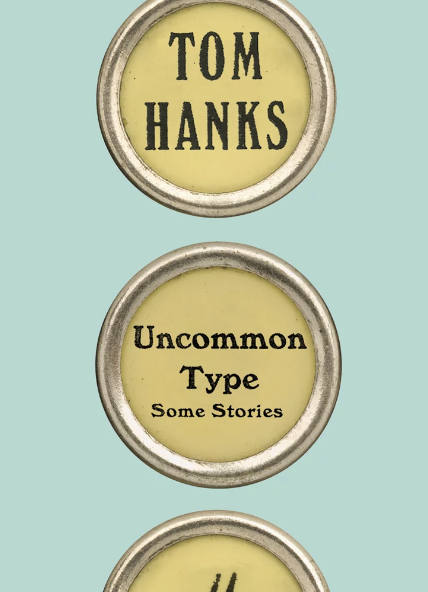 |
Tom Hanks | ⭐ ⭐ ⭐ | I love the idea of publishing a collection of stories that are unique and varied but at the same time tied together by a common thread. In this case, the thread was typewriters, which make an appearance in every story, sometimes as a major plot point and sometimes as a forgotten piece of history collecting dust in a character's house. I was a little surprised by how much Hanks' writing resembled that of writers from the 50s and 60s; I'm a huge fan of literature from that time period, so I didn't dislike the resemblance, but I did expect to find more modern themes in such a recent book. A couple of the stories didn't really land well with me, but overall, I definitely enjoyed the reading experience. |
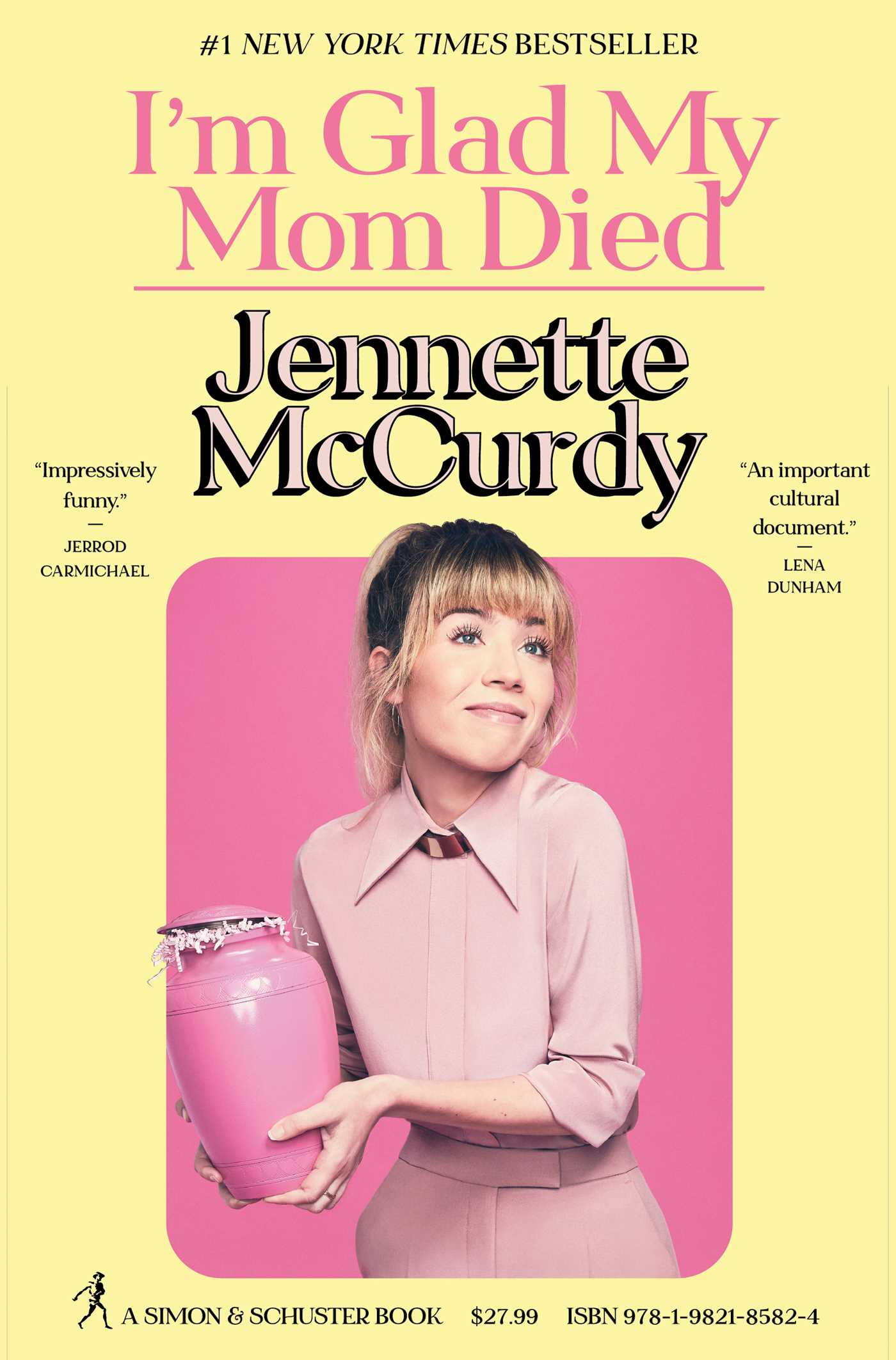 |
Jennette McCurdy | ⭐ ⭐ ⭐ ⭐ | I came very close to stopping this book 200 pages in, but I'm ultimately grateful that I continued through to the end. I consider myself a very sensitive and easily disturbed person, and hearing all the details of McCurdy's life—her eating disorders, her relationship with her mother, her discomfort with acting and her identity—was honestly deeply upsetting. As I said, though, I'm really glad that I read the book and read it to the end. McCurdy's story is an important one for society to hear and gripping, poignant, and well written. I would recommend it to anyone who's interested, with, of course, the disclaimer that it is an incredibly heavy read. |
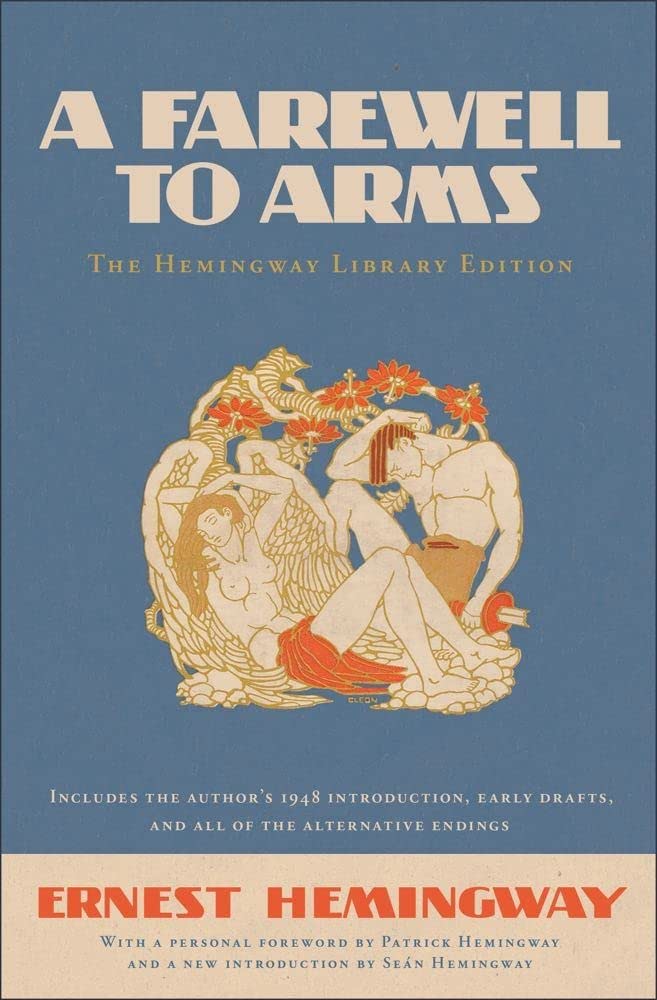 |
Ernest Hemingway | ⭐ | All my life, I've heard that Hemingway is a great writer, but A Farewell to Arms did nothing for me, and I was honestly sad about that! The back cover calls this book "the best American novel to emerge from World War I," and I genuinely wanted to find a reason to agree but was instead left feeling apathetic every time I picked it up. Considering that the story is supposed to be a romance, I found it really stiff and detached, and I just can't understand what makes it such a famous novel. |
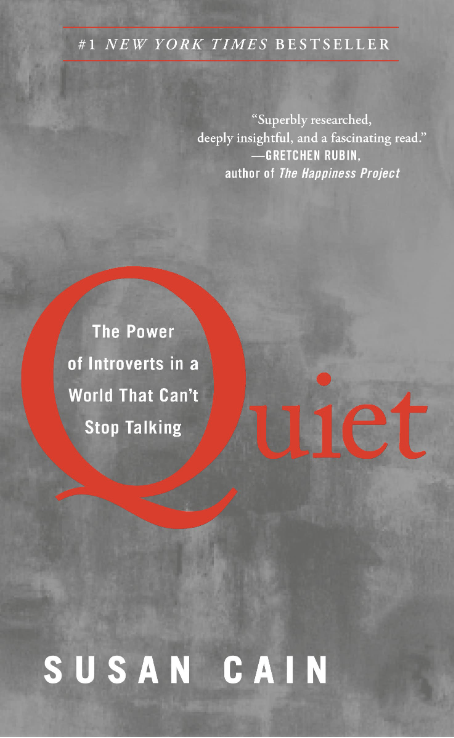 |
Susan Cain | ⭐ ⭐ ⭐ | This book was eye-opening and incredibly validating, but I'm hesitant to say that I liked it because I feel as though it lacked focus and was a little more corporate-minded than I was hoping for. (Where I was expecting the book to disucss introversion as it relates to intra- and interpersonal life, a lot of the studies, anecdotes, and advice were centered on how to be successful in business and self-presentation as an introvert.) That said, there is a ton of very interesting information in Quiet, and I do recommend it to anyone who is or loves an introvert. Personally, my favorite section (and the one that gave me most cause for reflection) was the one on how best to raise an introverted child in a world where children are judged based on their ability to interact socially. |
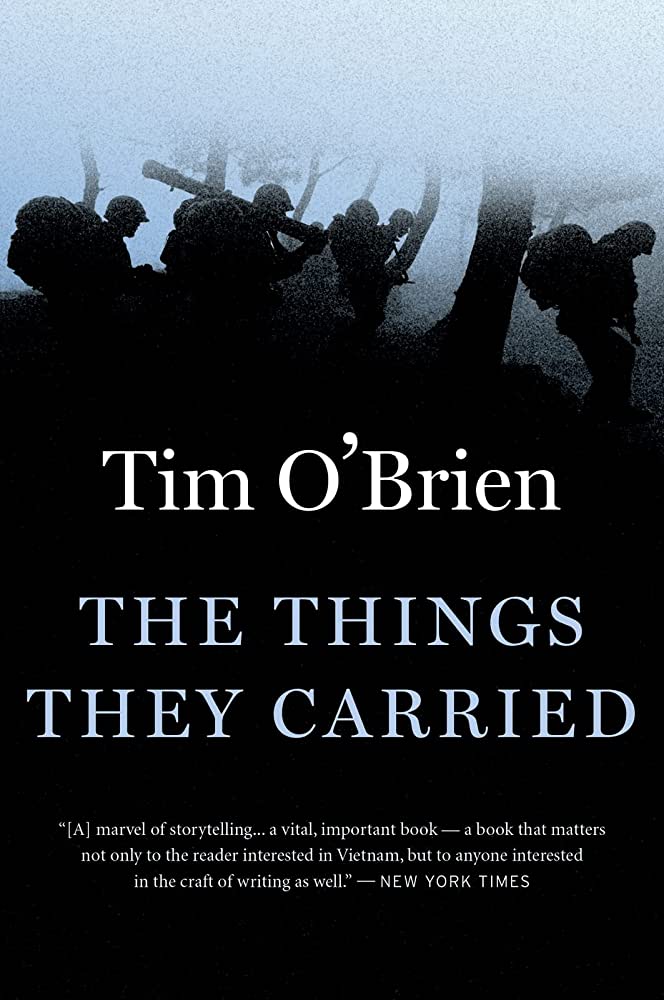 |
Tim O'Brien | ⭐ ⭐ ⭐ ⭐ | The Things They Carried is so many things in such a short number of pages! It's haunting, inventive, authentic, beautiful—the list could really go on and on. Also, the deeper I got into the book, the more amazed I became by O'Brien's manipulation of truth; what seemed, at times, to be a fictional story was also startingly real and memoir-like at others, and by the time I reached the end, I really couldn't tell what to believe anymore (of course, it didn't help that O'Brien seemed to be intentionally confounding things by dropping in a bunch of abstract and paradoxical definitions of true storytelling). Despite that, though, I think The Things They Carried is confusing in the best way possible, unbelievable in more ways than one, and incredibly well-written. |
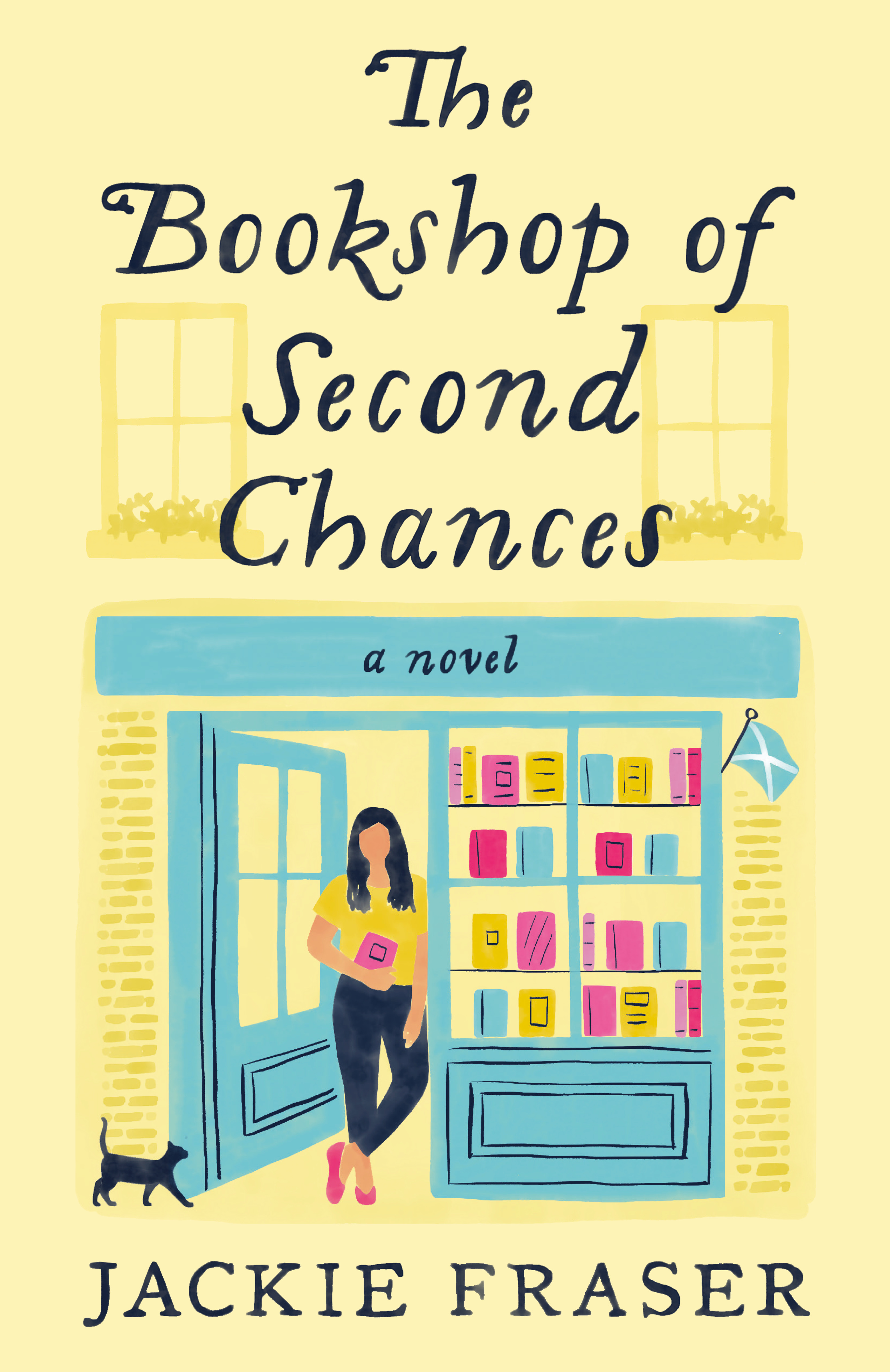 |
Jackie Fraser | I've only given up on books a couple times in my life, but The Bookshop of Second Chances is so terrible that I just couldn't bring myself to finish it. I was expecting a cliché but uplifting romance—unimpressive, maybe, but at least cute and enjoyable. Instead, I got this: (SPOILER ALERT) a woman in her 40s gets dumped by her husband and moves into her late great uncle's house for the summer; said woman starts working at a bookshop for a man that literally everybody in town hates; after this man openly admits he's slept with every woman his brother has ever dated (and is quite proud of it, by the way) in some perverted attempt to get revenge for a prank that took place over 30 years ago, the main character begins to have feelings for said man. Yes, that's right, she starts to have feelings for him after she finds out that he intentionally screws his brother's girlfriends and wives for pleasure, not to mention the fact that he clearly has zero respect for women in general. But then again, maybe Thea doesn't either since she's constantly saying that he's such a nice guy, just tragically misunderstood. Anyway, zero stars and would definitely not recommend. | |
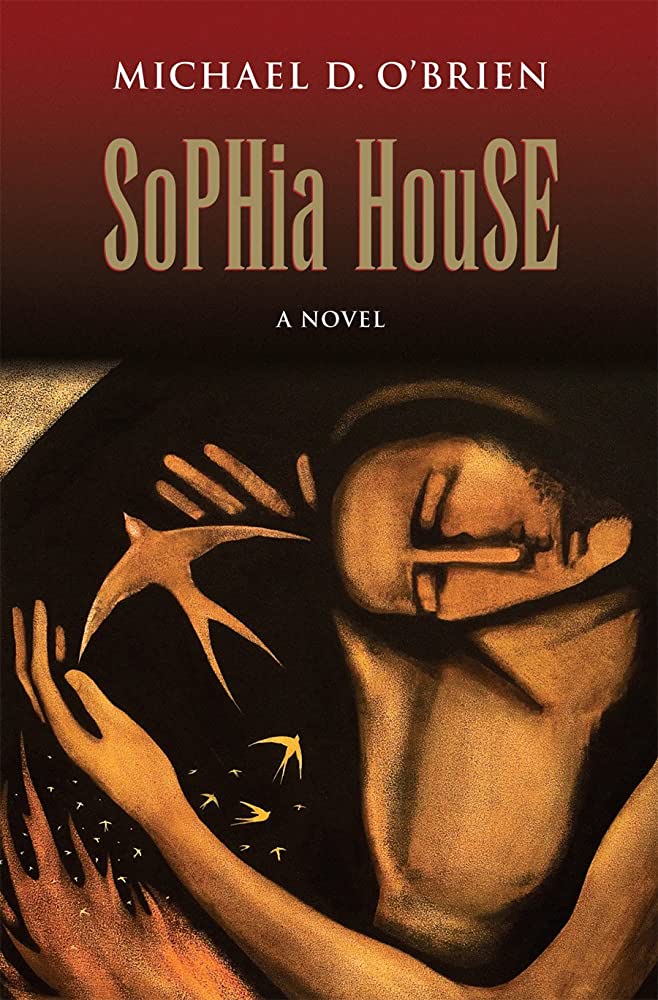 |
Michael D. O'Brien | ⭐ ⭐ ⭐ ⭐ | I'm not much of an art connoisseur (or even a little bit of one for that matter), but the way I felt reading Sophia House is how I imagine a very souful art-lover would feel looking at their favorite painting. Sophia House is an incredibly rich and complex novel, touching on spiritual teaching, the essence of language, the torment of love, and everything in between, and it's written with such sophisticated and poetic voice that I actually told a friend about halfway through that I felt like I was experiencing true literature for the first time in my life through its words. Admittedly, O'Brien's philosophical ponderings became frustratingly abstract at times, and I sometimes felt lost in the depth and details of the story, but at the end of the day, this is an incredible book and one that I hope to reread and reexperience in the future. |
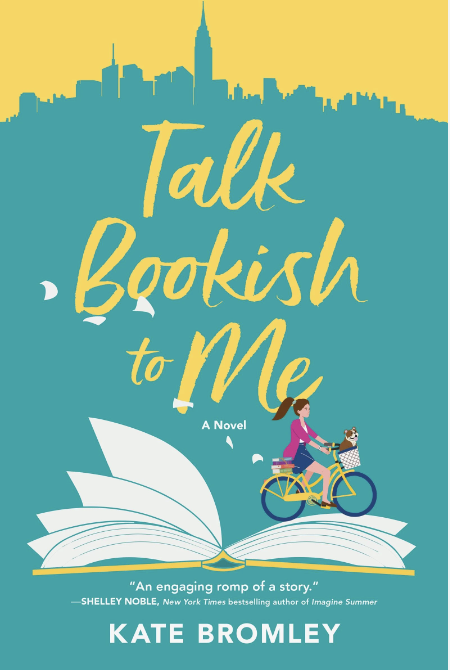 |
Kate Bromley | ⭐ ⭐ | I surprised myself by actually enjoying a good amount of this book, but after the climax (which, by the way, was totally predictable), my investment in the story just completely disappeared. I think I was a little confused by (SPOILER ALERT) the whole Liam subplot, which seemed totally random and contrived to me, and I was also not buying for one second that Kara and Ryan were soulmates. I thought it was so weird how toxically drawn to each other they were when they barely spoke or had any semblance of an emotional connection, and the more I thought about it, the more I was like, "10 years?? We're really supposed to believe that they were apart for 10 years without ever trying to find each other but somehow remained completely and utterly in love the whole time??" Anyway, I don't think I hated the book, but it certainly could have been better. |
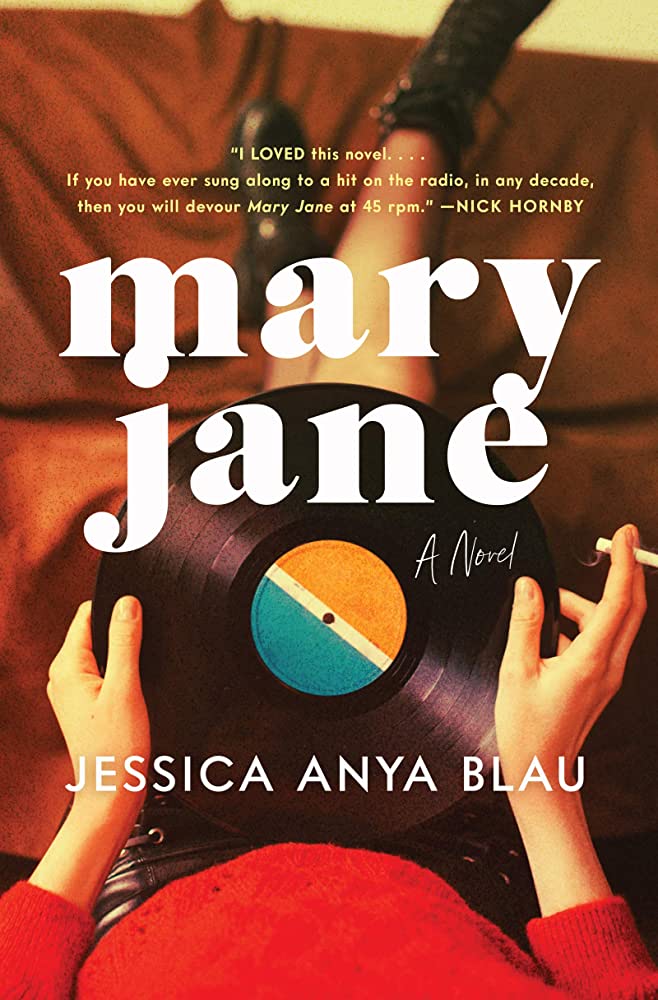 |
Jessica Anya Blau | ⭐ ⭐ ⭐ ⭐ ⭐ | 5 stars!! I checked Mary Jane out from the library in search of a fun and lighthearted read, and it absolutely delivered on that front! Mary Jane is hilarious and so charming, and the book has pop culture subplots and references galore, which I also loved. The story itself is a heartwarming, if silly, one, and I found the whole reading experience to be a refreshing break from some of the denser books I tend to gravitate toward. Highly recommend! |
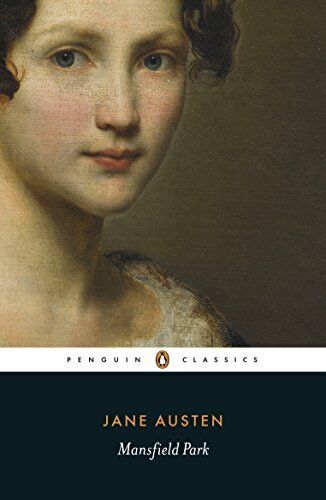 |
Jane Austen | ⭐ ⭐ ⭐ | I was really hoping (and expecting!) to love this book, but I have to say that even though I found it suspenseful at times and ridiculously entertaining at others, I was somewhat underwhelmed overall. Admittedly, I spent so long reading it that I had a hard time keeping plot lines fresh in my mind and was certainly not as invested in the story as I could have been. However, I finished the latter third of the book within a relatively short period and didn't love the direction it took. SPOILER ALERT: To spend so much time on Mr. Crawford's uncharacteristic obsession with Fanny and so little time on Fanny's years-long unrequited love so suddenly becoming requited was incredibly anticlimactic, and I was pretty disappointed that Edmund's revelation wasn't dwelt on more before the book so abruptly wrapped things up. At the end of the day, it's not my favorite Austen novel, but then again, only one book can be! |
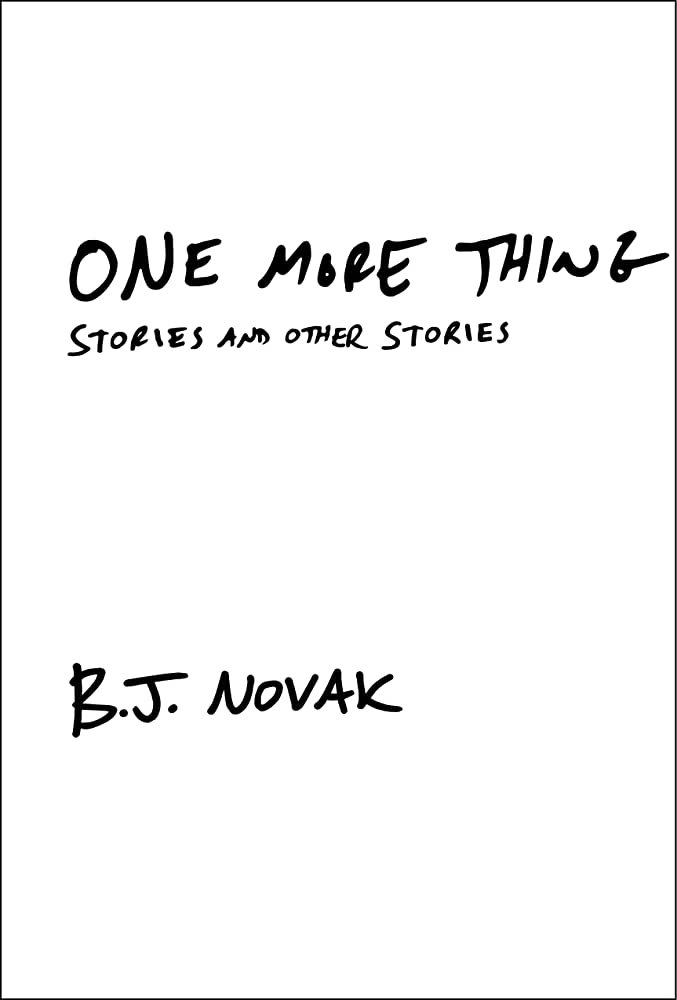 |
B. J. Novak | ⭐ ⭐ ⭐ ⭐ | These stories are hit or miss if I'm being honest, but some of the hits hit so hard that my overall rating is still 4 stars. Personal favorites include "The Rematch" (a thrilling and slightly more explicit sequel to the Tortoise and the Hare), "The Market Was Down" (a very 21st-century, mental health-minded take on the immense strain we put on the market each day), and "Kellogg's (or: The Last Wholesome Fantasy of the Middle-School Boy)." There's no easy way to sum up that last one; you'll just have to read it for yourself :). |
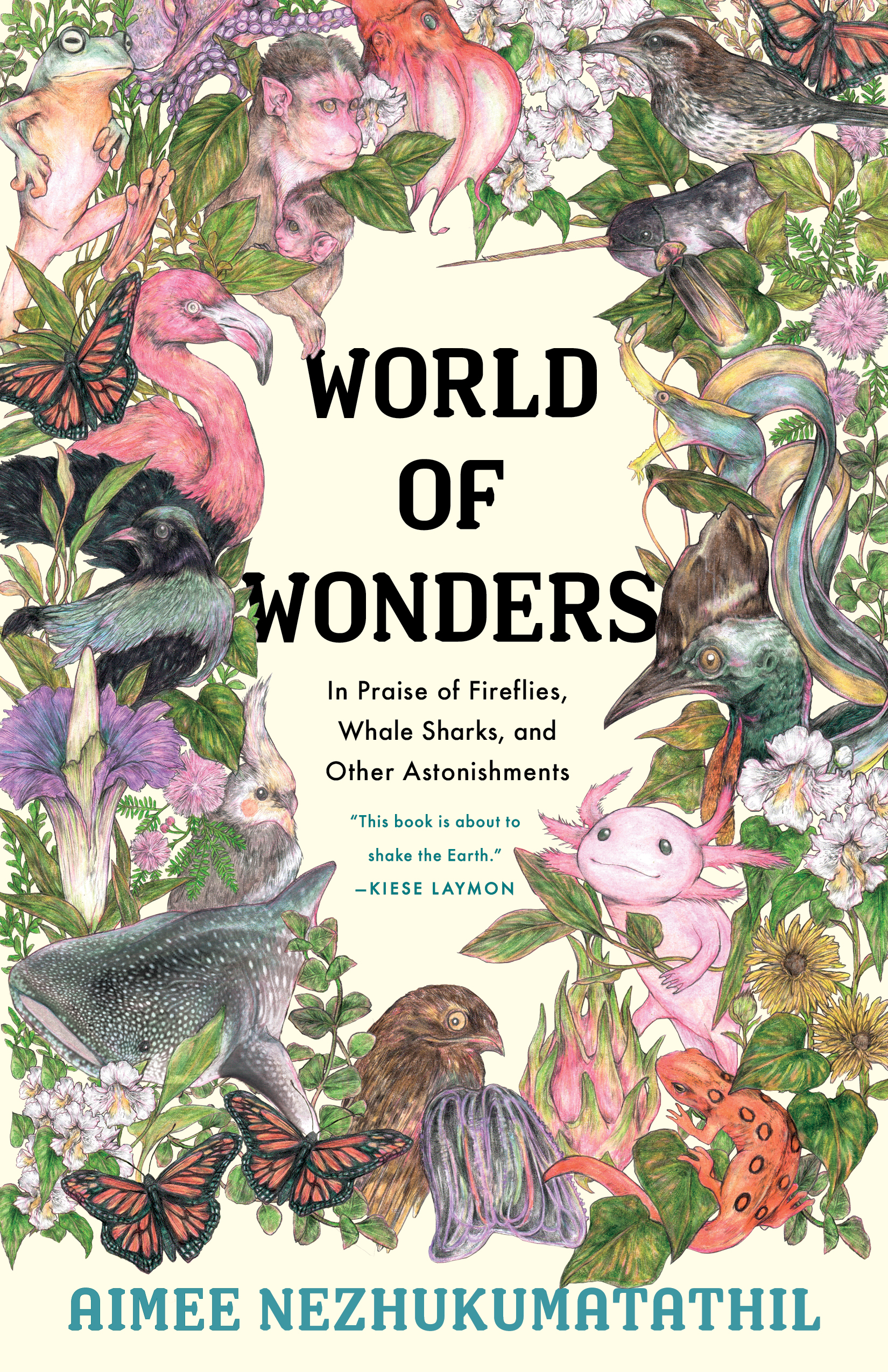 |
Aimee Nezhukumatathil | ⭐ ⭐ ⭐ | This book seems like the kind of thing that is indescribable and ultimately unknowable until you've experienced it yourself, so I'm not sure how much light I can really shed on it with a review, but here goes nothing. I'm tempted to say that World of Wonders has a sort of ethereal quality, probably because bits of memoir and abstract metaphor are woven into the writing throughout the book. On one hand, this structure is artistically sophisticated and kinda beautiful, but on the other hand, the idea of juxtaposing biological facts with biographical anecdotes—essentially comparing life's most memorable moments to interesting land and sea creatures—is exceedingly strange and not seamless by any means. At the end of the day, I gave the book 3 stars, but I can easily see myself shifting the rating in either direction after a future reread and a new perspective gained. |
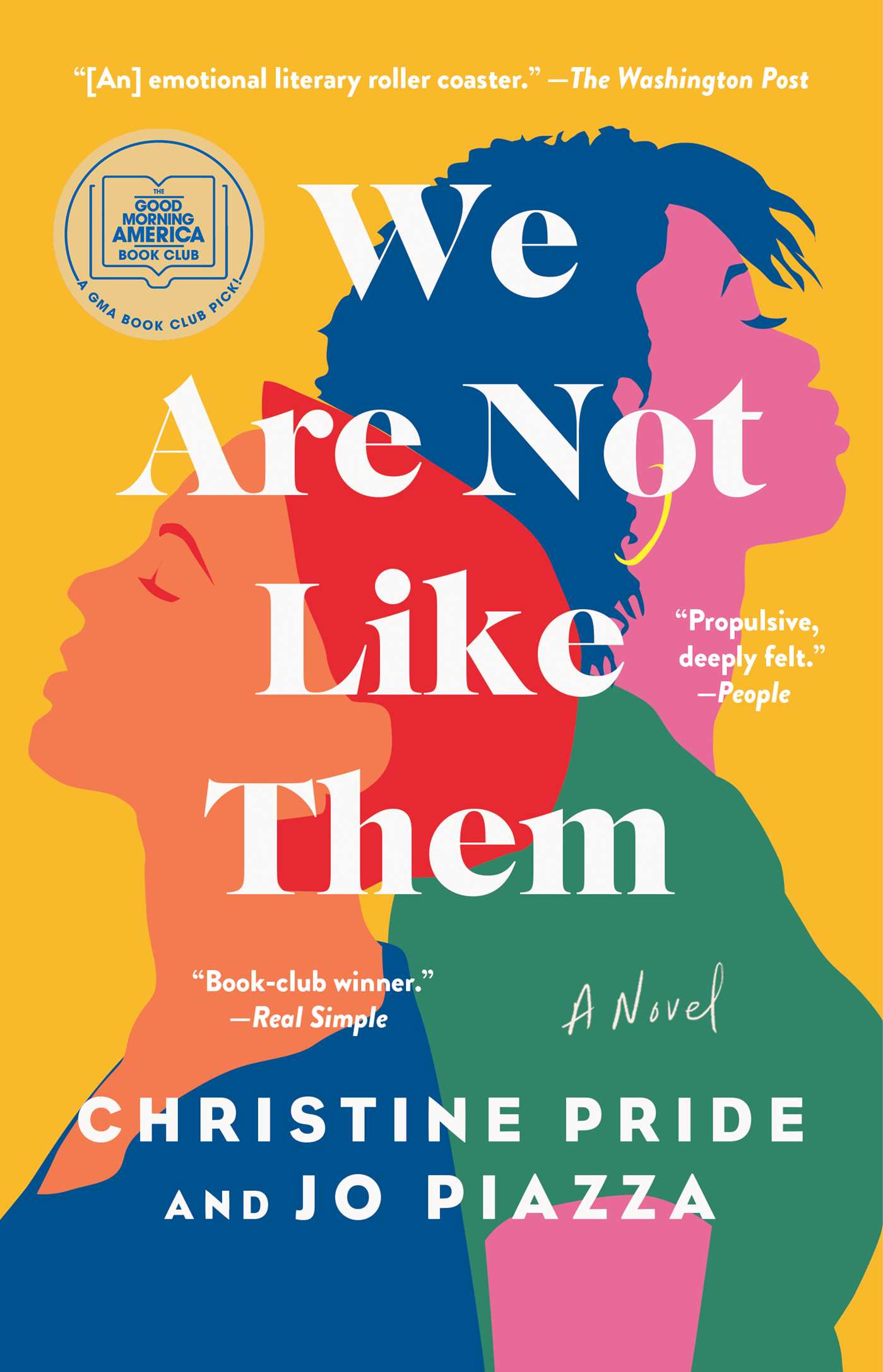 |
Christine Pride and Jo Piazza | ⭐ ⭐ ⭐ ⭐ ⭐ | Another 5-star read! There's a quote from The Washington Post on the cover of this book calling it an "emotional literary roller coaster," and I couldn't agree more with that statement, especially on the emotional front. The book was hard-hitting in a lot of ways, and even though Pride and Piazza were a little heavy-handed and/or cliché at times with the messages they were trying to get across (not to mention the fact that some of the main characters ranged from slightly frustrating at best to complete assholes at worst), I thought the story was really honest, emotional, and well done, and I highly recommend reading it if you haven't already. |
 |
Jane Austen | ⭐ ⭐ ⭐ ⭐ ⭐ | I love this book!! So much so that it might be my new favorite of all time! I really don't think there was anything left to be desired, and the writing was so clear and elegant that I never wanted to put it down. The premise, the intrigue, the surprises, and the ending were all perfect, and I seriously cannot recommend reading it enough. So good!! |
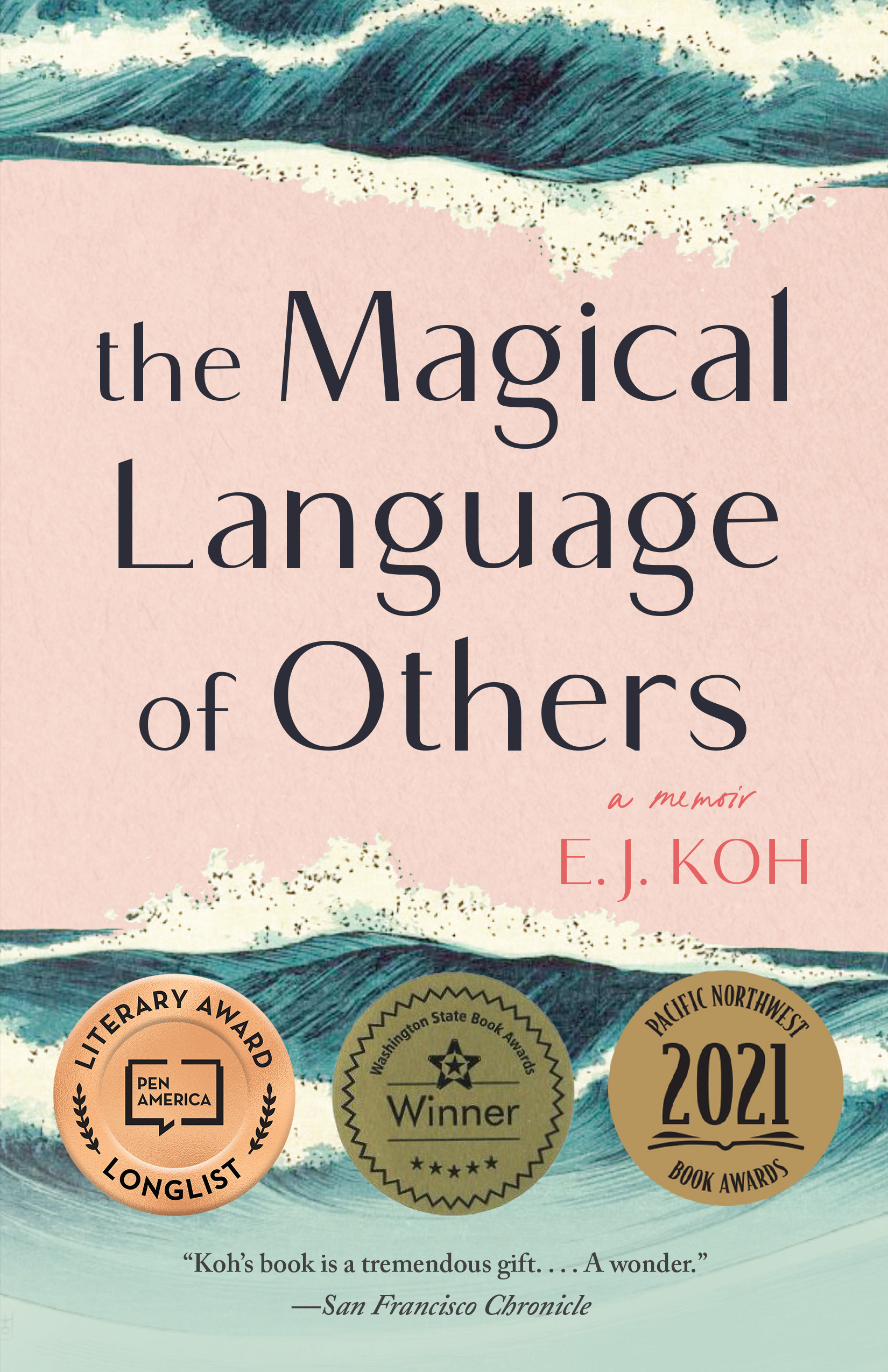 |
E. J. Koh | ⭐ | Maybe I just wasn't paying enough attention when I read this, but I found it really difficult to make sense of the structure and even the writing itself at times. It strikes me as the book version of a critically acclaimed independent film, whose artistic genius is abdunantly clear to the film experts but whose value is completely lost on everday movie-goers like myself. Even though I didn't feel like I got anything out of the reading experience, I do think the concept of telling a life story through translated letters is a really cool one, and I would recommend trying it if you're up for some right brain stimulation and willing to forgo chronological structure for the sake of artistic liberty. |
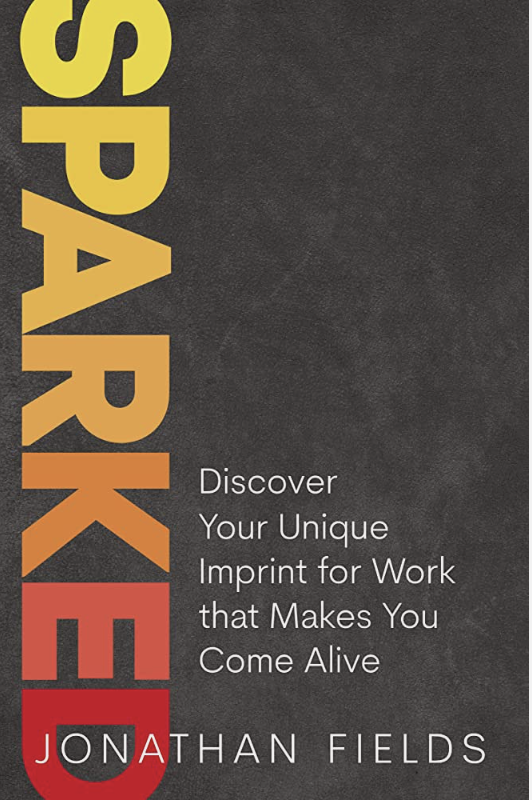 |
Jonathan Fields | ⭐ | I have to give it to Jonathan Fields—between the in-your-face marketing and all the trademarked words and ideas in this book, he's probably a very successful businessman. That said, this is one of the dullest books I've ever read, and I'm honestly shocked that people seem to really love and subscribe to his worldview and career advice! I thought the book read like a high school essay trying to hit a minimun word limit by cramming in superfluous adjectives and buzzwords, and after reading through all of the "Sparketypes" (instead of just my own, as he suggested in the Introduction), I actually felt more confused about the types and their distinctions than I did before I started the book. Undoubtedly, this is partially because he used the exact same descriptions and pieces of advice for multiple sections and was not clear about how they are intrinsically different. Needless to say, I would not recommend; however, if curiosity gets the best of you (as it did me), I can't blame you. Like I said, if nothing else, Fields knows how to sell his brand. |
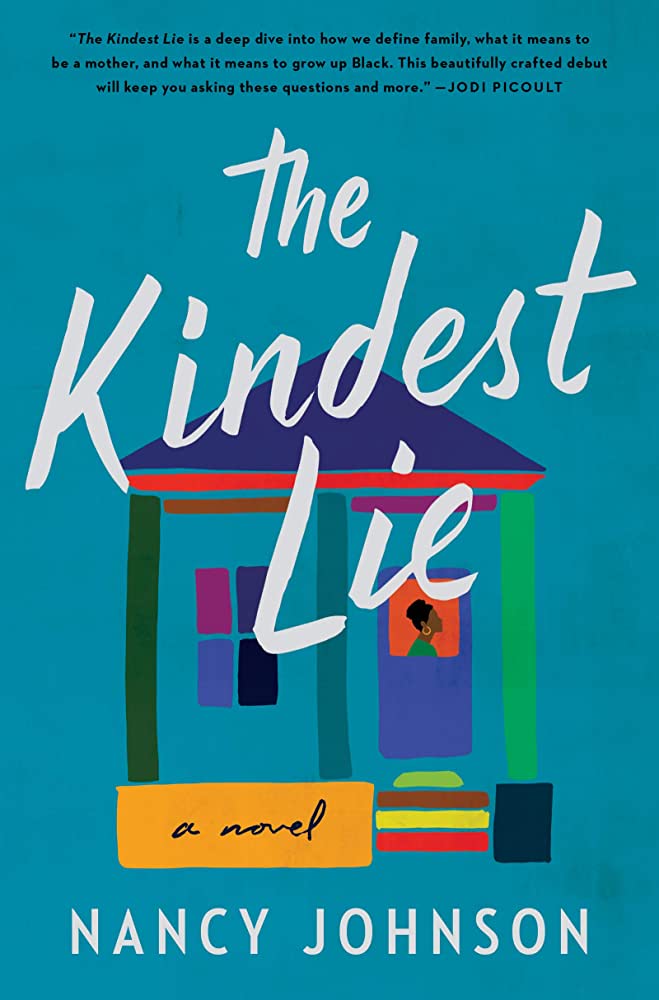 |
Nancy Johnson | ⭐ ⭐ ⭐ ⭐ | I think this book started out as a 3-star story in my mind and then grew on me as time went on. I was impressed with Johnson's ability to capture so much thematically in just 322 pages—complex family dynamics, the strain of keeping secrets, the weight of grief and racism—and I appreciated that there was a lot going on and a lot to think about both during and after reading. My one critique is that I wish there had been a little more suspense built up around the major plot lines because I feel like some of the big discoveries were either revealed early on or predictable enough that there wasn't a strong sense of intrigue. |
 |
Jane Austen | ⭐ ⭐ ⭐ ⭐ | This was my second time reading Jane Austen (my first was Pride and Prejudice), and I once again loved it! I think Austen's ability to craft such witty and amusing characters easily transcends the two centuries that have passed since Sense and Sensibility's original publication, and the only reason I couldn't bring myself to give it a full 5 stars is the fact that I wasn't completely satisfied with how all the romantic storylines played out. SPOILER ALERT: Even though I was consistently invested in Marianne and Elinor's lives (more so the latter than the former, though), I really would have liked to see Elinor and Colonel Brandon end up together, since their chemistry seemed much more apparent to me than did the chemistry in any other relationship, successful or otherwise, throughout the book. Overall though, this was a great read! |
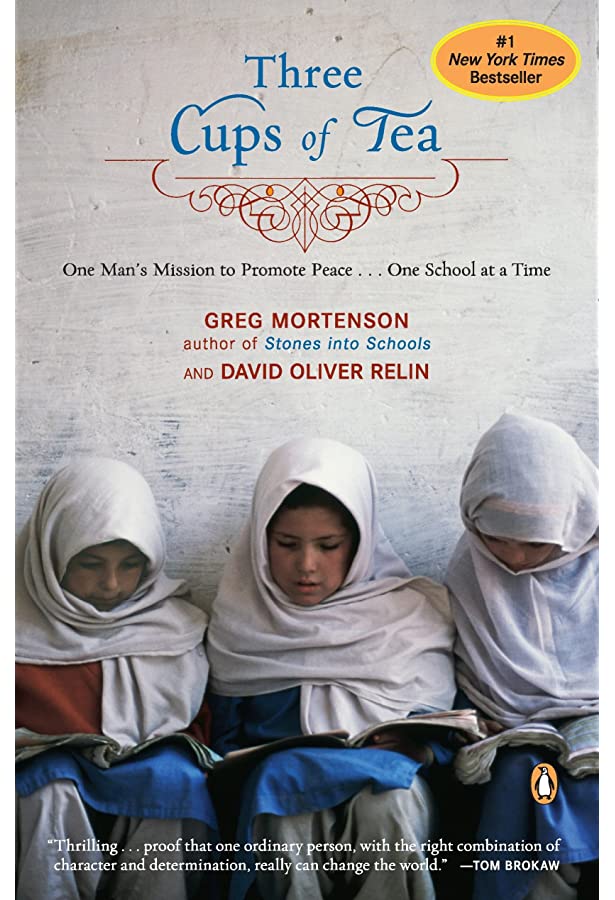 |
Greg Mortenson and David Oliver Relin | ⭐ ⭐ ⭐ | If I had to describe this book in one word, it would be "dense," but if I had to describe the actual content of the book, I would undoubtedly choose "incredible." For most of the month that I spent reading Three Cups of Tea, just picking it up felt daunting because of the complexity of Mortenson's story and of Mortenson/Relin's jam-packed narrative style. But once I reached what I would consider to be the climax of the story (a climax that arrived a little too late in the book for my personal taste), it was practically impossible to put the book down. Reading about Mortenson's heroic endeavours in the years leading up to and following 9/11 was beyond inspiring, and his story taught me more about Pakistan, the Taliban, and the United States' war on terror than I ever could have hoped to learn or understand elsewhere. |
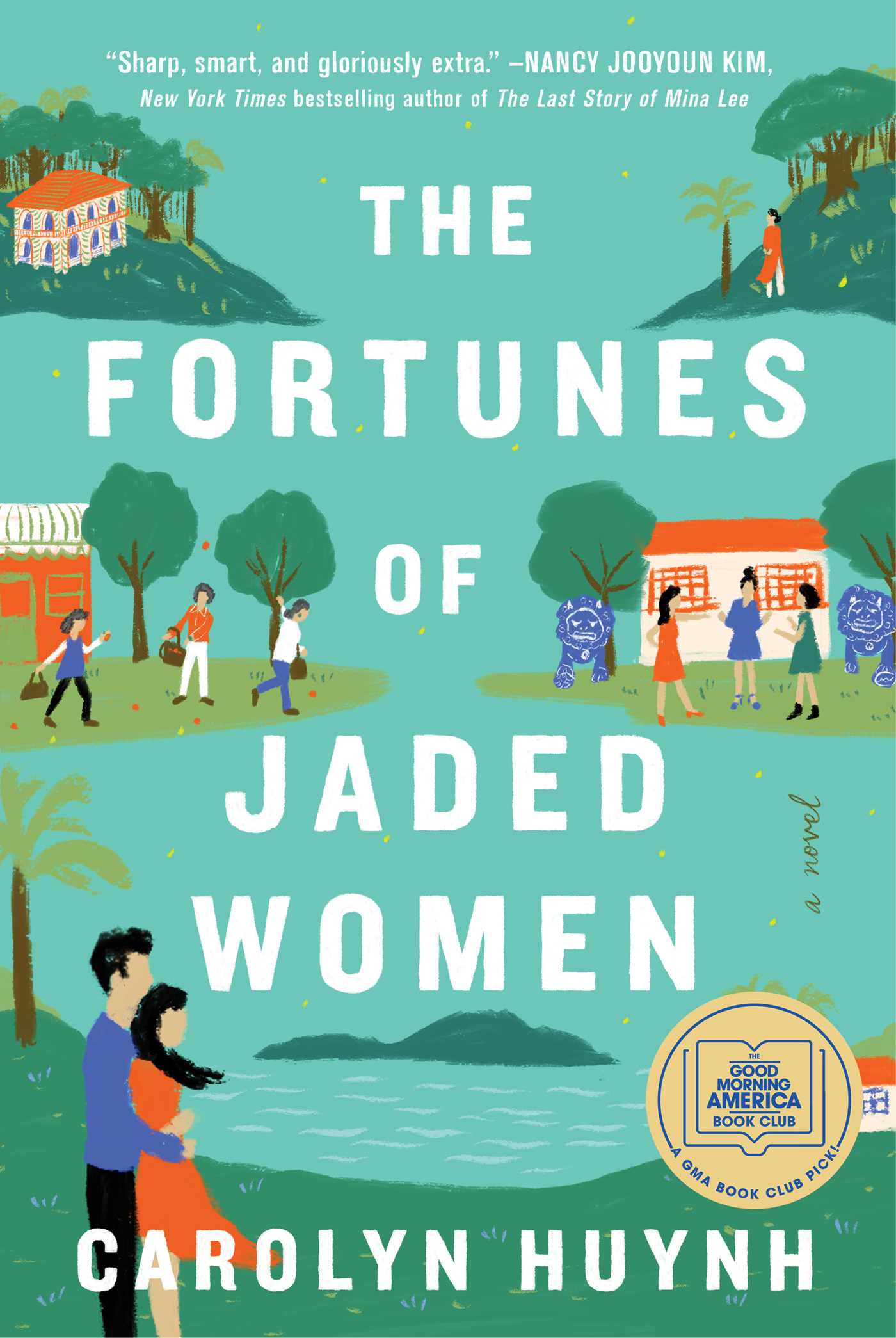 |
Carolyn Huynh | ⭐ ⭐ ⭐ ⭐ | I loved this book! The endless family drama and folklore had me really invested by the end of the book, and even though it initially seemed like storylines were being introduced slowly and somewhat haphazardly, it eventually became clear that everything (and I mean everything) was actually building up to the ridiciulously messy climax. Other things worth mentioning are the title of the book, which is sheer genius, the hardback cover design, which has really beautiful colors and artwork, and the family tree preceding the first chapter; as much as I love the entangling of all the family lines, there is no way I would have been able to keep track of who was whom without that! |
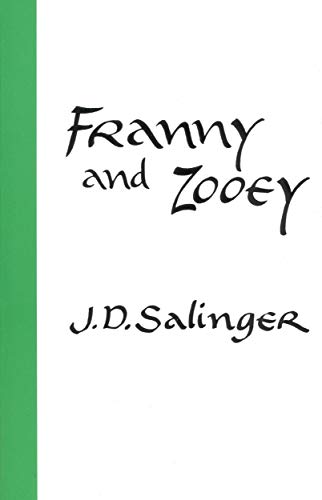 |
J. D. Salinger | ⭐ ⭐ ⭐ | I've said it before, and I'll say it again: Salinger is a brilliant writer. Even though I was truthfully bored with nearly half of this book (hence the 3-star rating), I am still impressed by it and also really fascinated. I think Salinger has one-of-a-kind wit and descriptive style, and I really enjoyed the strangeness of "Zooey," the second of two short stories included in this volume. In particular, the story's unexpected treatment of religion and academia, as well as the elaborate setup/disclaimer made by one of the side characters in the opening pages, was very odd, and I think it gave the short story duo a necessary and refreshing edge. |
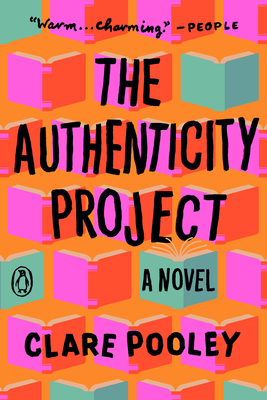 |
Clare Pooley | ⭐ ⭐ ⭐ | I have mixed feelings about this one because the concept is really cute, and I did have fun reading the book... but when I say the storyline could not have been cheesier, I really don't think I'm exaggerating. My mom always tells me that I'm too harsh of a critic when it comes to rom-com-esque books, but to me, something about writing a completely 2-dimensional and archetypal character just doesn't feel right. I also didn't love (SPOILER ALERT) the way Hazard fell in love with Monica practically three pages before the end of the book! Believe me when I say that I'm all for Hazard and Monica ending up together (I always liked Hazard way more than Riley) but why didn't that storyline start earlier instead of being unsatisfactorily crammed into the end without any real development? Overall, though, a good book—super fun to read even though I quite literally shook my head at the cliché ending. |
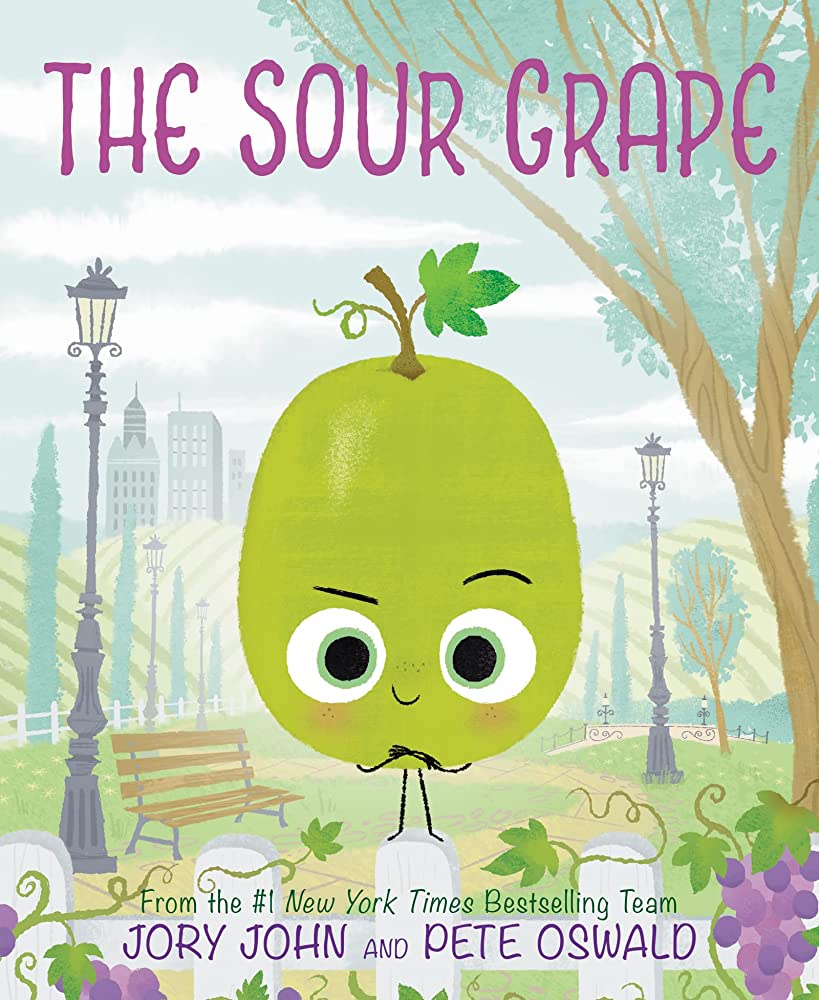 |
Jory John (illustrated by Pete Oswald) | ⭐ ⭐ ⭐ ⭐ ⭐ | I came across this picture book series in an indie bookstore in Roanoke, and oh my gosh, it is so cute! John and Oswald have an entire collection of stories about living food idioms, and each one is a perfect combination of not-so-subtle life lessons for children, hilarious drawings and catchphrases, and hidden pop-culture references for the more advanced (in both mind and years :P) readers. So far, I think The Sour Grape is my favorite and a 5-star read for sure, but The Couch Potato and The Cool Bean really made me laugh, too! (Update: I have now read The Smart Cookie, too, and that one is an undeniable 5-star read.) |
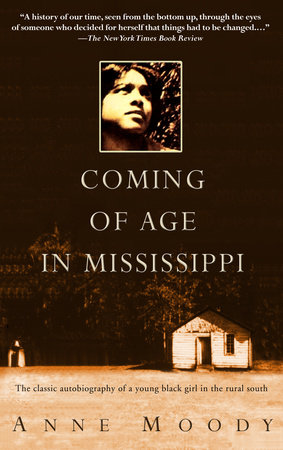 |
Anne Moody | ⭐ ⭐ | This book took me FOREVER to finish and not for lack of trying. The content was just so heavy—and honestly so depressing—that I felt like I couldn't read more than a little bit at a time, and I found it really difficult not to take the horrors of Anne's life in Mississippi too much to heart. As I'm saying this, though, I recognize what a privilege it was for me to be able to put down the book between reads and effectively escape from such horrors altogether, if only for a brief time. I know that Moody and so many others did not have this privilege in their own lives, and for that reason, I think Coming of Age is a necessary and significant read, not just for me but for everyone brave enough to glimpse into Moody's incredible and incredibly difficult life. |
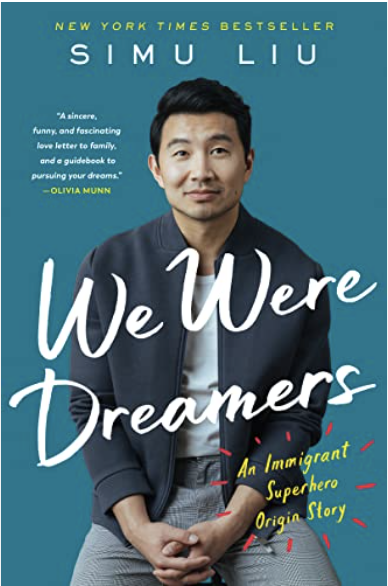 |
Simu Liu | ⭐ ⭐ ⭐ ⭐ | As someone who proudly identifies as Chinese-American yet struggles to remember even her own family's immigration story, I really admire Liu for sharing his family history in this book, all the way from his parents' birth to his own. I was also really touched by his honesty in chronicling his early years and difficult home life in Canada, but I thought that the strength of the narrative diwndled as the focus shifted from his formative years and experiences to the nitty gritty details of his early acting career. Even though I felt a little bogged down by the detailed chronology, I think the book as a whole was enjoyable to listen to (I had the audiobook), and I'm very thankful for the deeper perspective it gave me on Simu as both an actor and a person. |
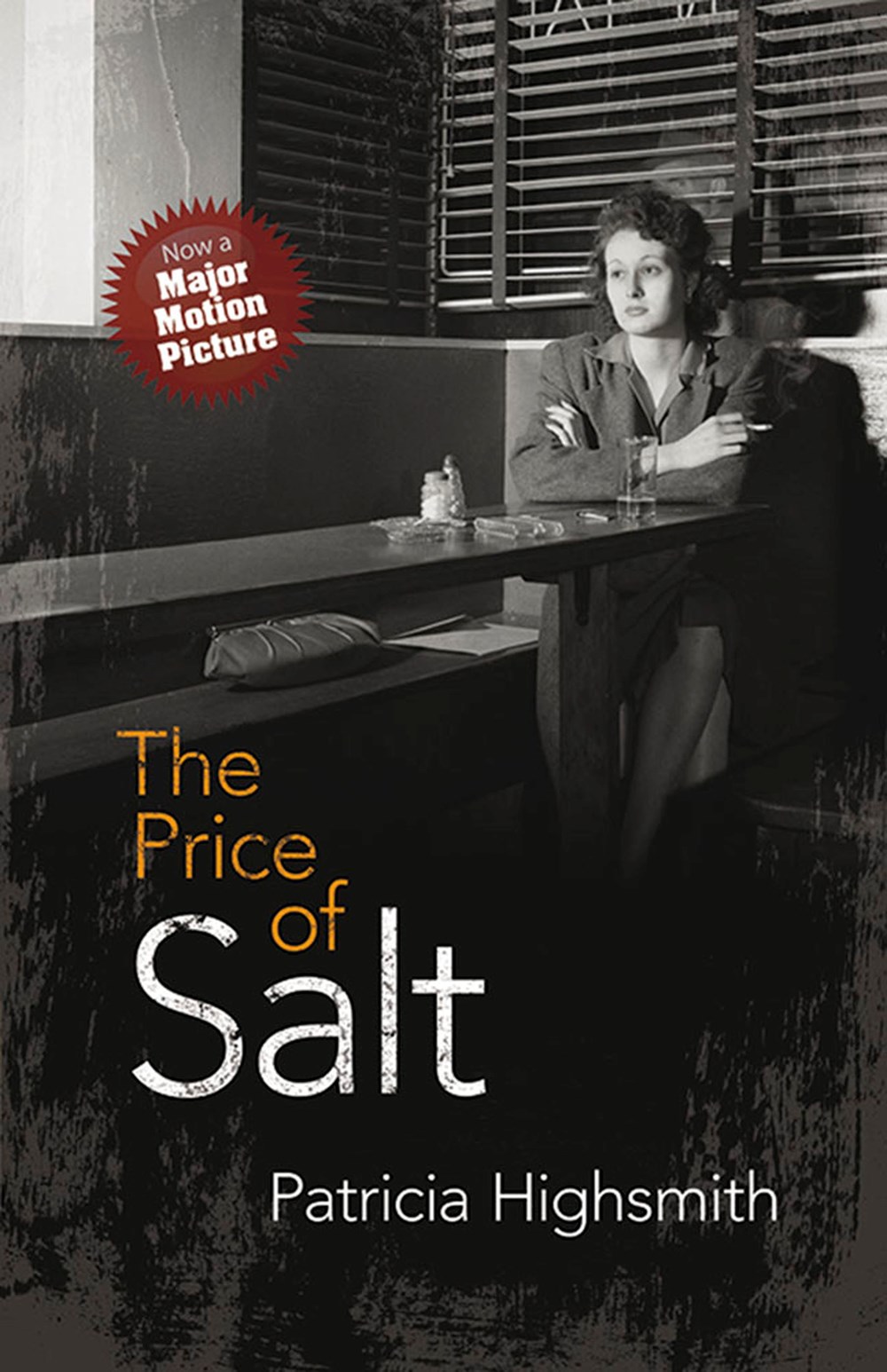 |
Patricia Highsmith | ⭐ ⭐ ⭐ ⭐ | I had to read this book for a class I'm taking this semester, and I was surprised to find that I actually enjoyed it. As the back cover puts it, the book is a "passionate romance" and "lesbian cult classic," which places it squarely outside the range of genres I typically read, but I thought it was really beautifully written and would definitely recommend it to a friend (or stranger!). |
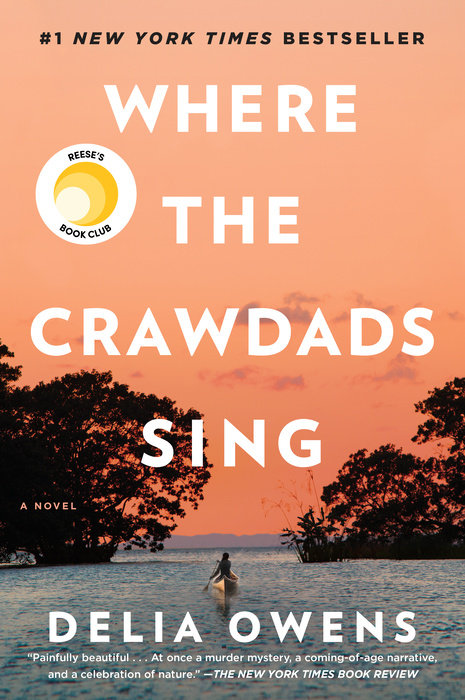 |
Delia Owens | ⭐ ⭐ ⭐ ⭐ | I'm not usually one to read trending/popular contemporary novels, but I loved this movie so much that I felt like I just had to circle back and read the book. I'm really glad I did because there are definitely pieces of the story (SPOILER ALERT: especially Jodie's return home from the military and the depth of Tate's love for Kya throughout the novel) that have much more beauty and soul in the bookthan they did on screen, but at the same time, I wasn't a huge fan of Owens' writing style. Mostly, it just bothered me that she wrote so many intentional sentence fragements, but overall, I enjoyed the read. |
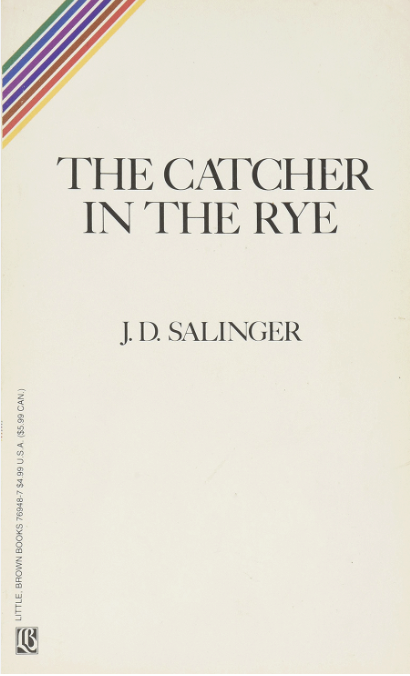 |
J. D. Salinger | ⭐ ⭐ ⭐ ⭐ ⭐ | I. love. this. book. We had a really fascinating discussion about the scholarly discourse (of which there is no shortage) and the cultural and racial implications surrounding this text in one of my classes the other day, and while I did truly enjoy that conversation and appreciate its necessity, there's also this big part of me that feels instinctual gravitation toward and love for the book regardless of its questionable portrayal of privilege and controversial standing in literary discourse. Something about Holden's realism and even his asshole-ness resonates with me, so much so that this is one of my favorite book of all time (sorry, not sorry). |
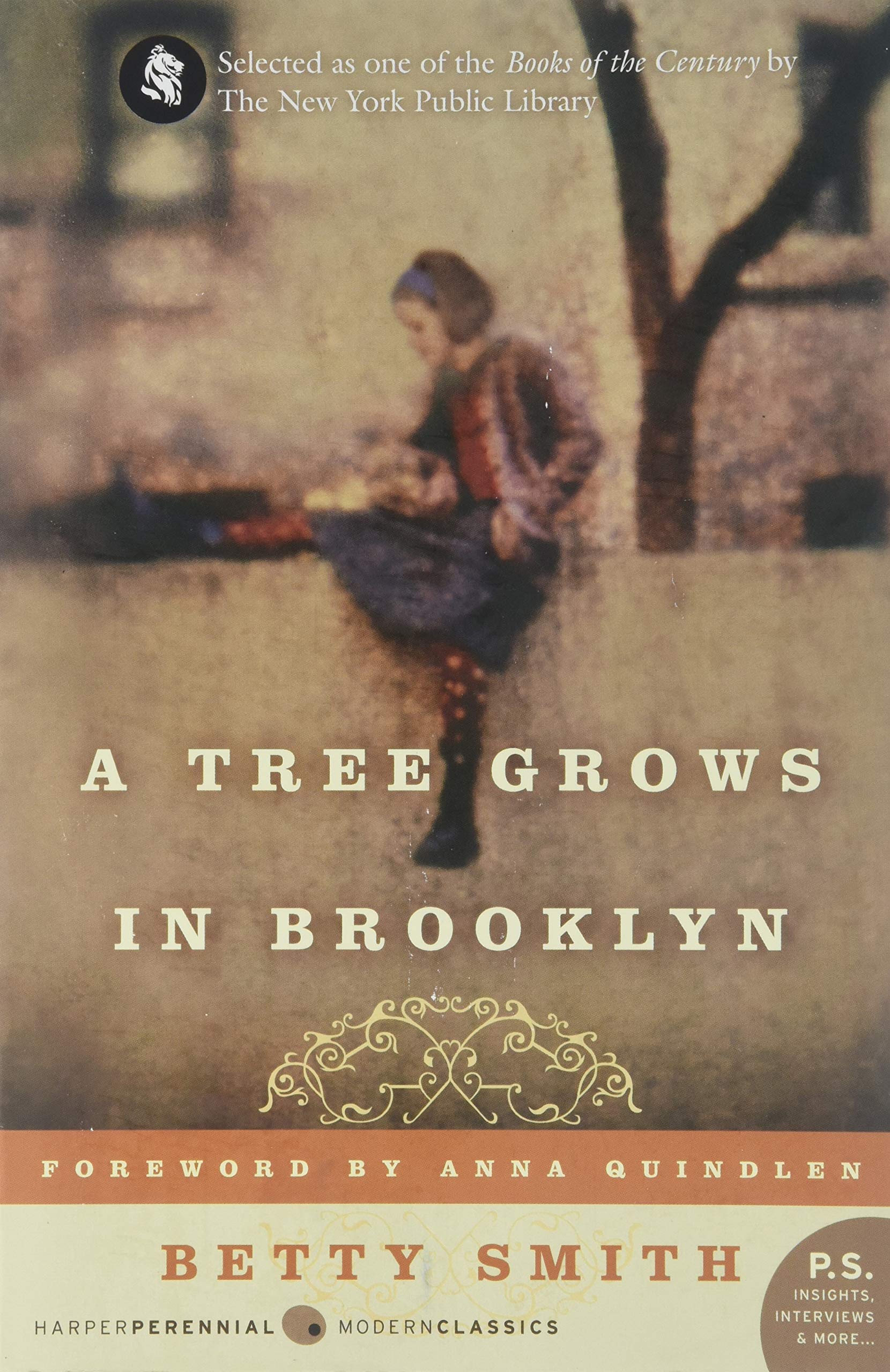 |
Betty Smith | ⭐ ⭐ ⭐ ⭐ | This book started off a little slow for me, but I ended up liking it so much! I think it's such an authentic story of growing up and learning what love is, and the ending was a perfect mix of beautiful and bittersweet. Being written in 1943 and set in the 1910s, there were some moments of antisemitism and closedmindedness that really didn't sit right with me as a modern reader, but overall, the writing emanated warmth and was really a joy to read. Once again, if I could do half stars, this would be a solid 4.5. |
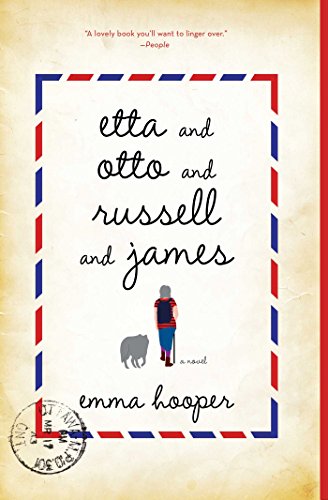 |
Emma Hooper | ⭐ ⭐ ⭐ ⭐ | This book is so unlike anything I've read before, and I really enjoyed it! It took me a little while to get used to Hooper's way of writing (no quotation marks, dialogue mixed right in with regular text, letters from Etta and Otto included throughout), but once I got used to it, I found its departure from traditional narration really refreshing. SPOILER ALERT: I also really enjoyed the depth of the love story between Etta and Otto and thought it was both confusing and wonderful when Etta began thinking she was Otto towards the end of the novel. I also felt bad for Russell and Owen throughout because they were never able to live out their love stories like the others did. |
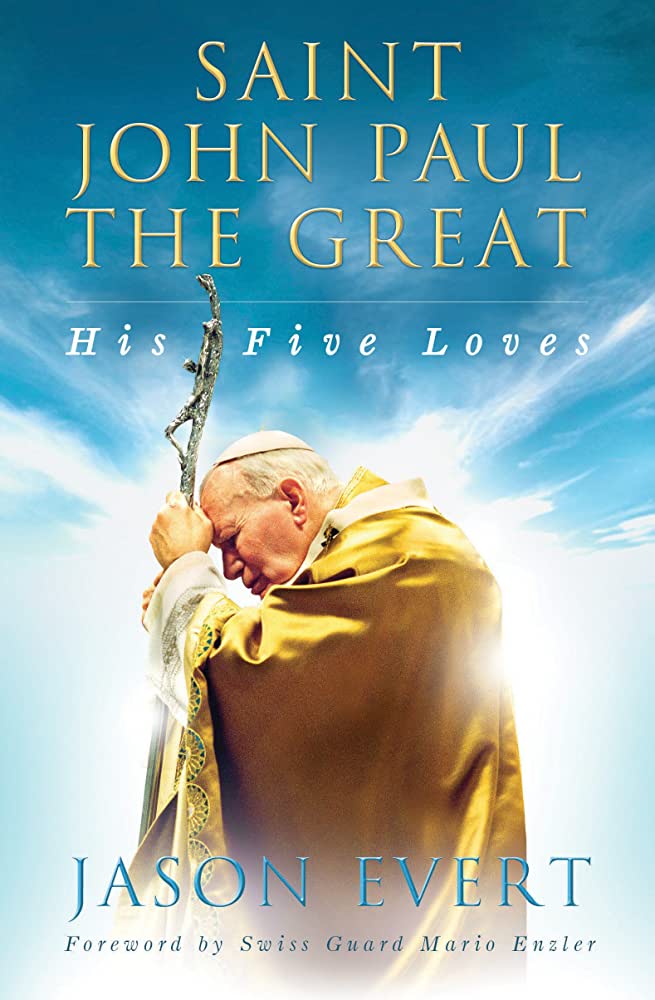 |
Jason Evert | ⭐ ⭐ ⭐ ⭐ | All in all, this book was really great. Apparently, JP II was a literal genius in addition to being a literal saint, and I enjoyed hearing his life stories through the eyes of someone who has clearly done his research. The only reason I didn't give this a 5/5 (it's really closer to a 4.5 than a 4, but I haven't been able to figure out half emojis on HTML yet ;)) is because its impressiveness came more from the content than from the writing itself, and as a self-certified literary snob, I think that's an important distinction to make. |
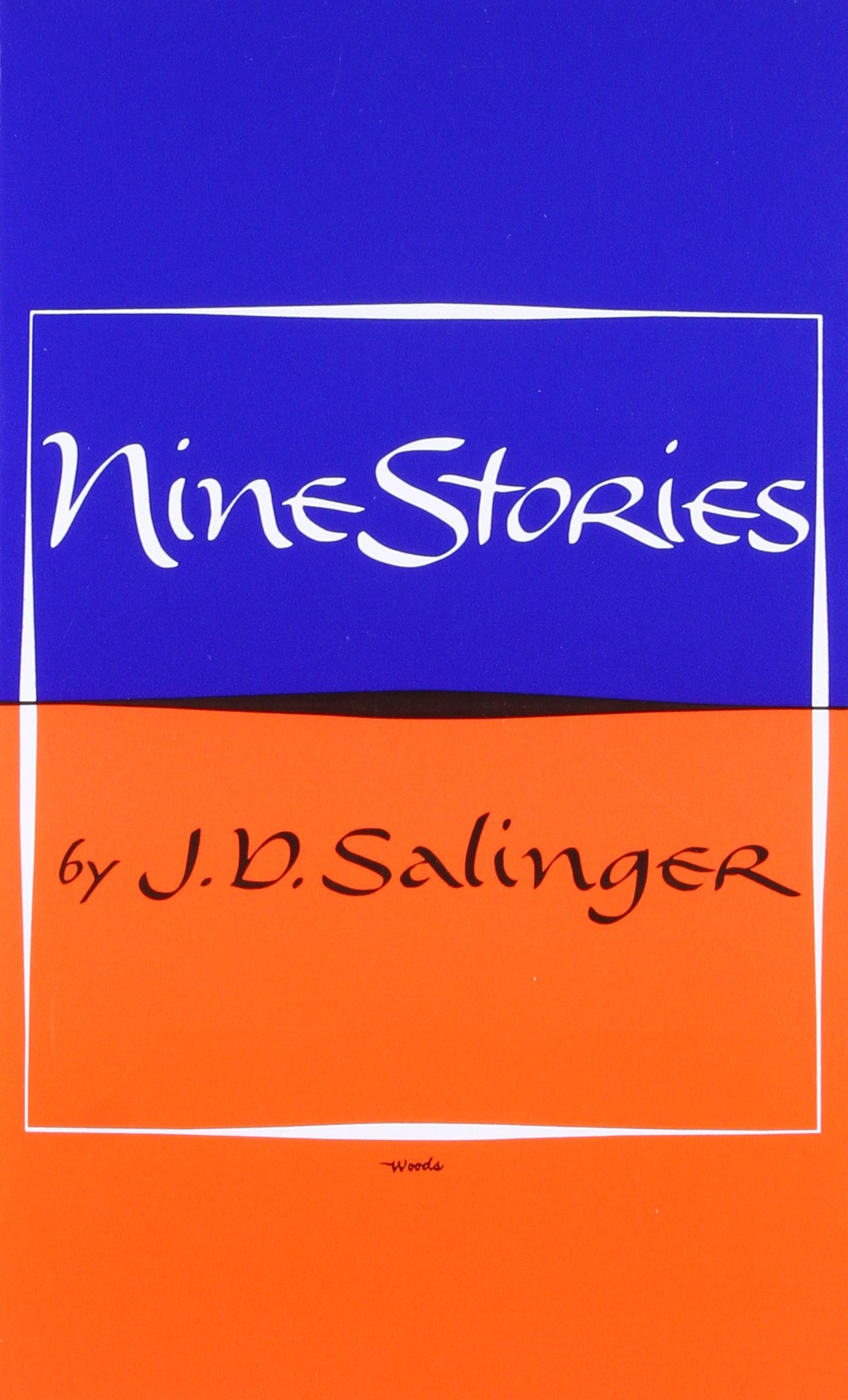 |
J. D. Salinger | ⭐ ⭐ ⭐ ⭐ ⭐ | I loved these short stories so much that I'm considering buying all of Salinger's novel-length published works now. The stories definitely showed their age with all the cigarettes and corded phones, but all nine were fun to read and very well-written. |
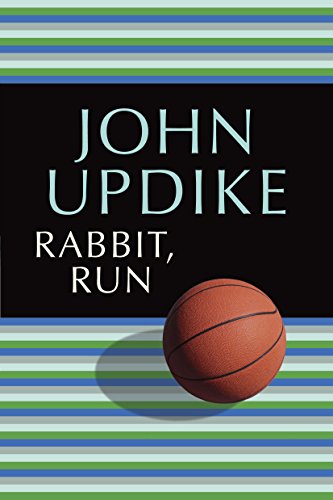 |
John Updike | I was so excited to read this book after loving Updike's In the Beauty of the Lilies, but I must say I was sorely disappointed! The only reason I pushed through the glaring misogyny and endless monotony all the way to the end was because I had already purchased the book, but I would not recommend the read to anyone except as punishment (sorry, John). | |
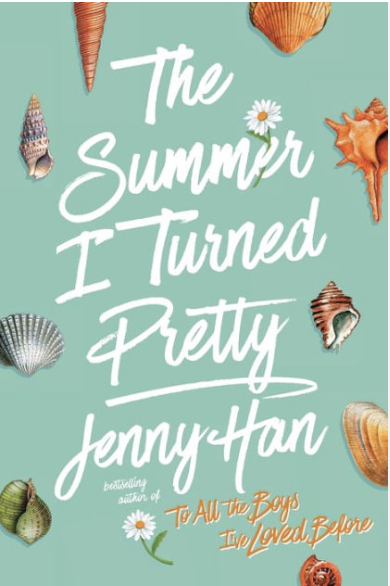 |
Jenny Han | ⭐ ⭐ | When I first finished this book (less than one day after starting it, which is a testament to the story's lack of density considering how slow of a reader I am), I rated 1.5 stars, but looking back, it's possible that was a little harsh. Maybe closer to a 2? Anyway, I found the storyline to be very cliché and underdeveloped, and I really didn't like any of the characters except for Jeremiah. Not a terrible book if you're looking for something mindless but not engaging or original by any means. |
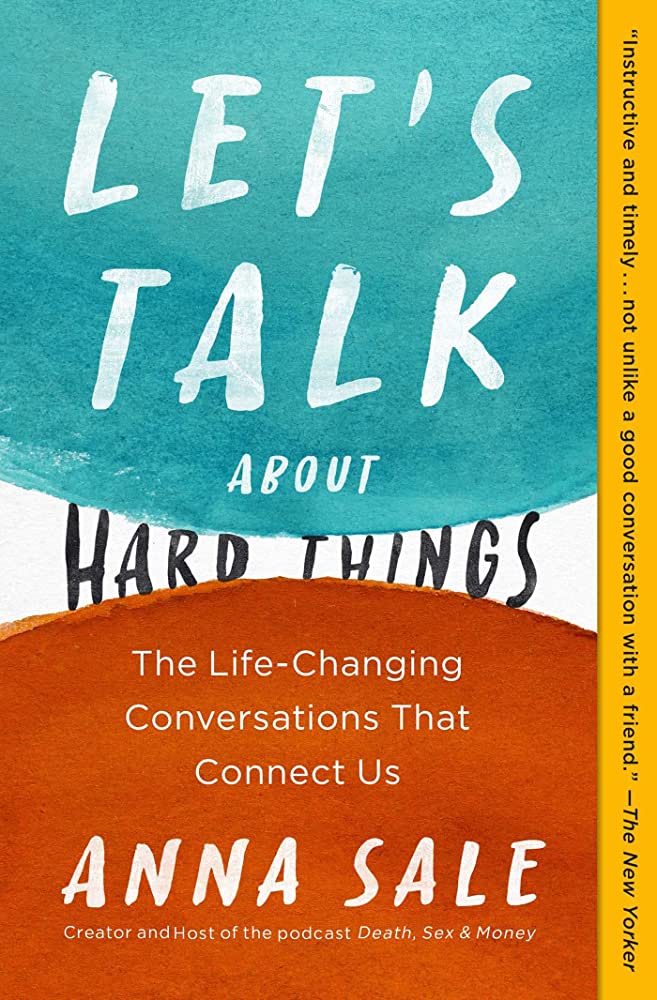 |
Anna Sale | ⭐ ⭐ ⭐ | Truthfully, I only read this book because I was offered a free ebook version of it after subscribing to Simon & Schuster's email list, but it ended up being interesting enough. I like the way Sale drew from so many personal stories and so many people to write about what she considers the hardest things to talk about. |
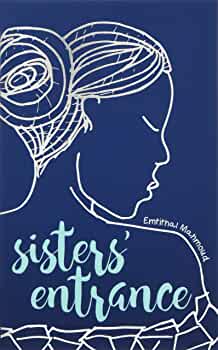 |
Emtithal Mahmoud | ⭐ ⭐ ⭐ ⭐ | I found this short book of poems completely by accident—at a free book box next to the Glen Rock Main Line station—and wow, it is incredibly written. Mahmoud captures so much in such a small number of pages, and what she has to say is definitely worth the read! |
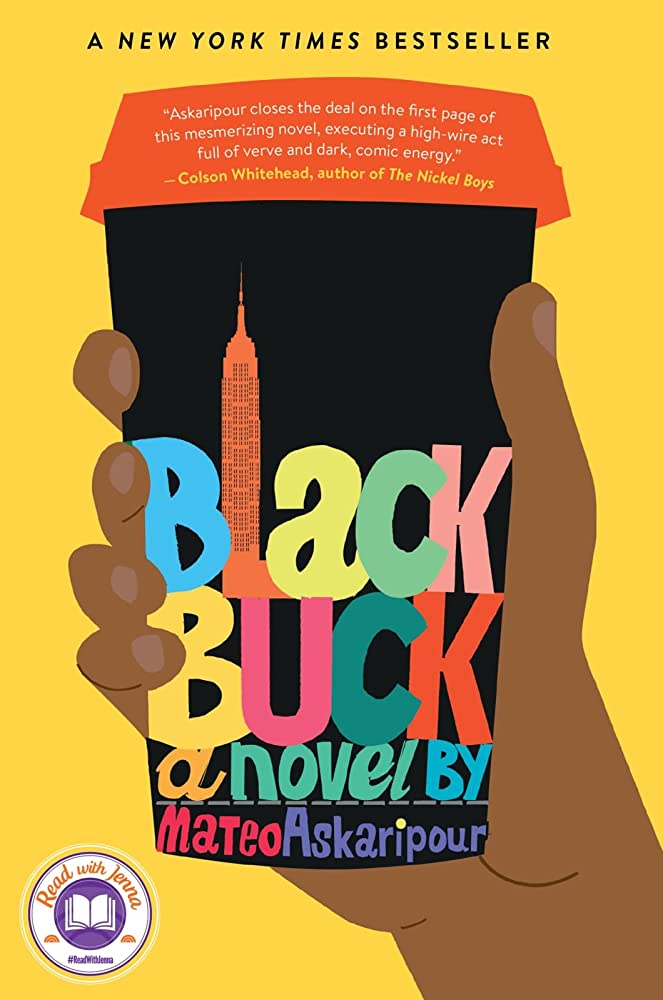 |
Mateo Askaripour | ⭐ ⭐ ⭐ ⭐ ⭐ | This book is incredibly disturbing in the best, most thought-provoking way. I can't recommend it enough, but I should also warn you that it is truly an emotional roller coaster until the very last page. Not only did I cry (which is extremely rare for a reader as stone-hearted as myself), I also kept a steady screaming commentary throughout the last 30 or so pages (my summer roommates can confirm) and could not stop thinking about the book for days after finishing it. |
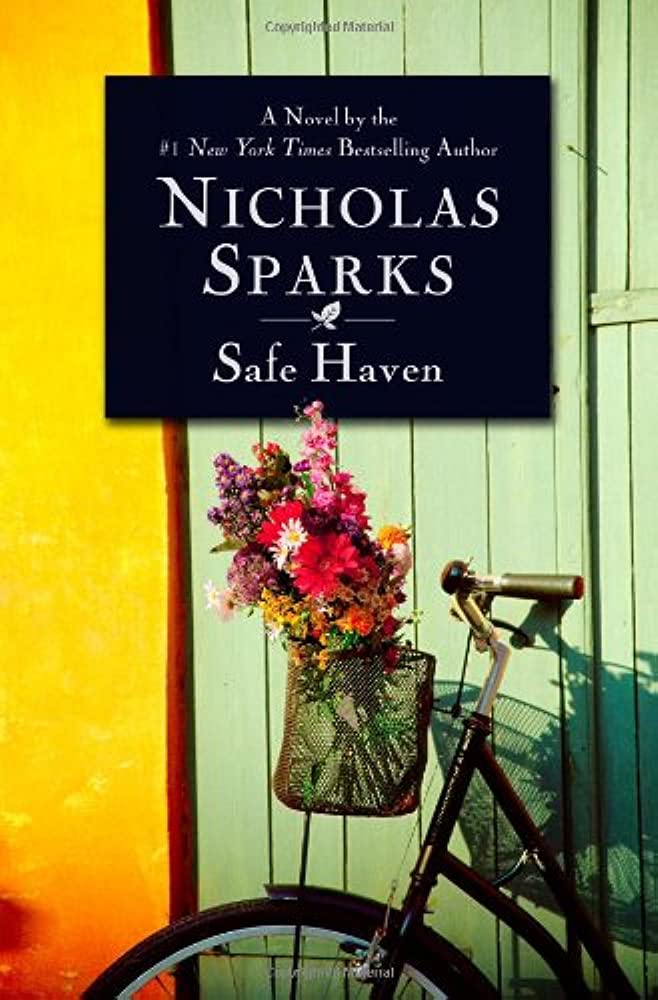 |
Nicholas Sparks | ⭐ ⭐ ⭐ | This book had me up until 2am wanting to know how it would end, but I honestly didn't love it. I was hoping for a light romance when I picked it up, and while the first half definitely delivered on that front, the end got way darker than I was ready for. I also found the love story to be a little tacky, but I must admit I have incredibly high standards for authentic and acceptable literary/cinematic romances. |
Thanks for visiting my bookshelf! Stay tuned for more book reviews, and feel free to contact me using the information below!
